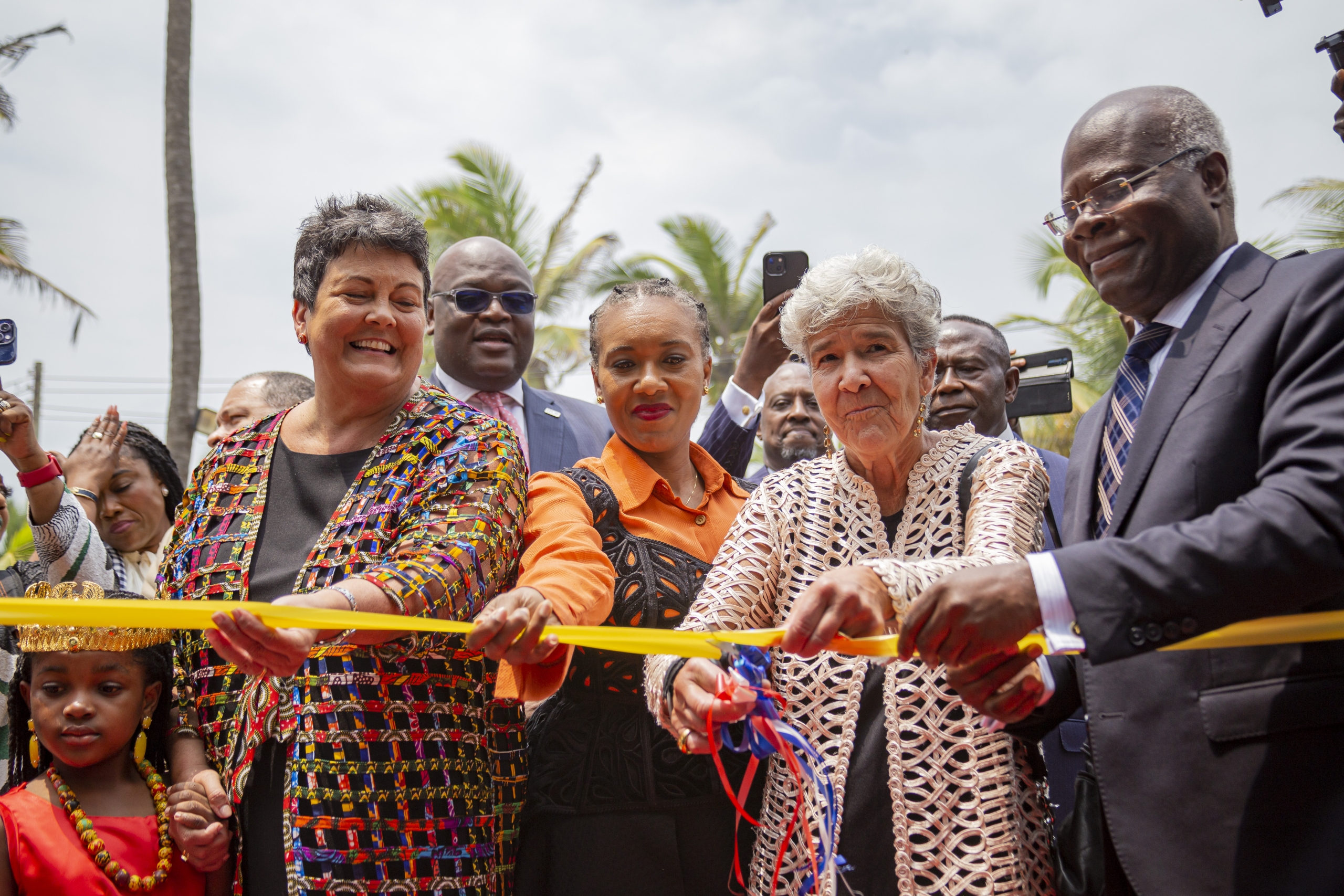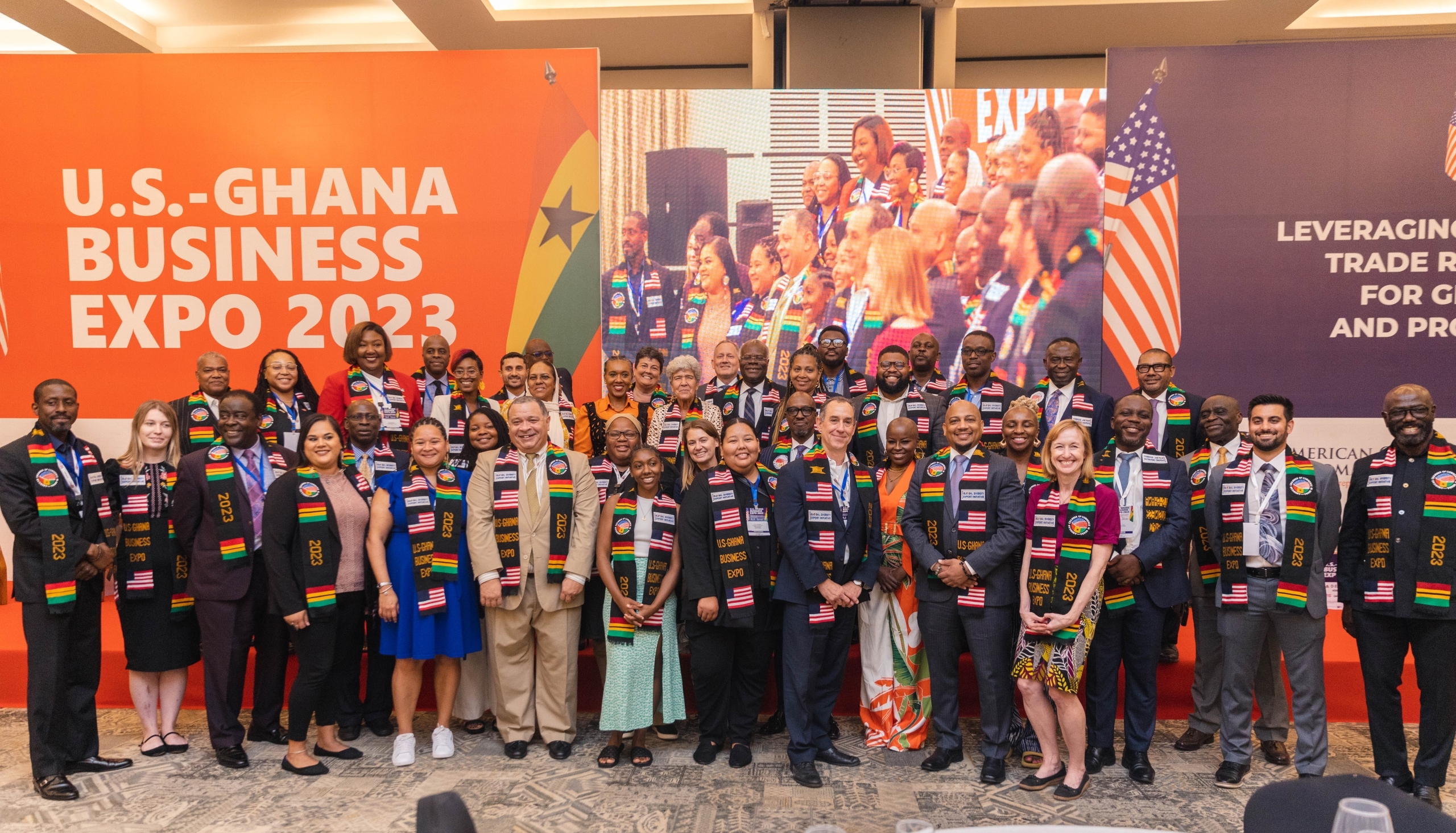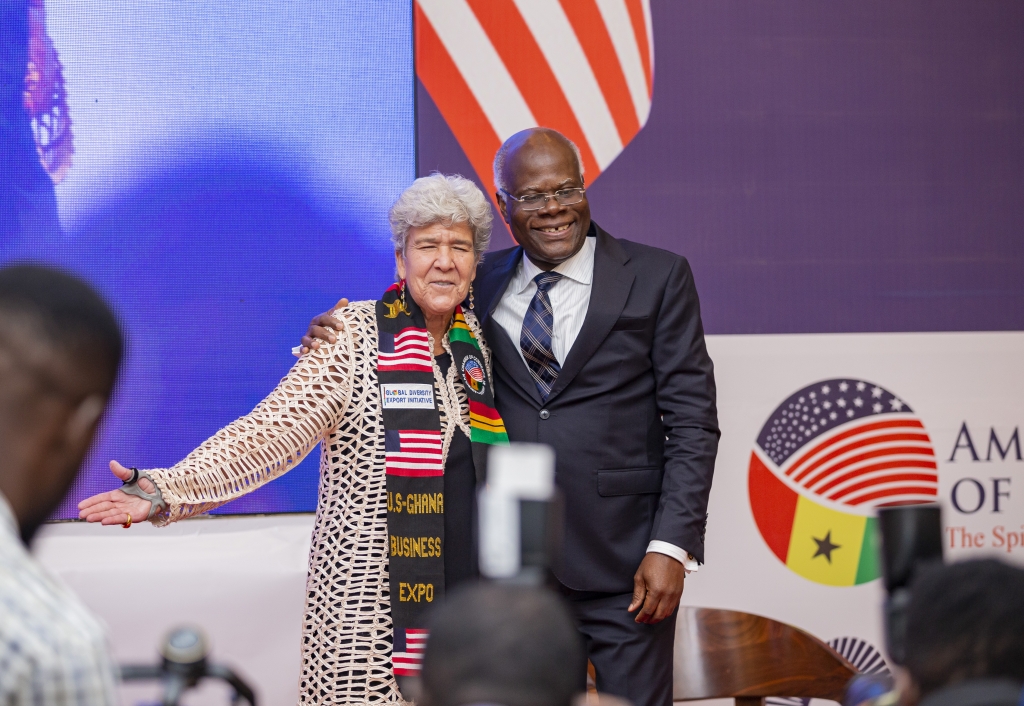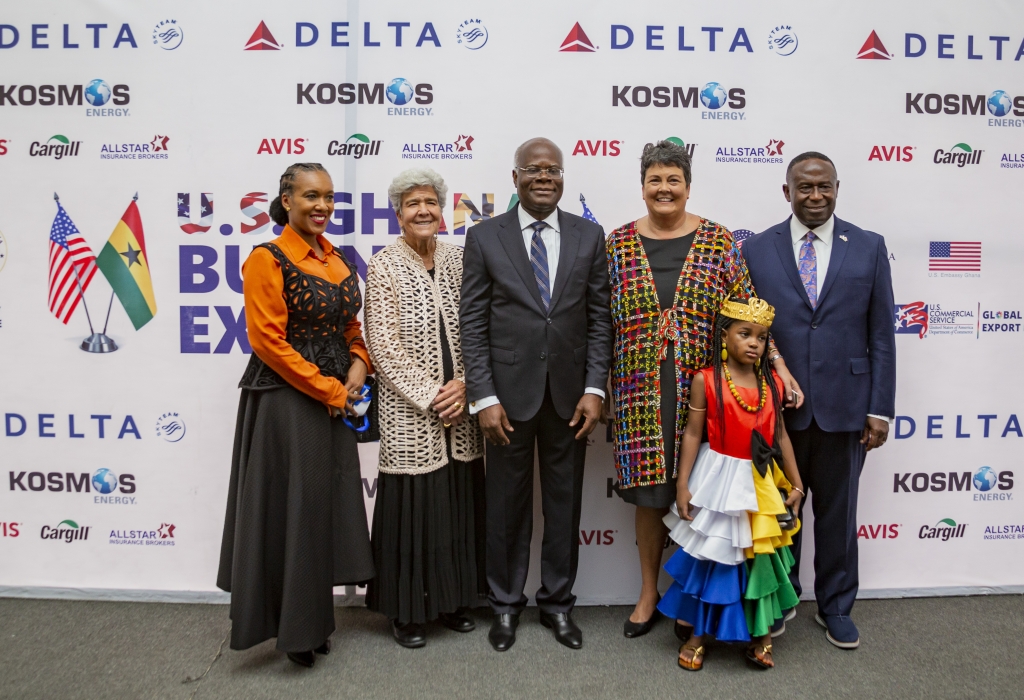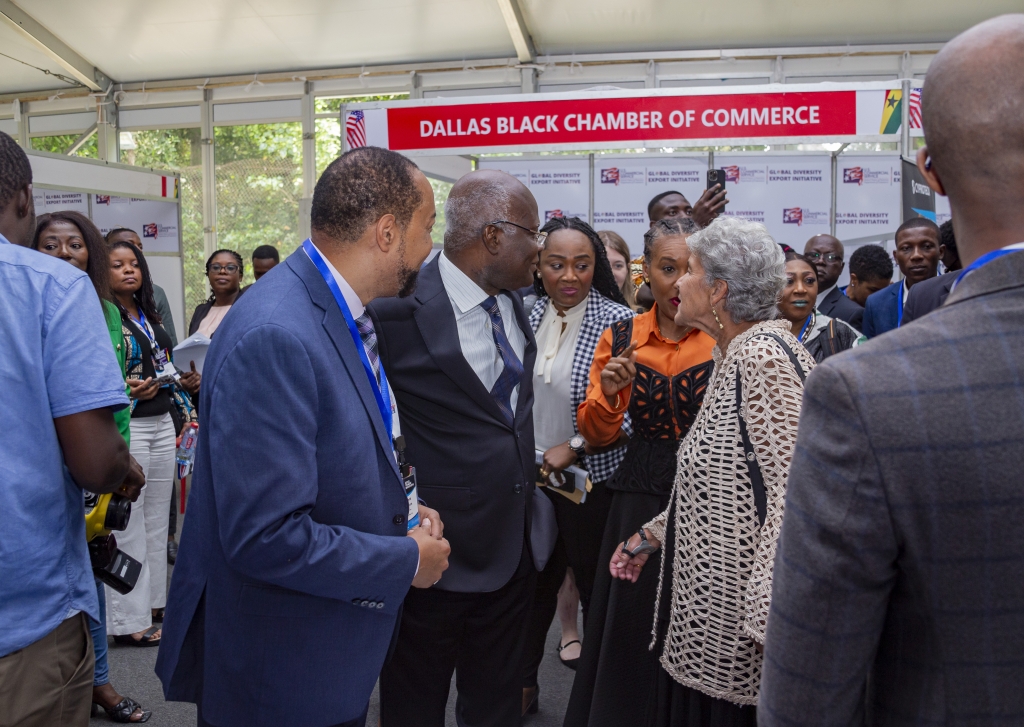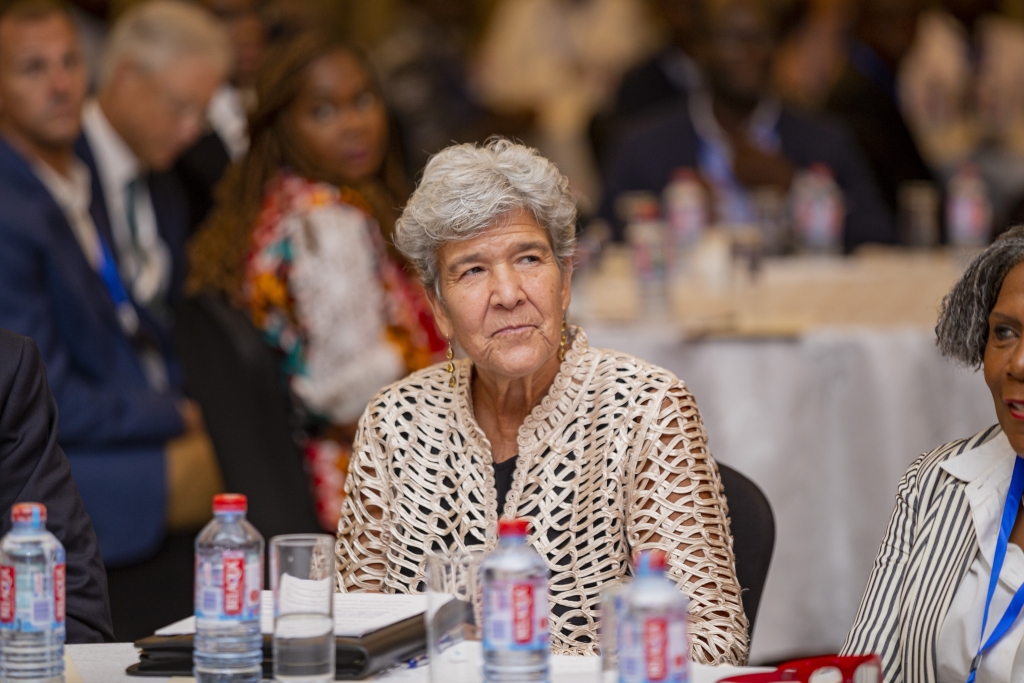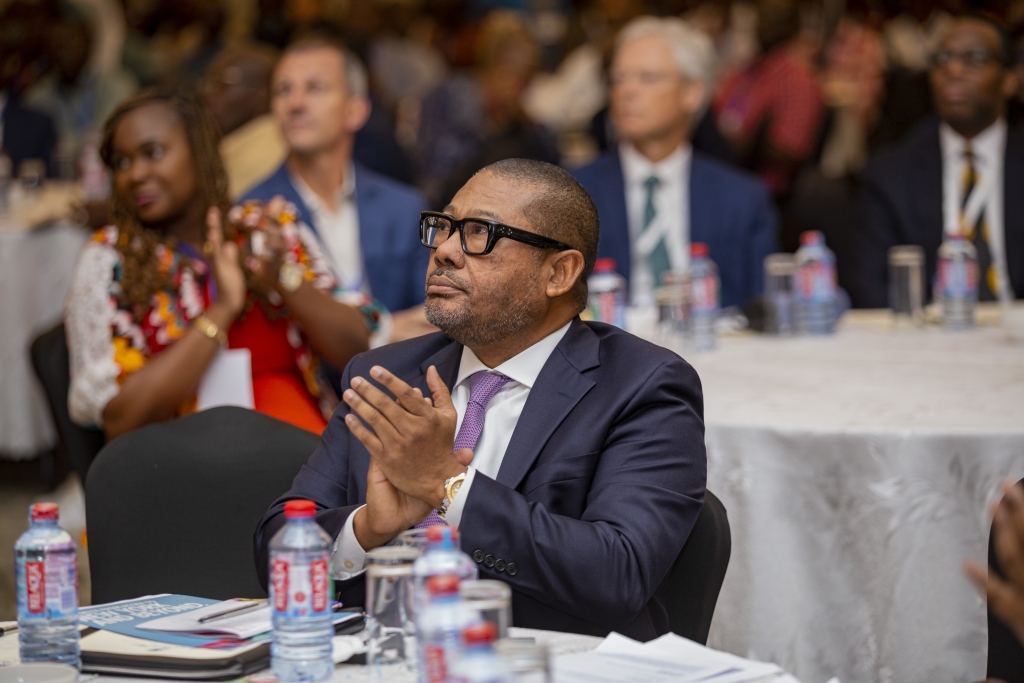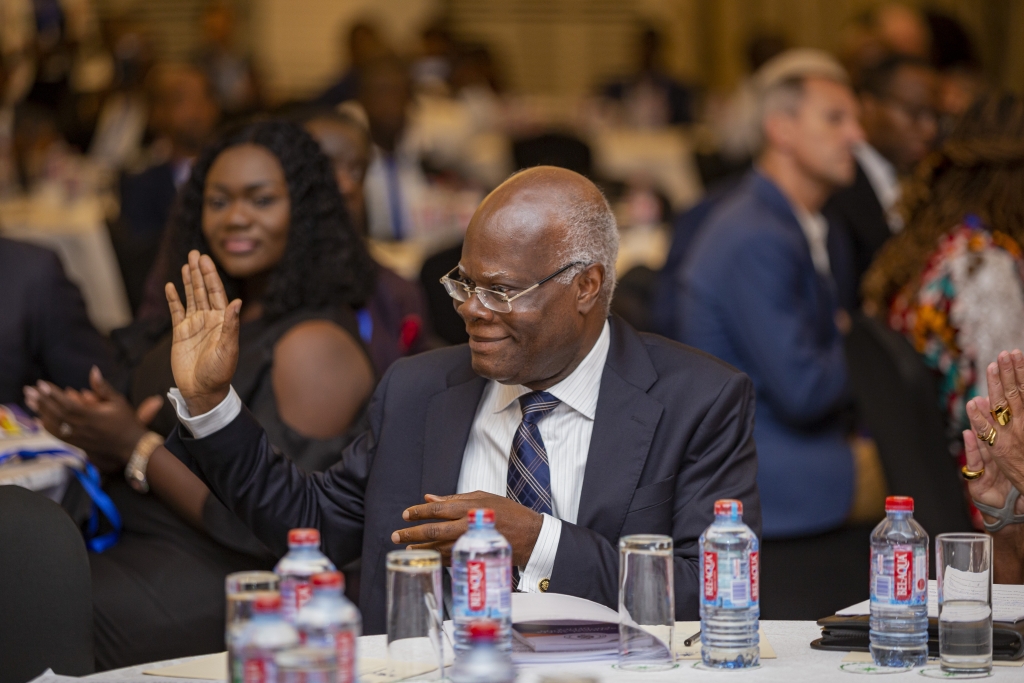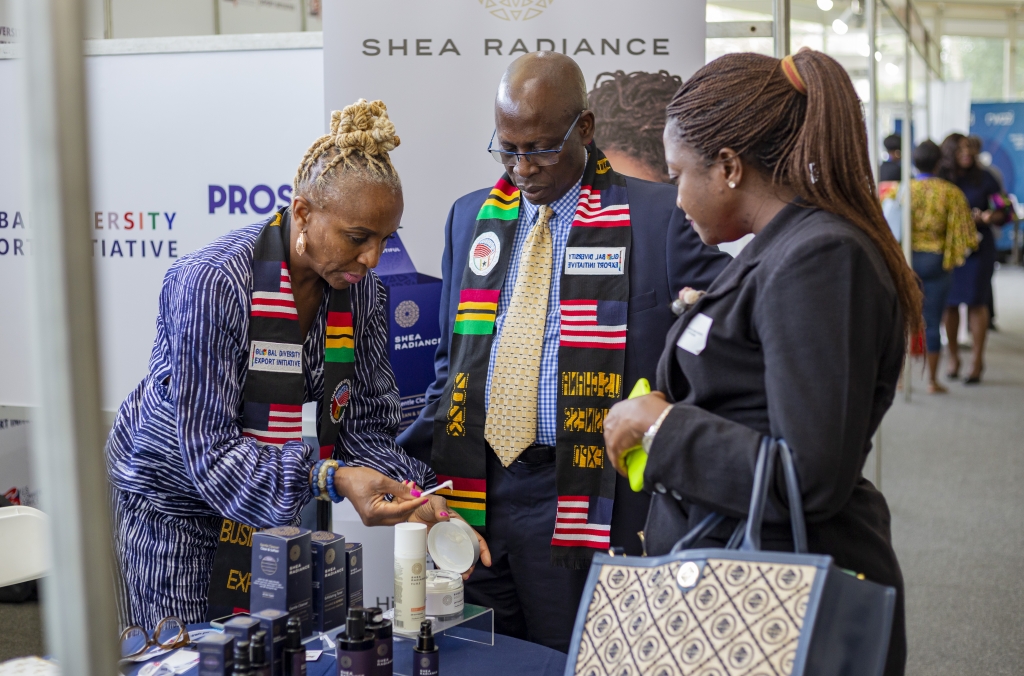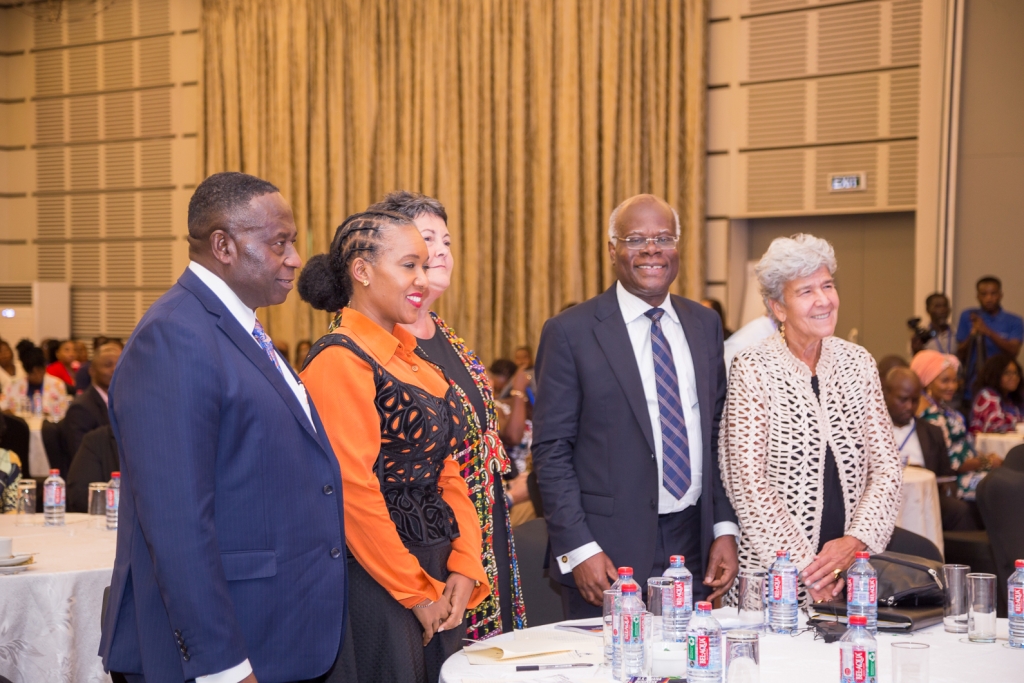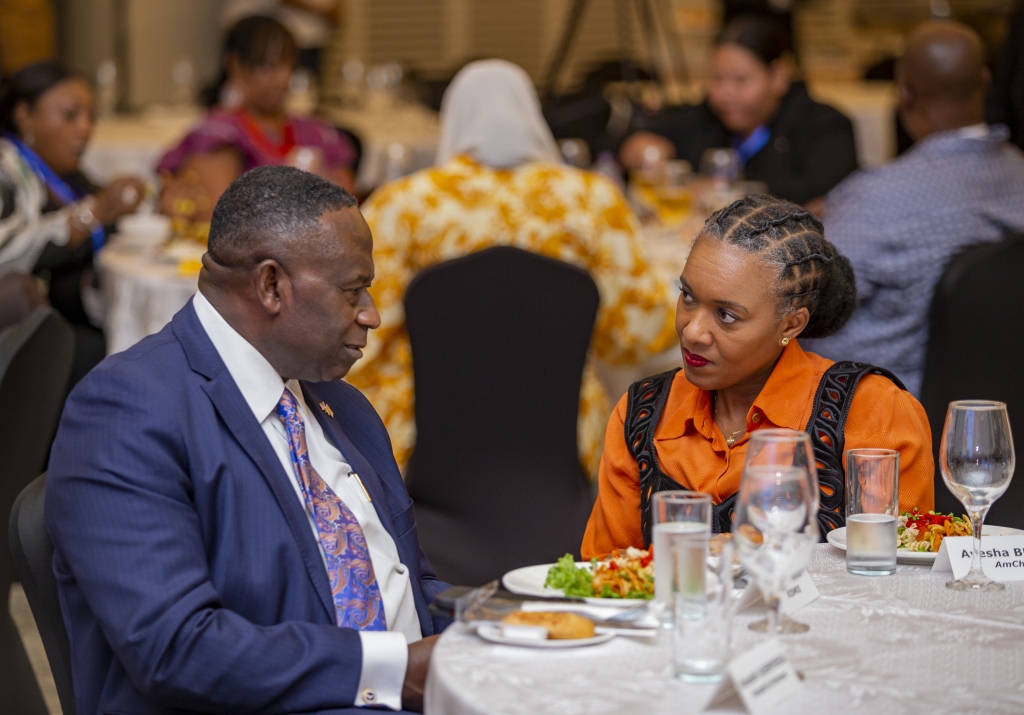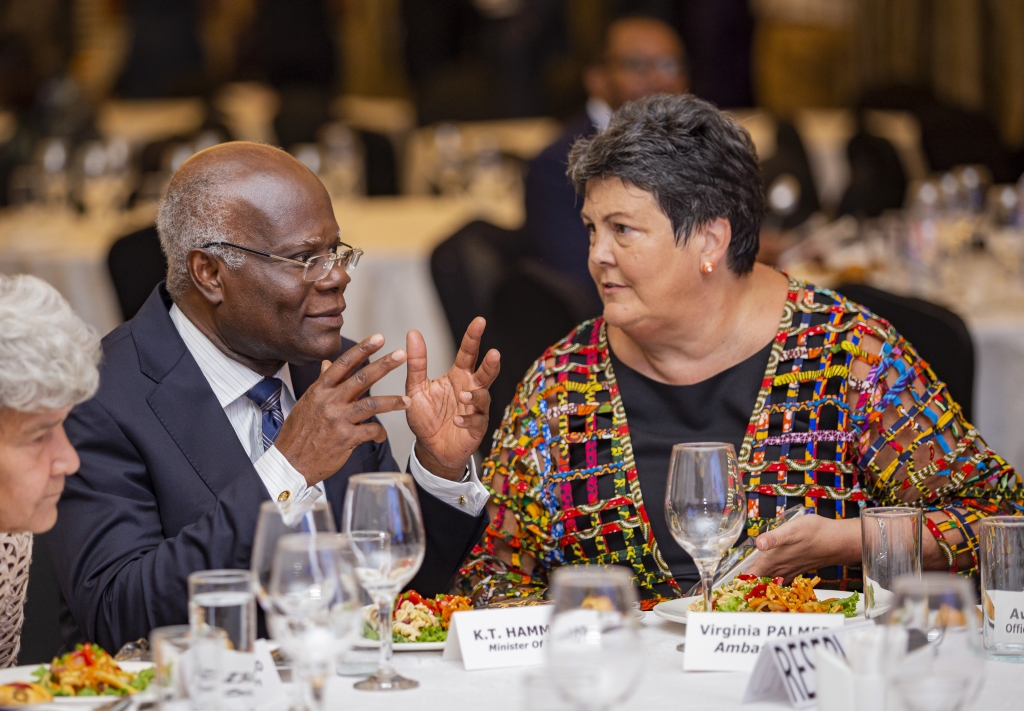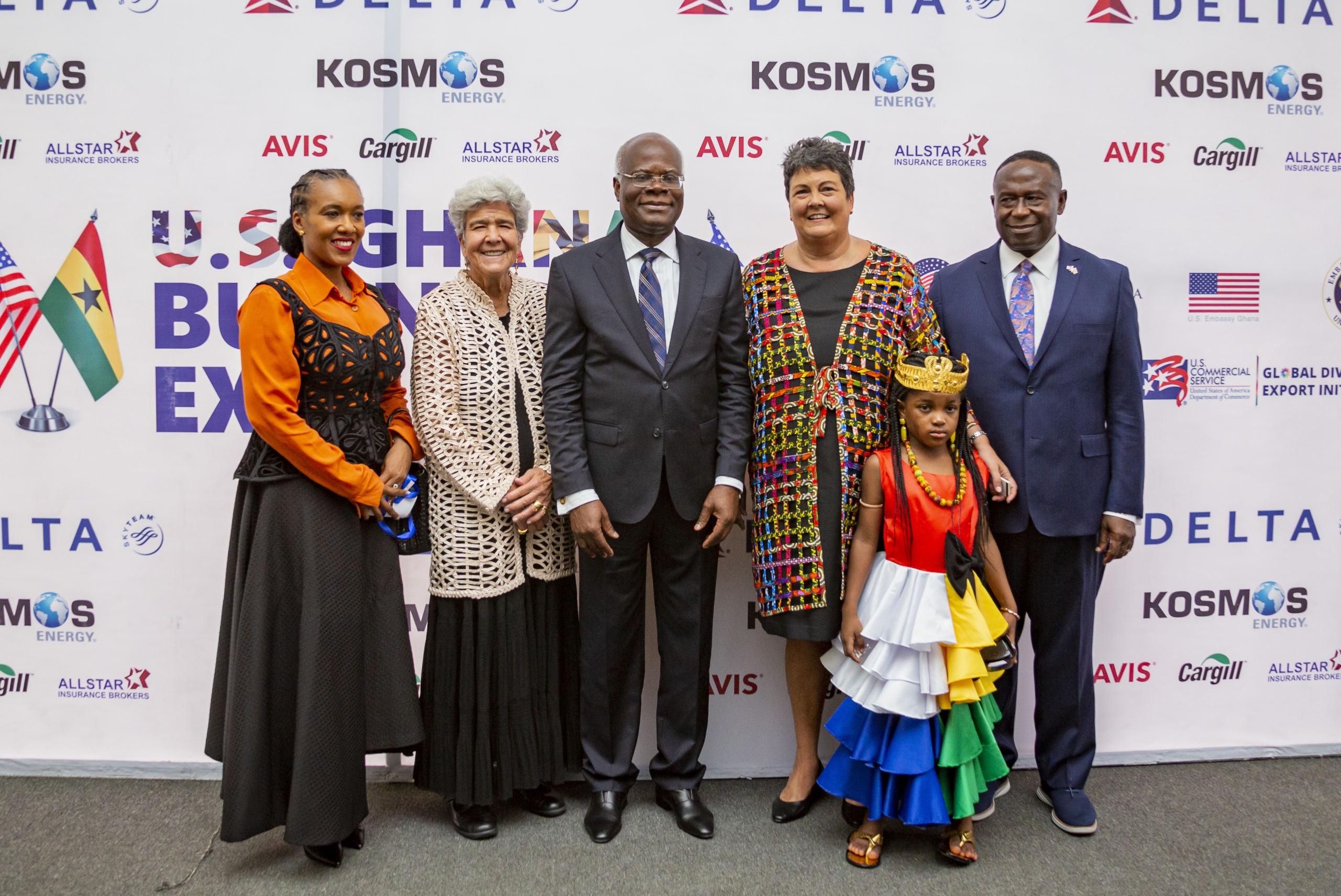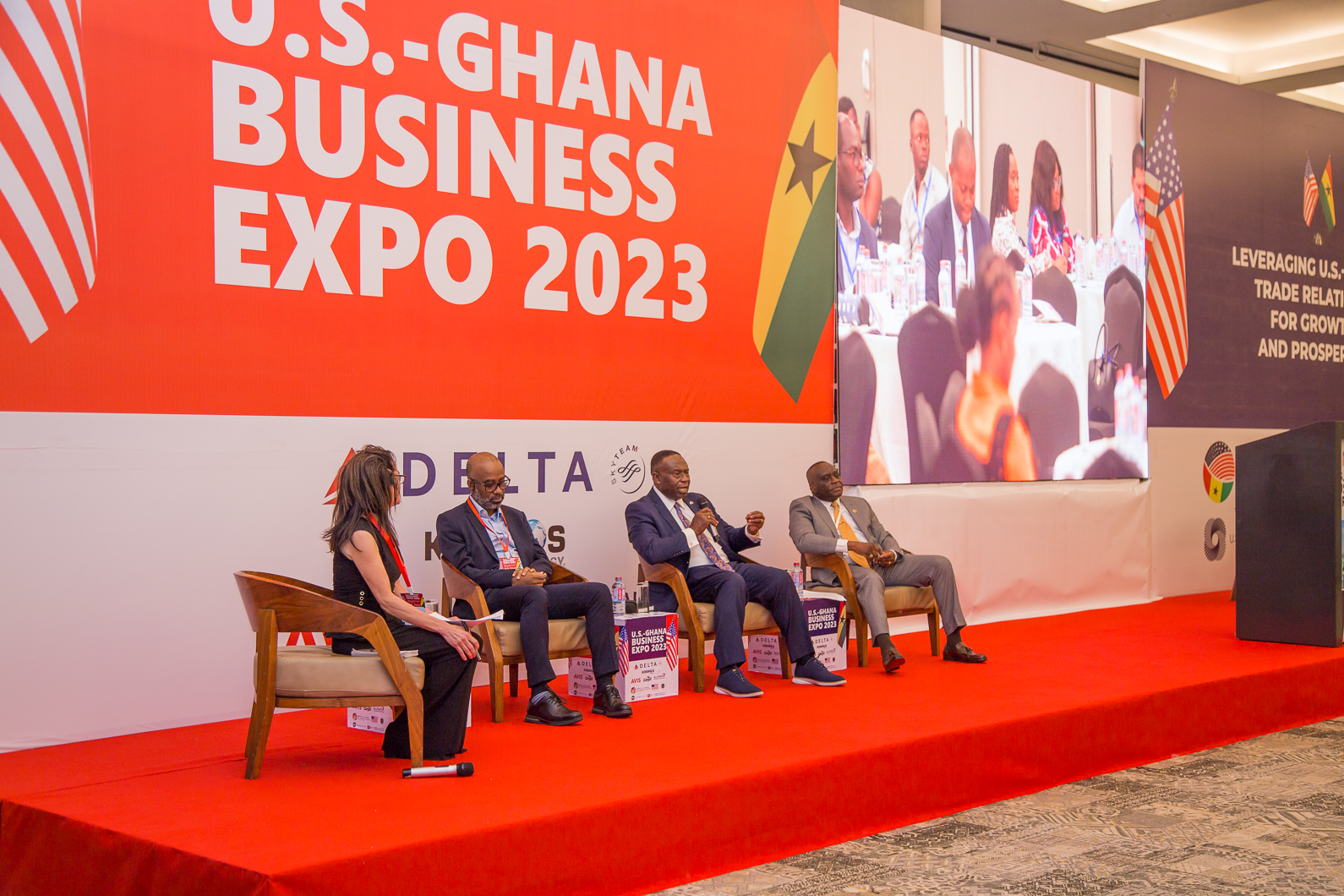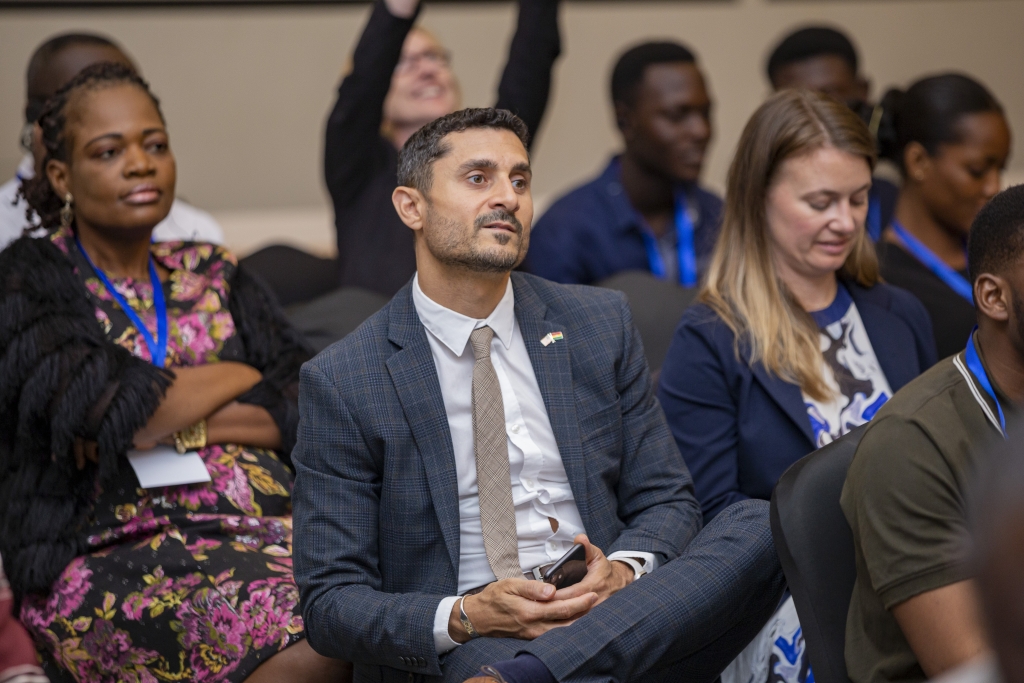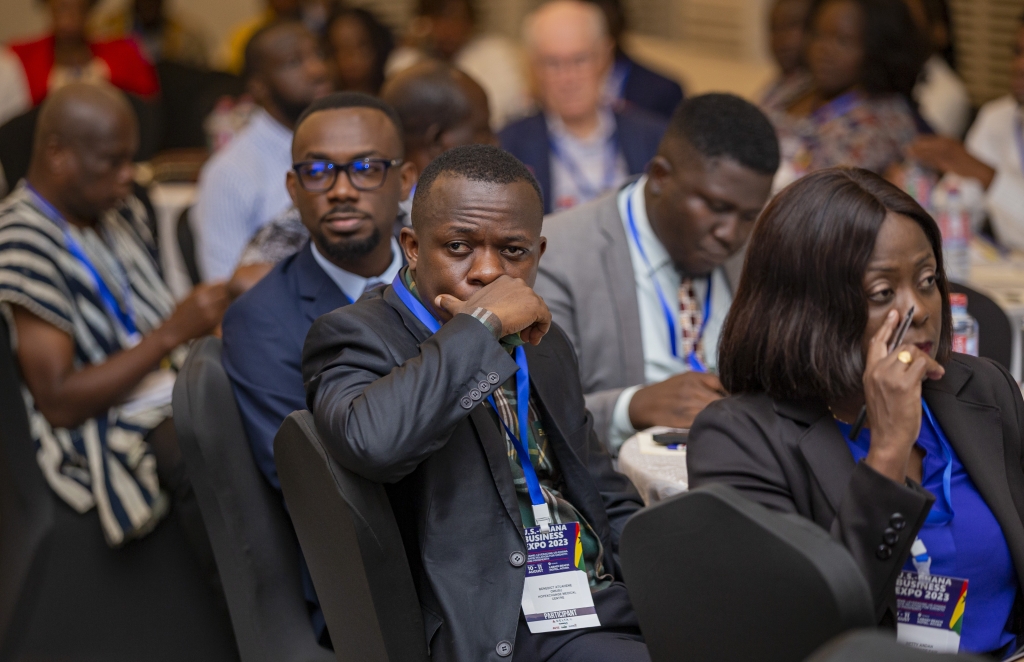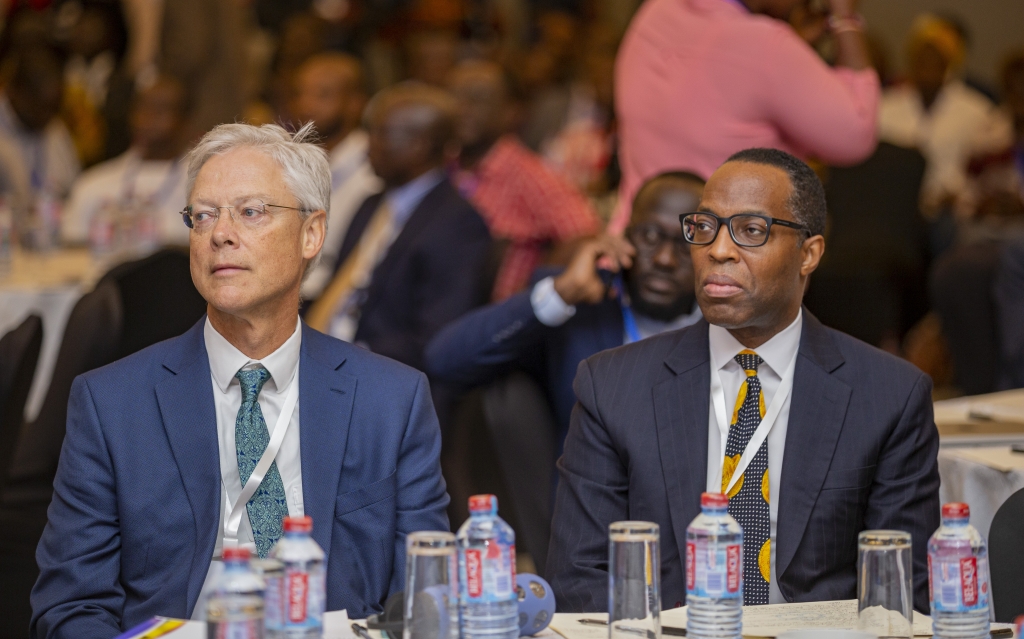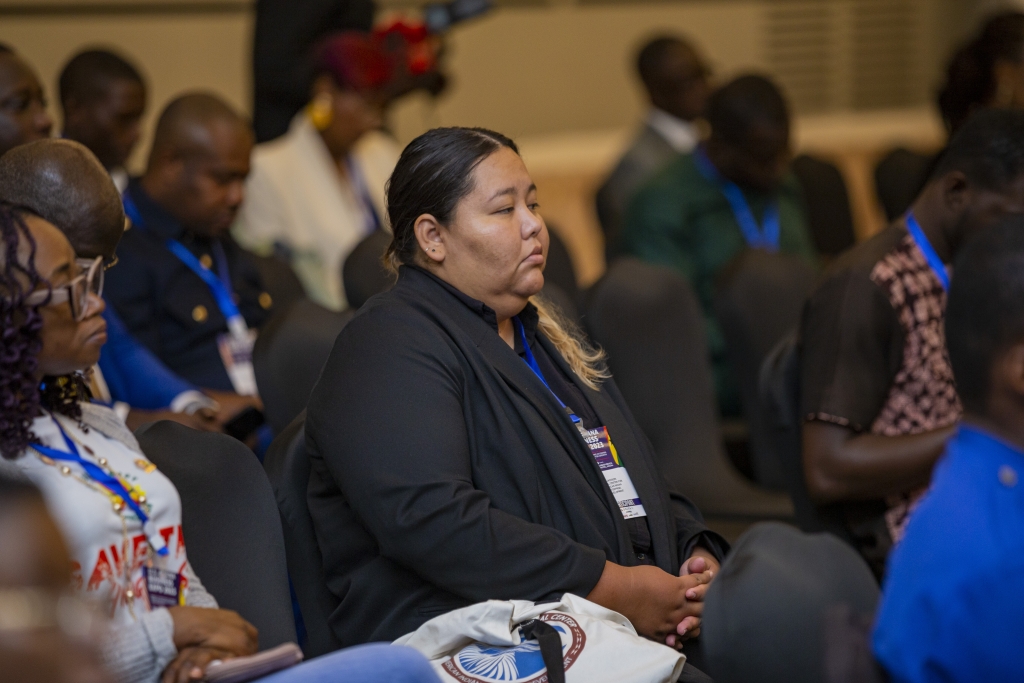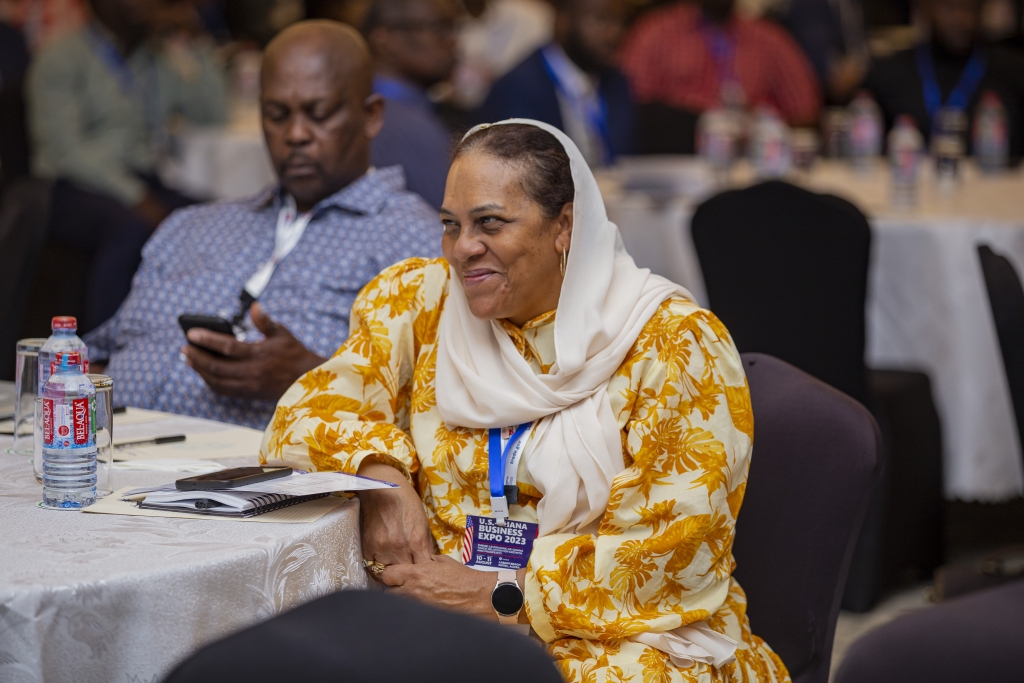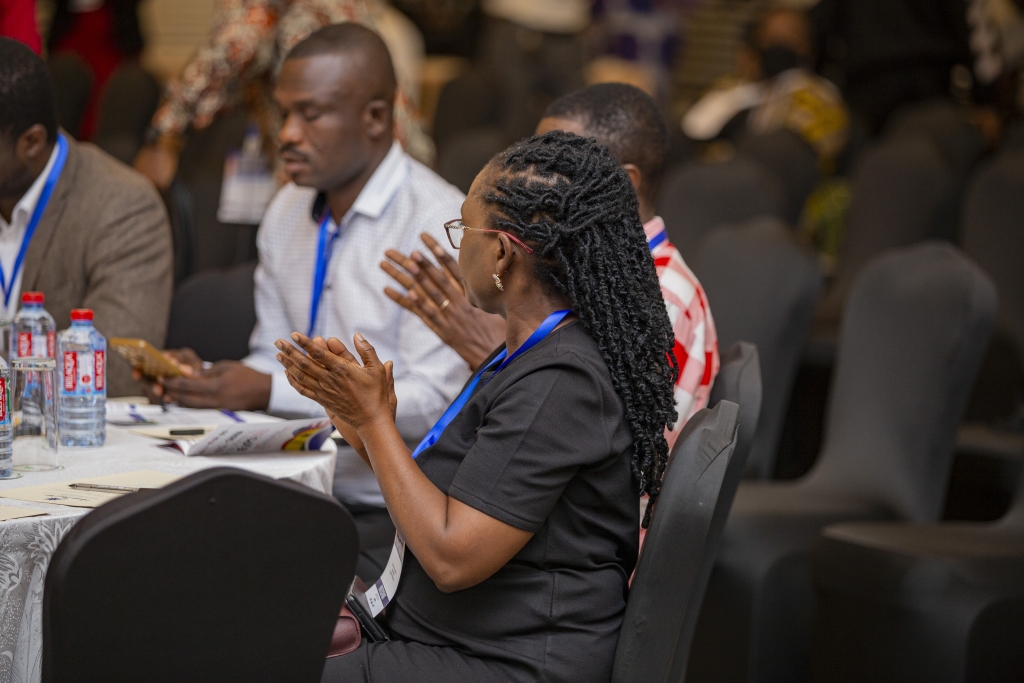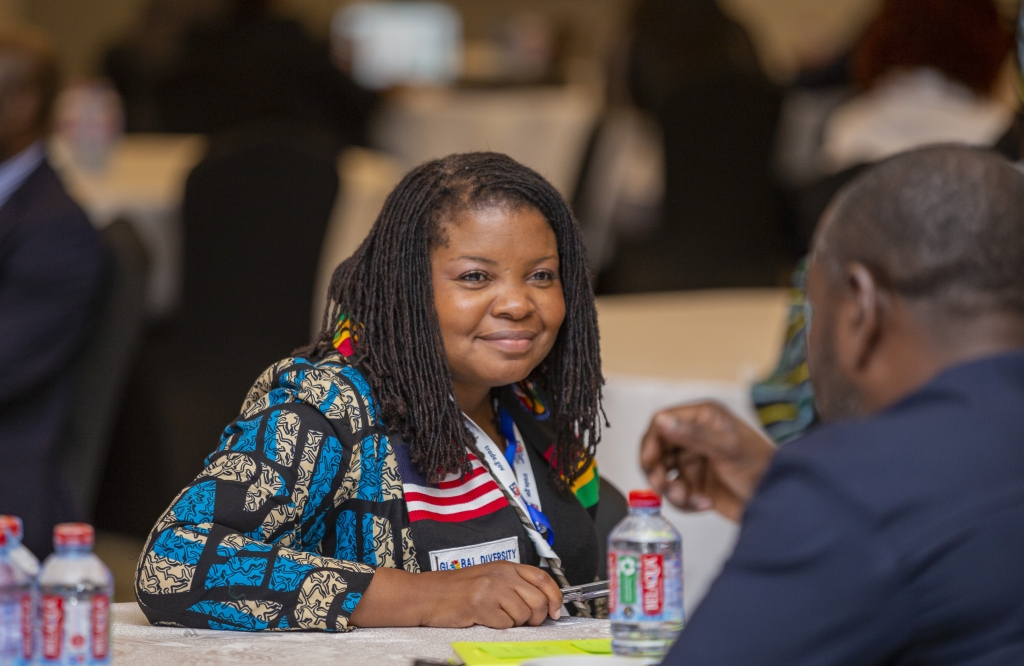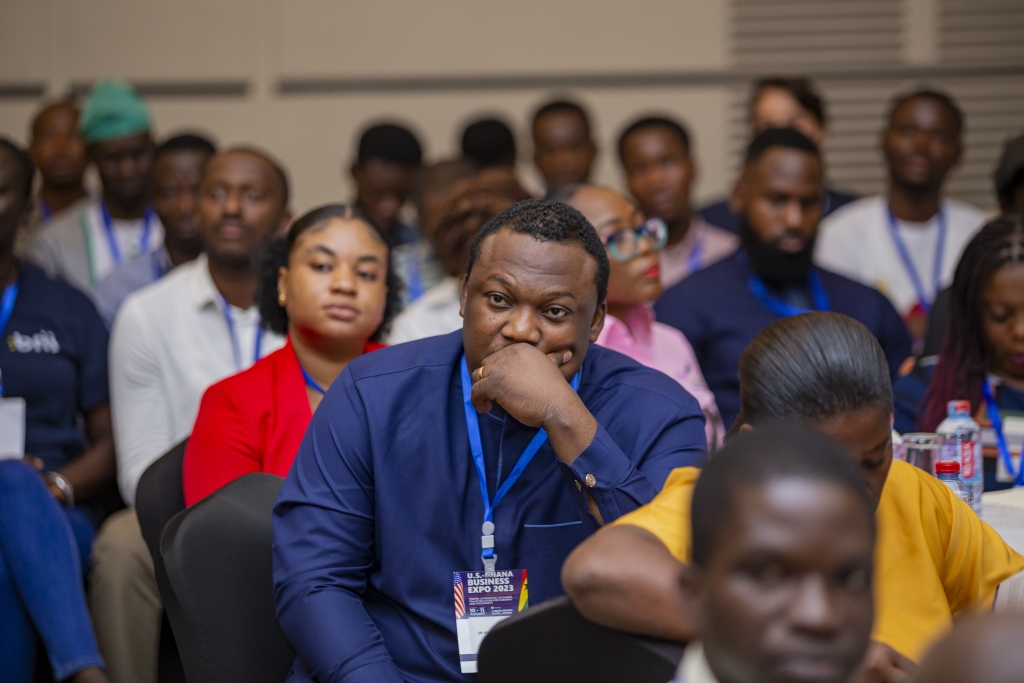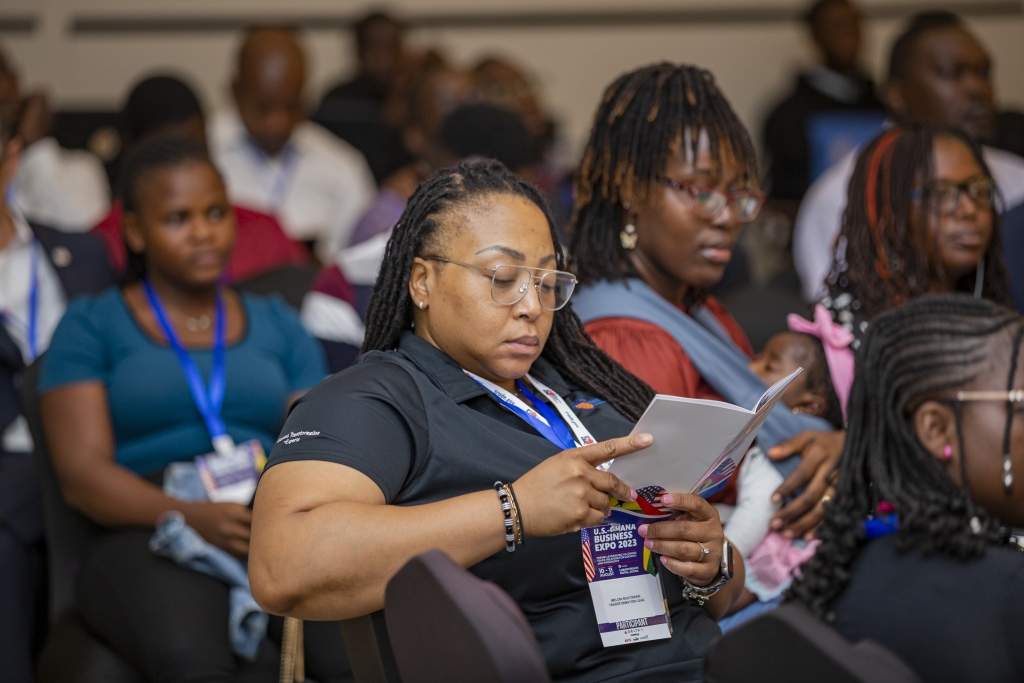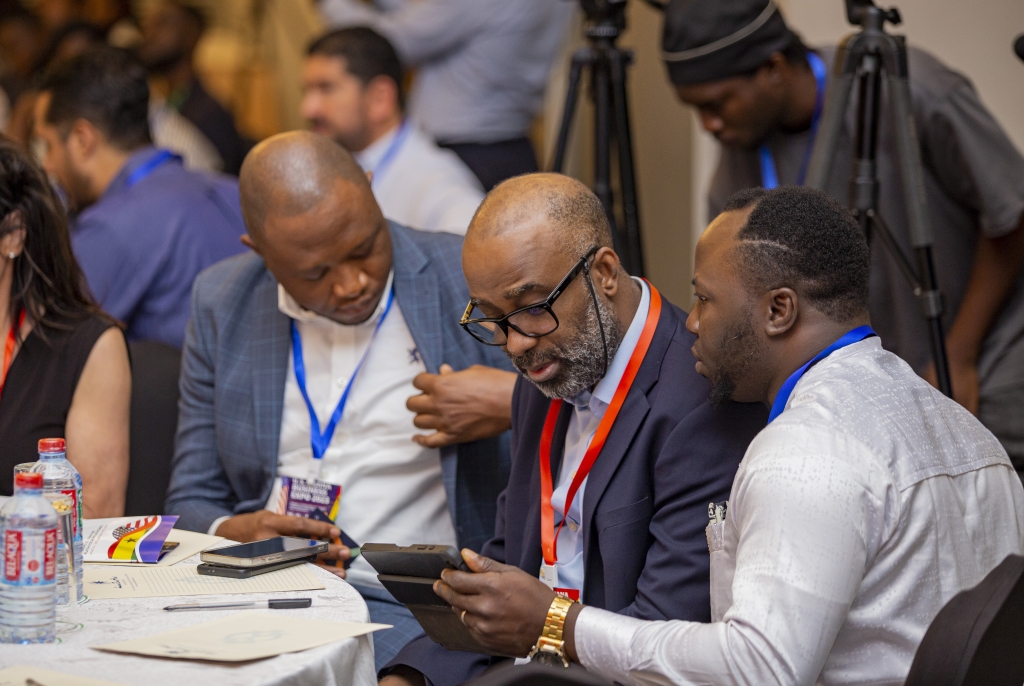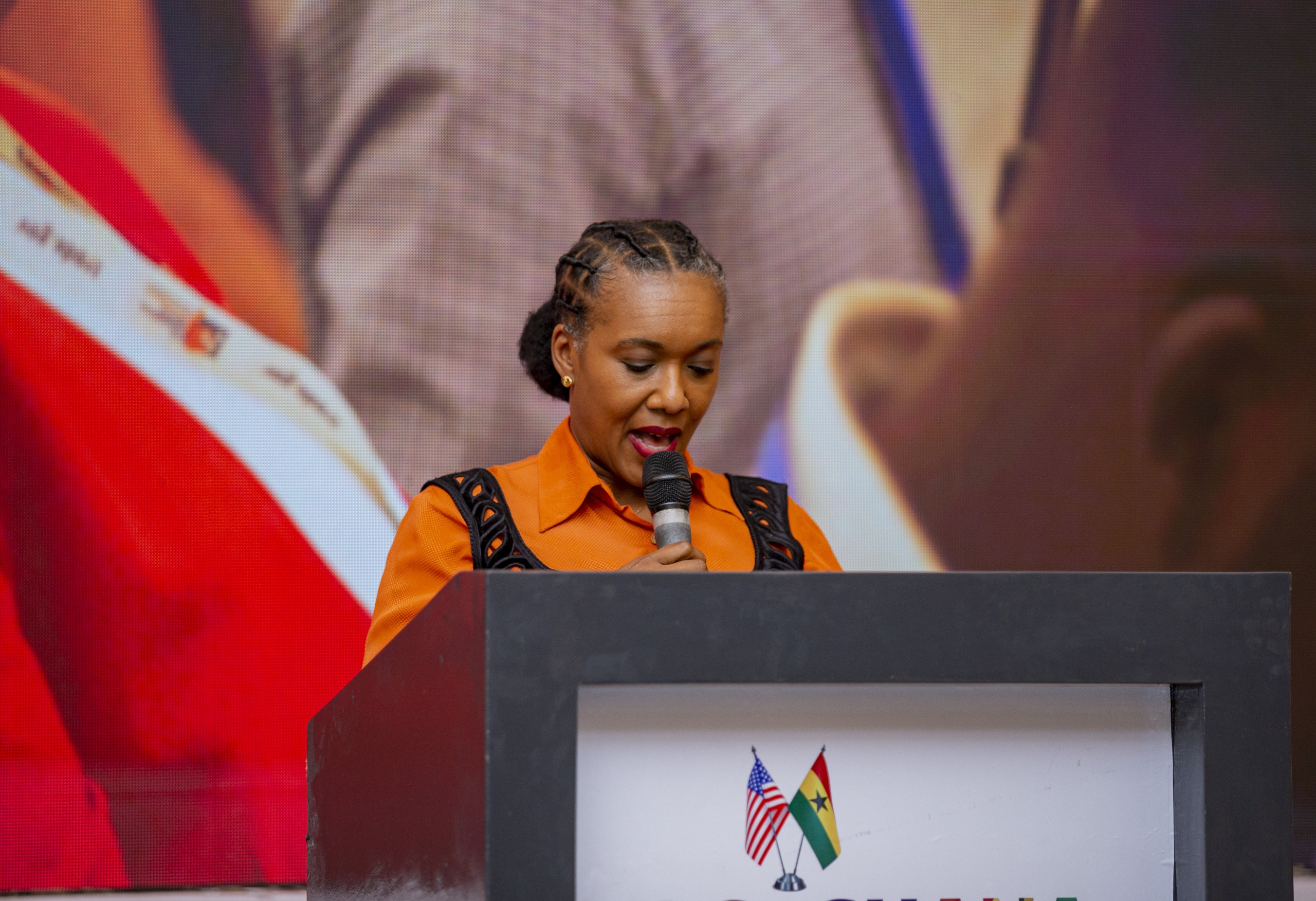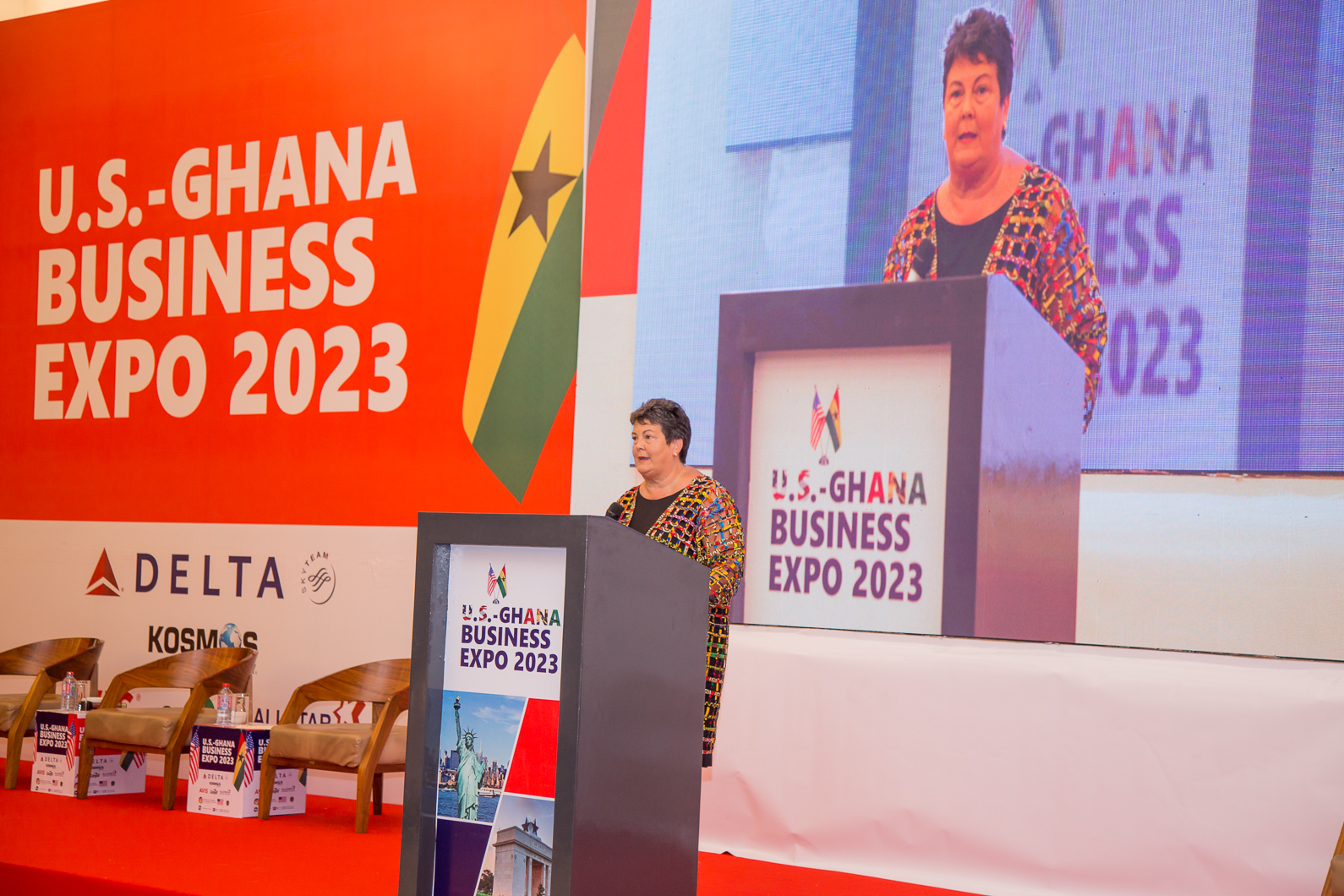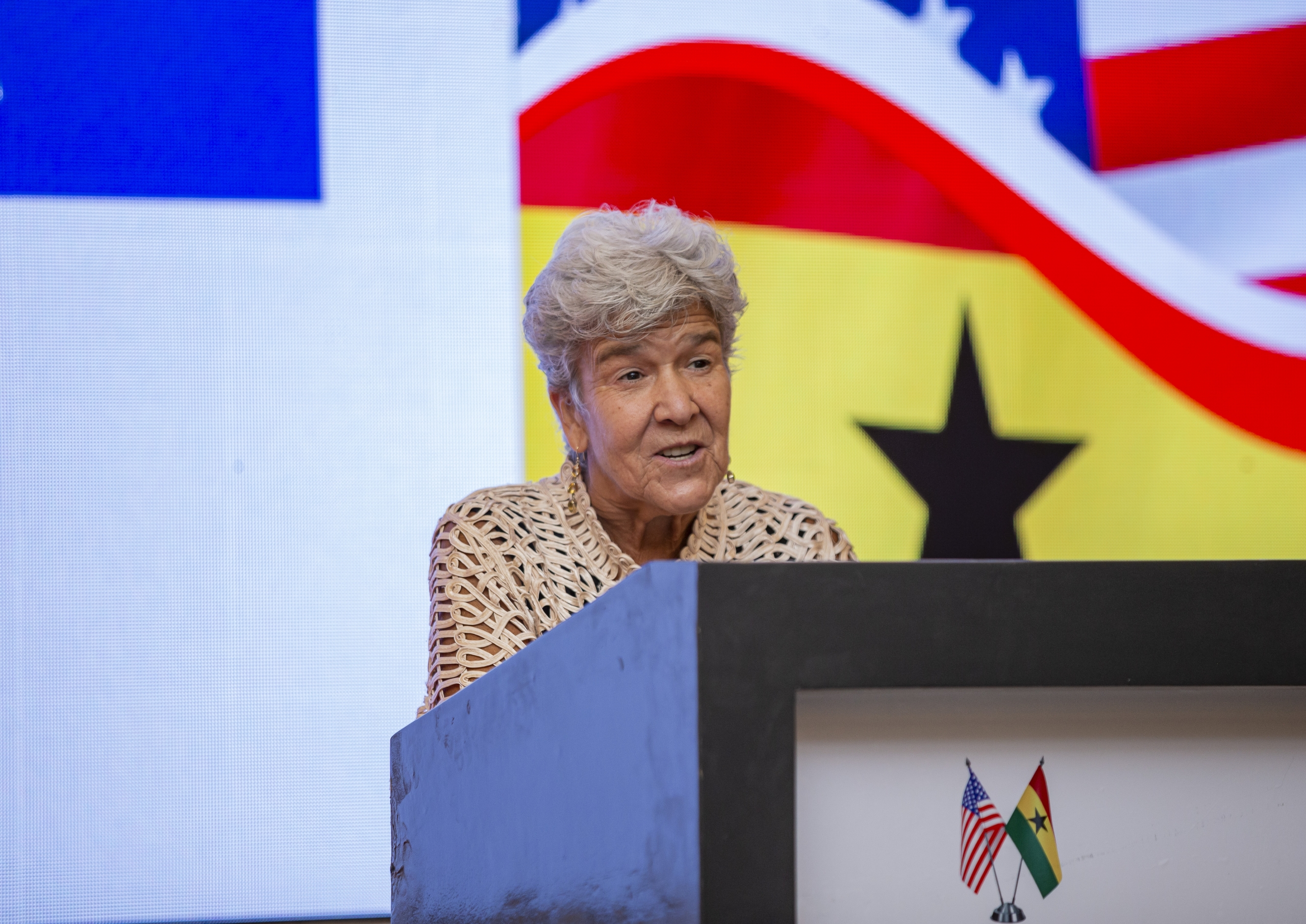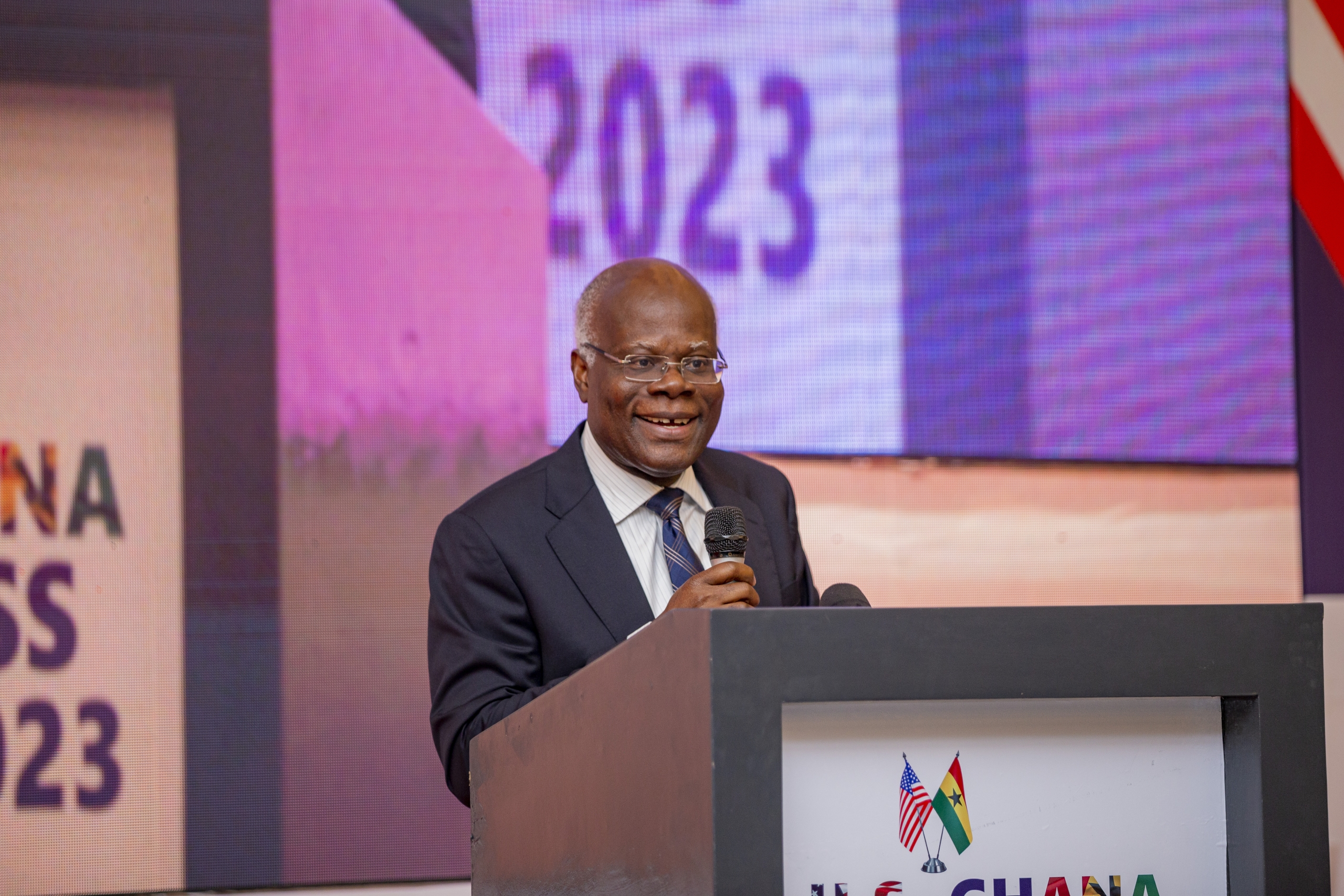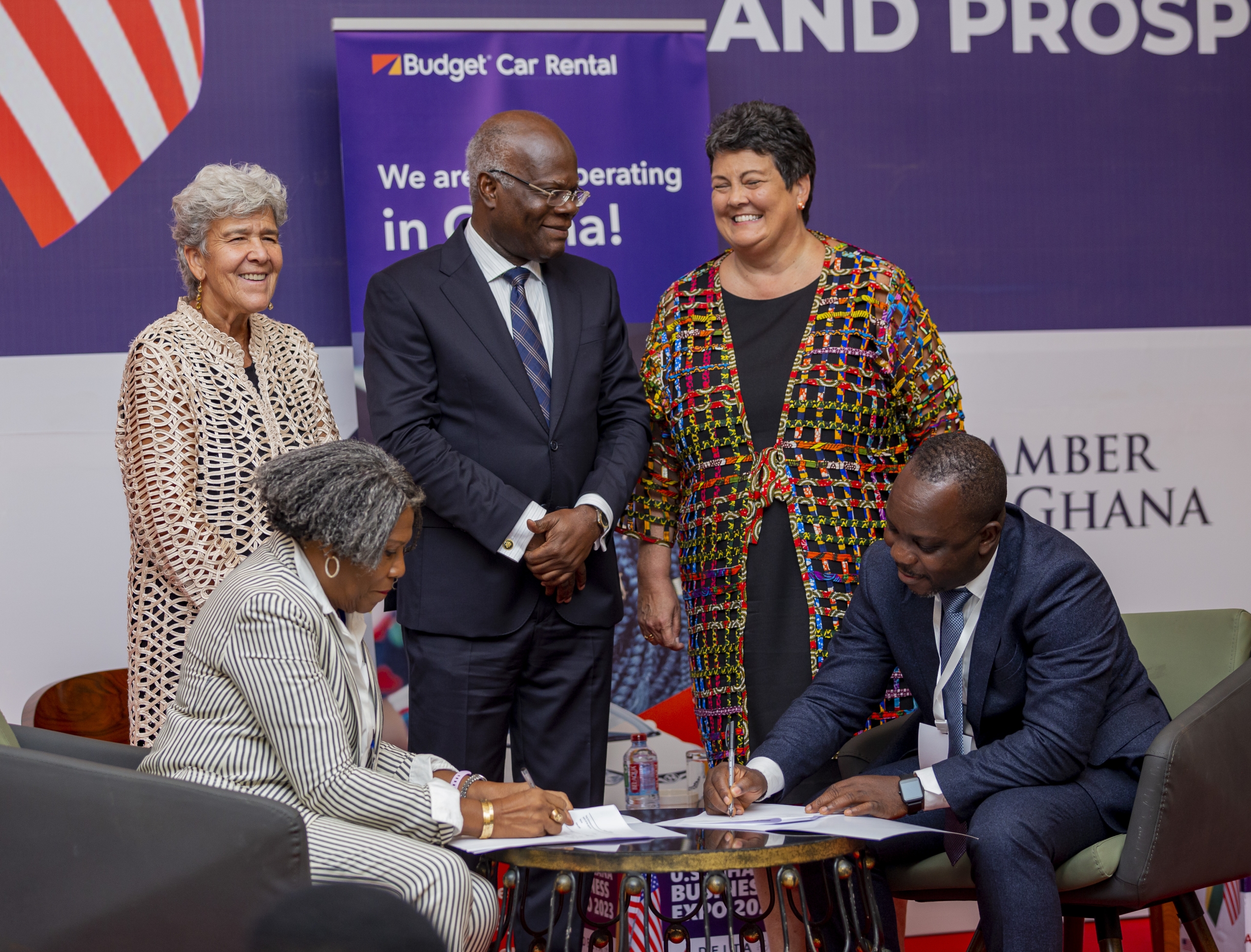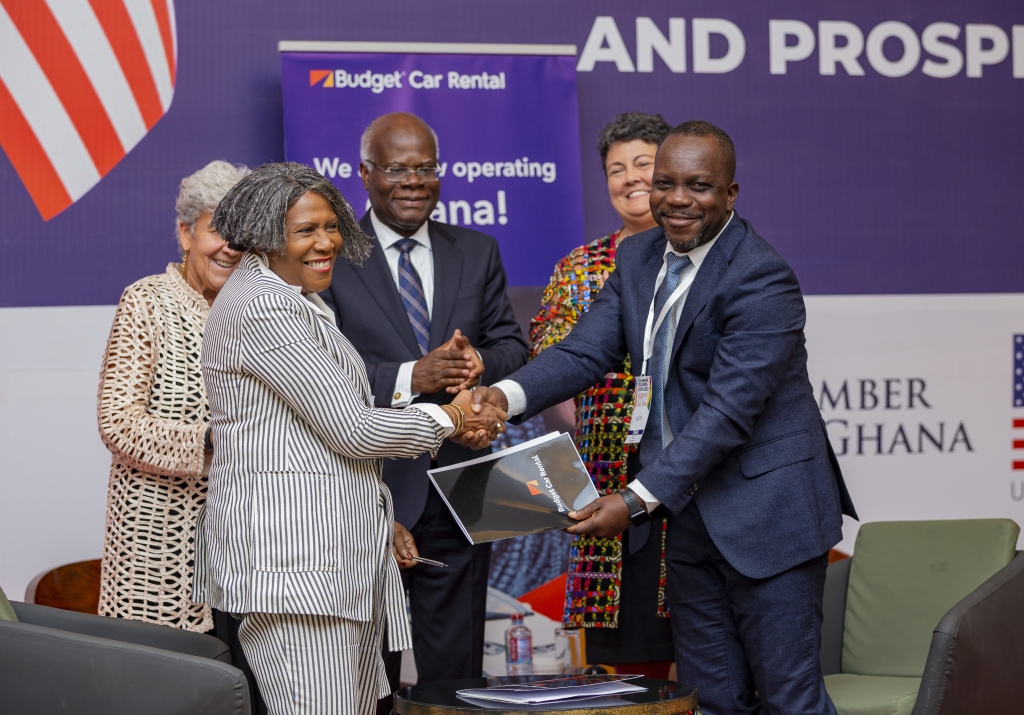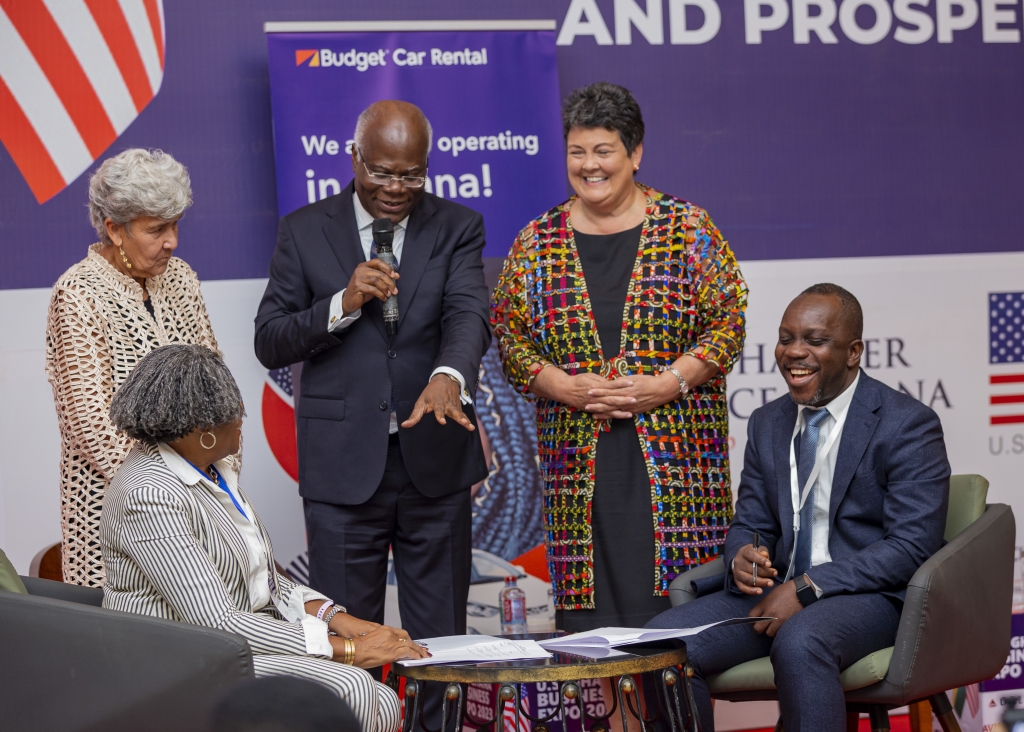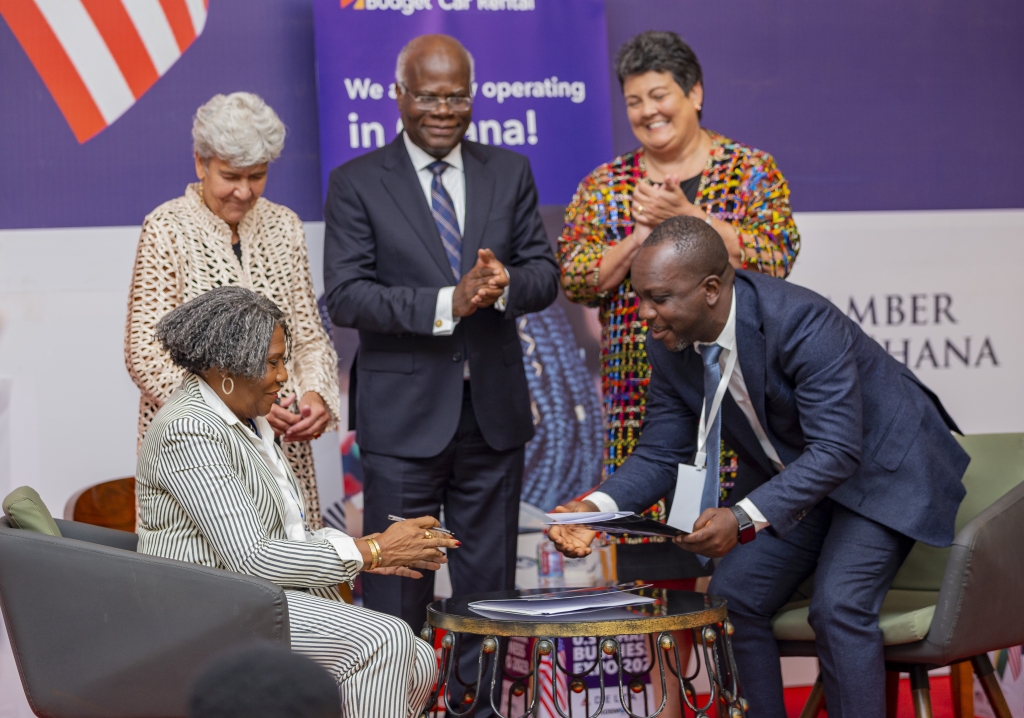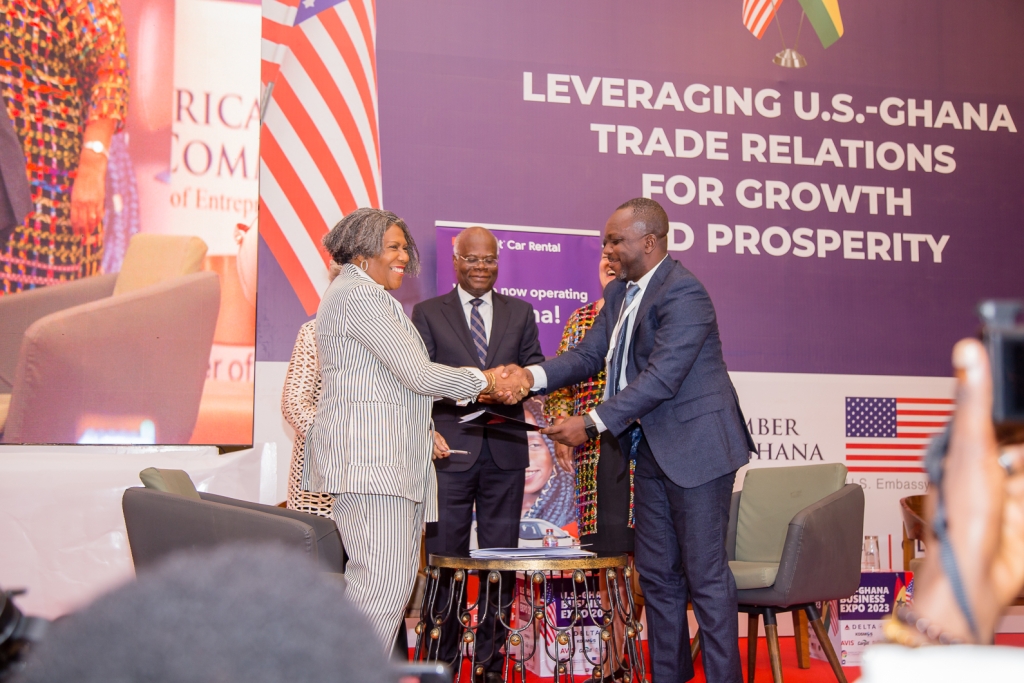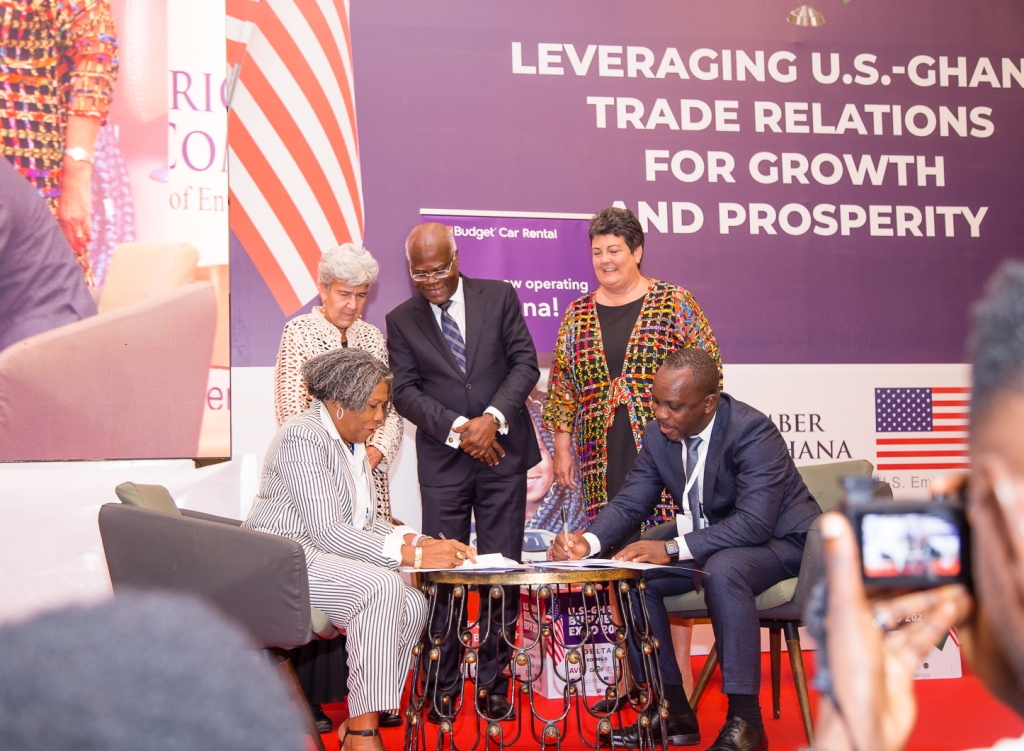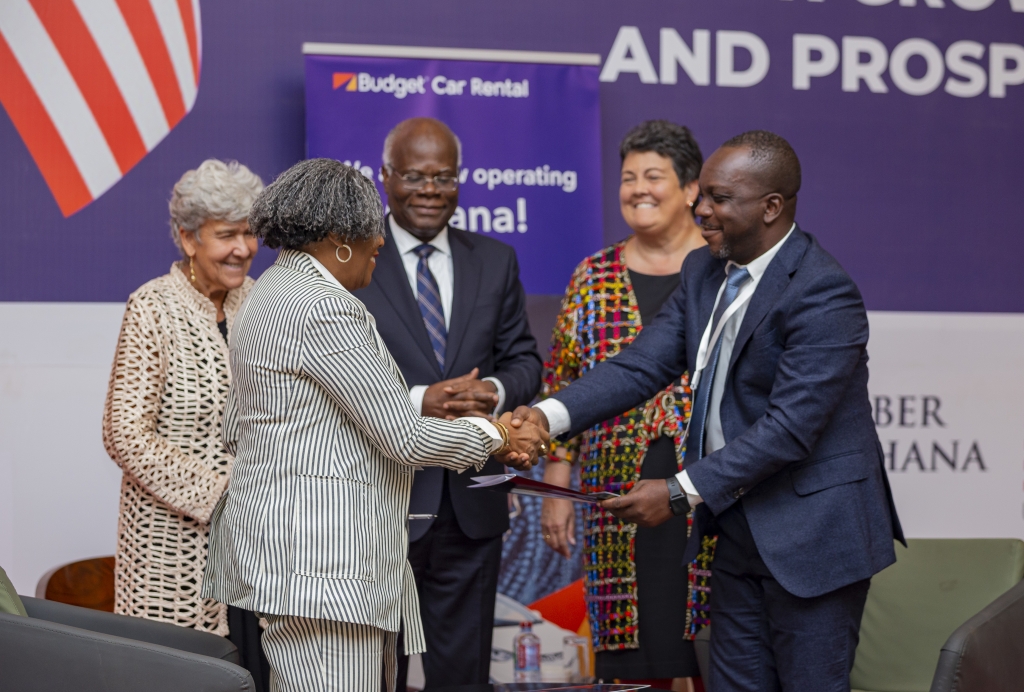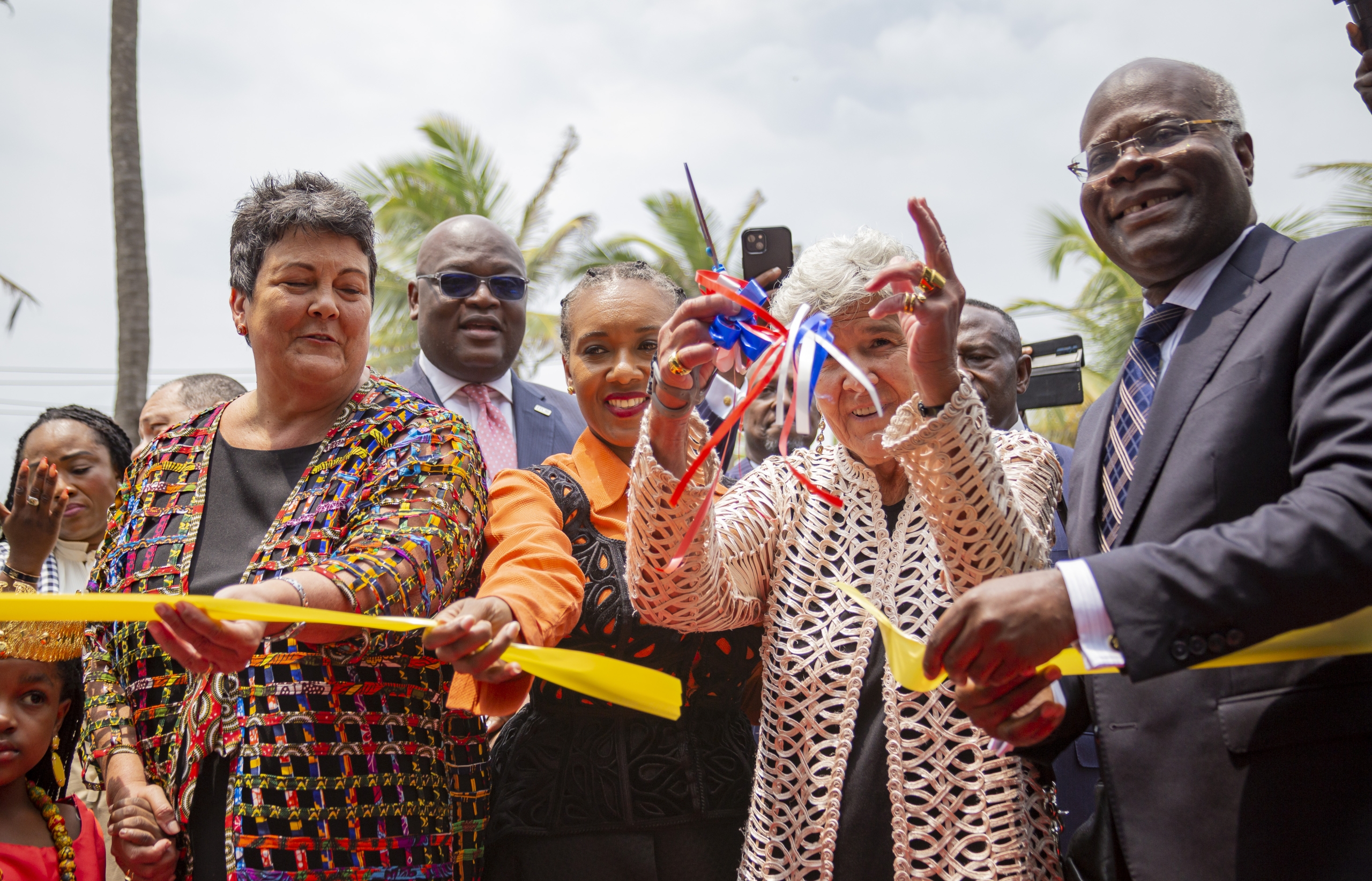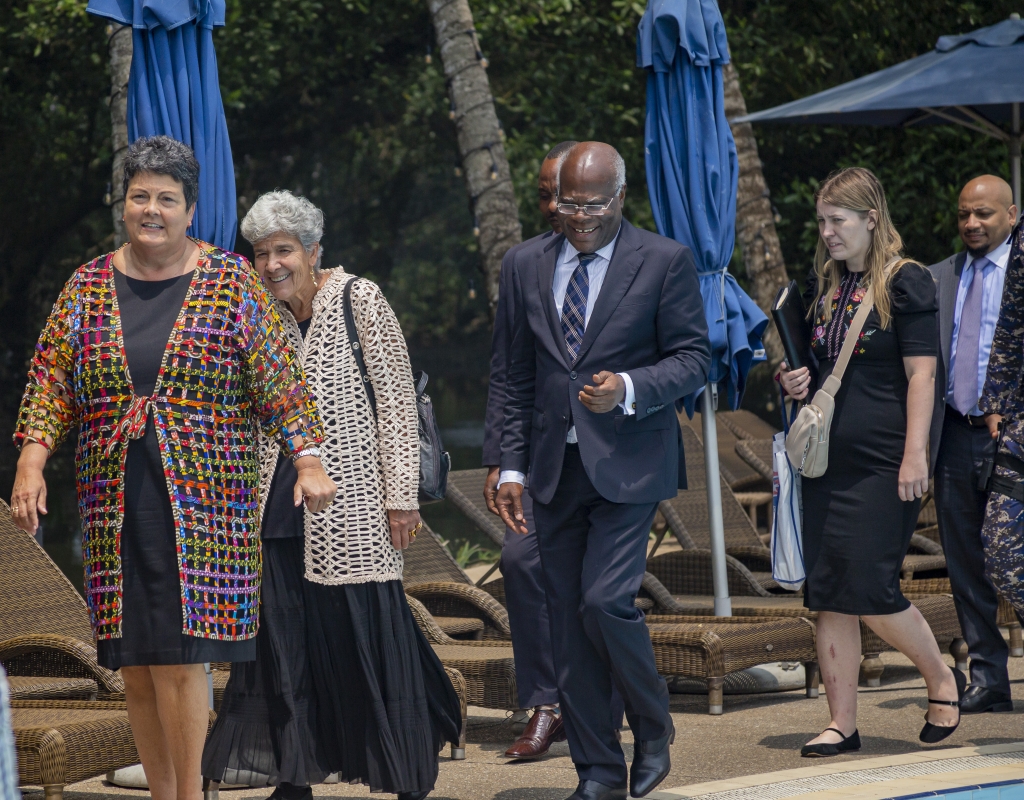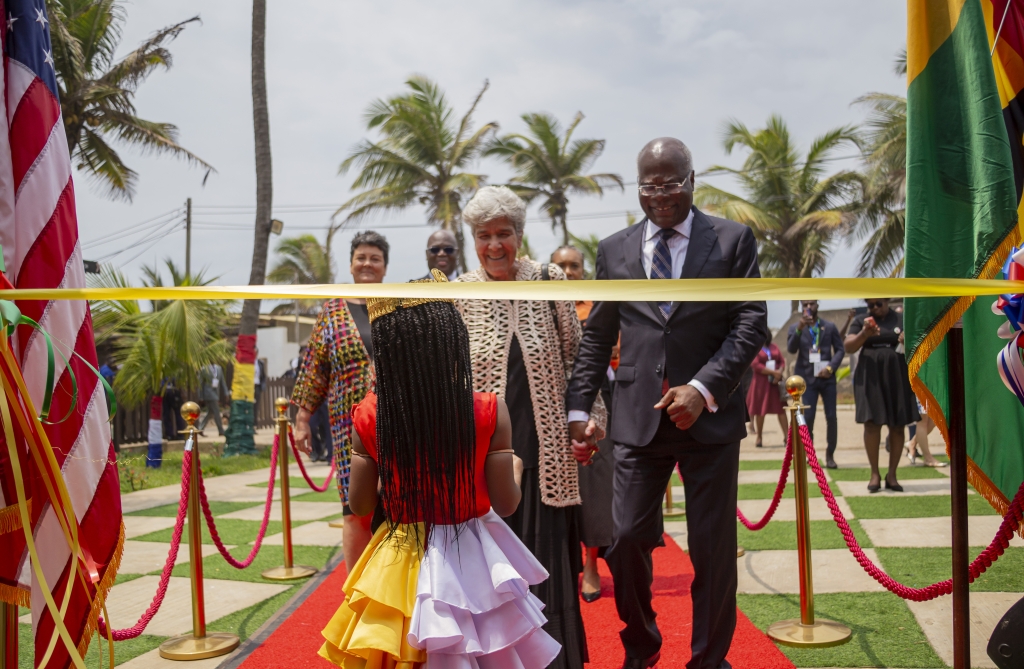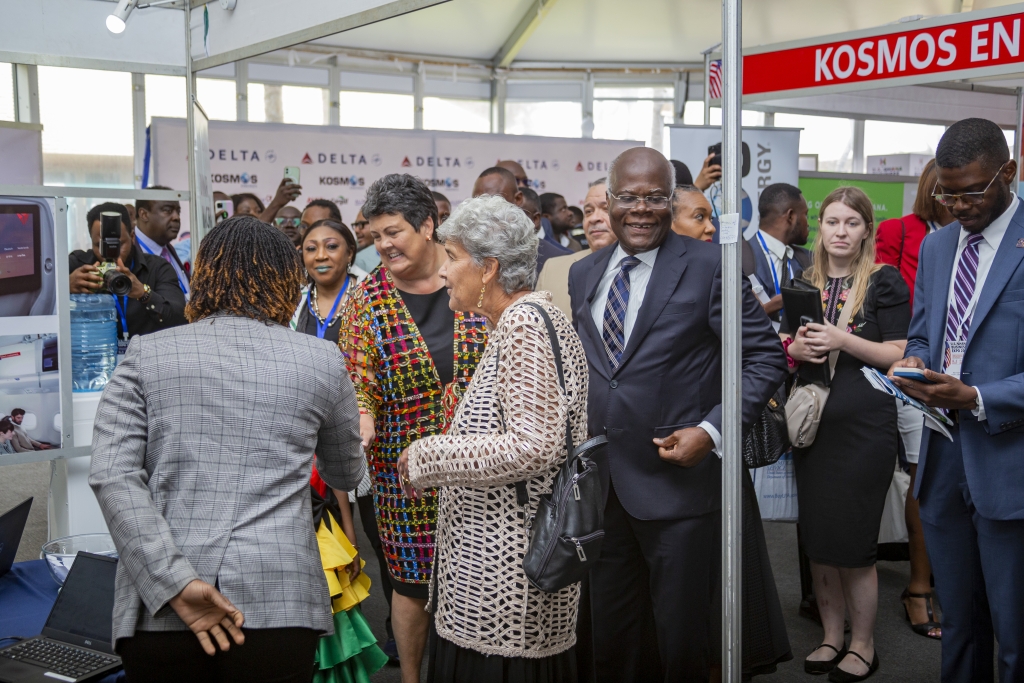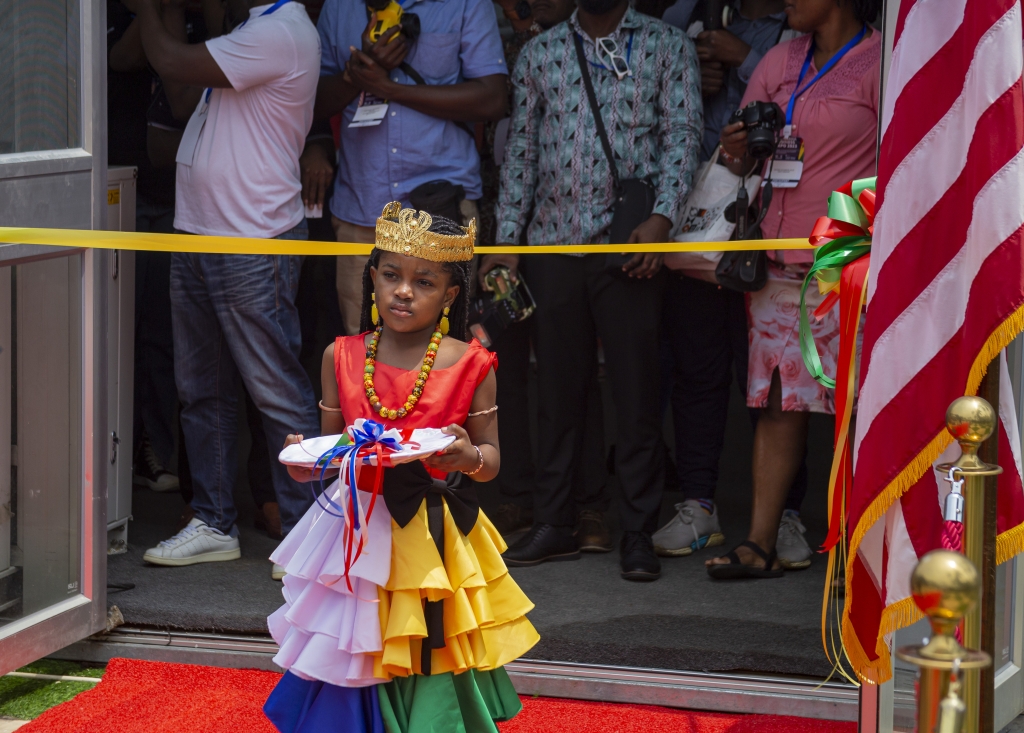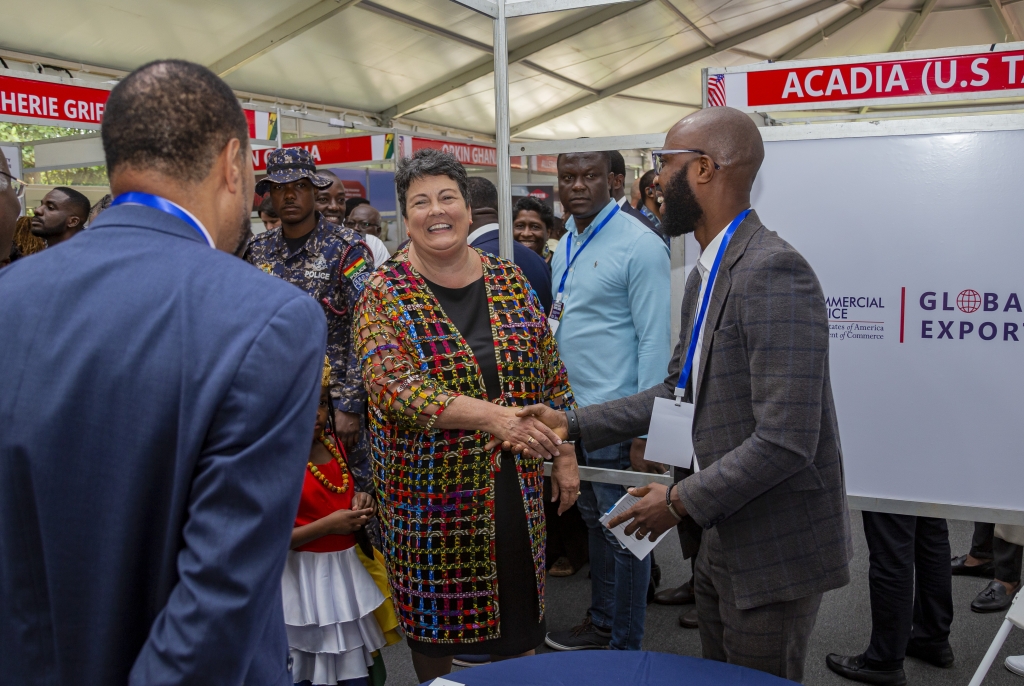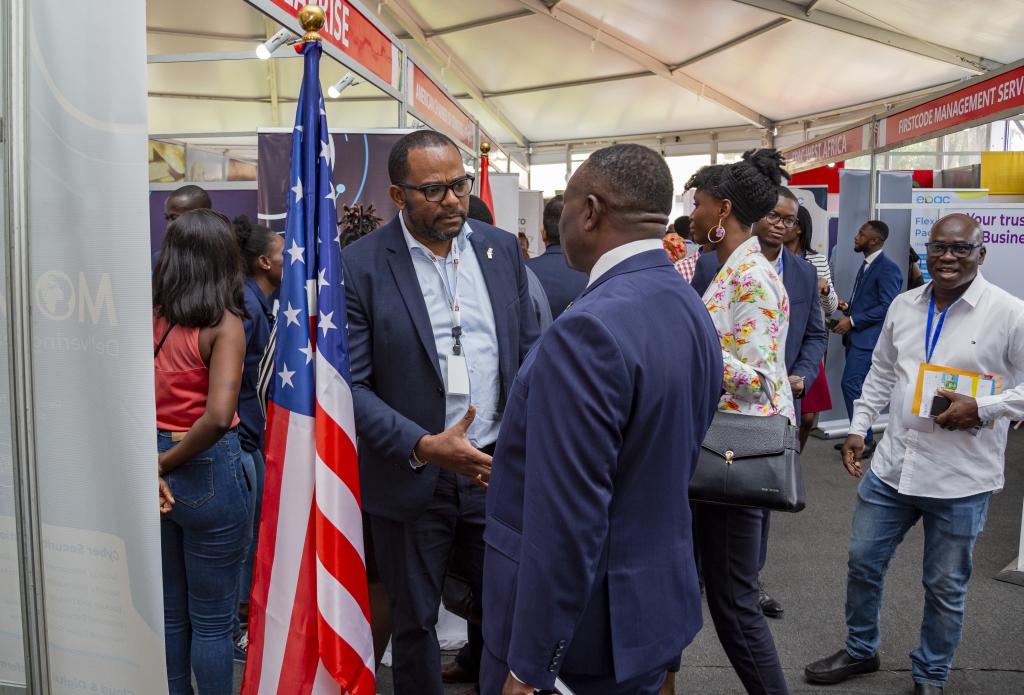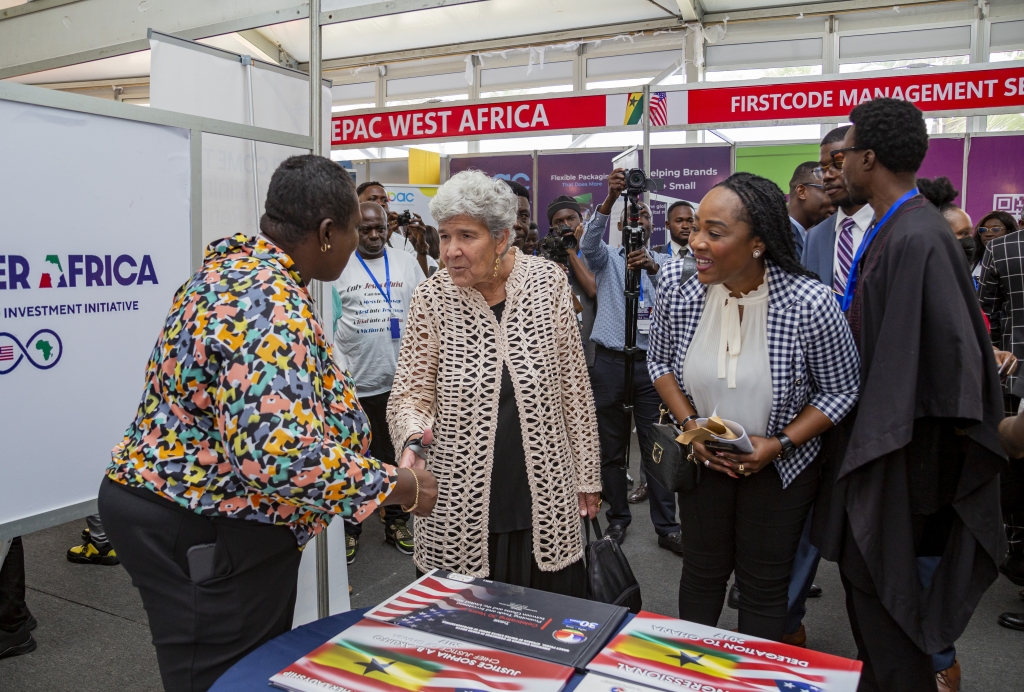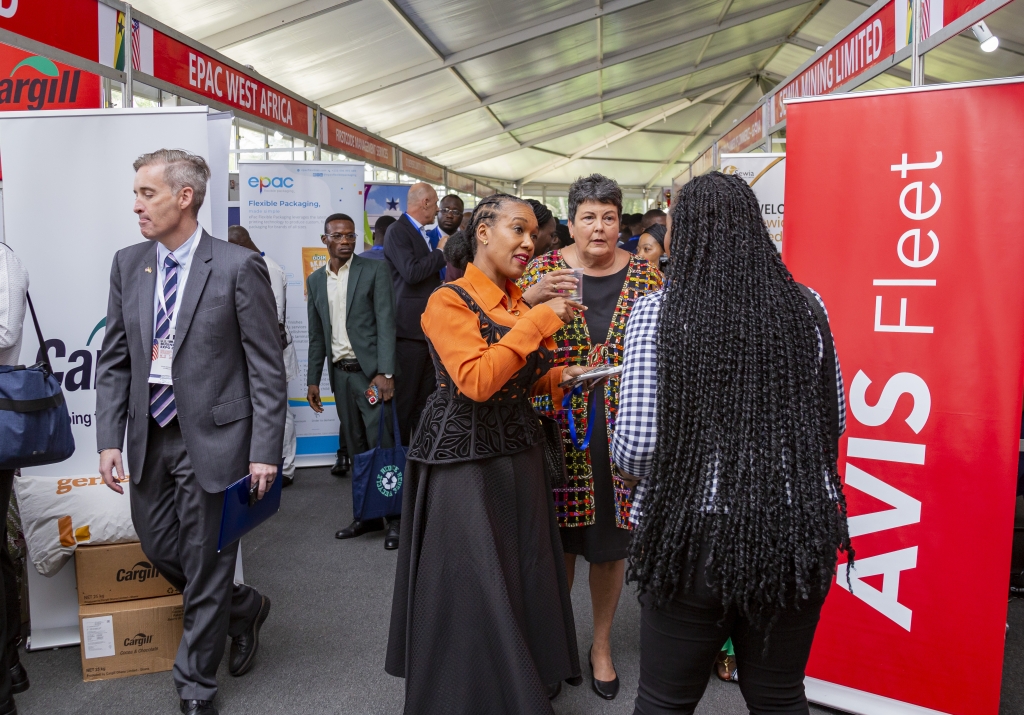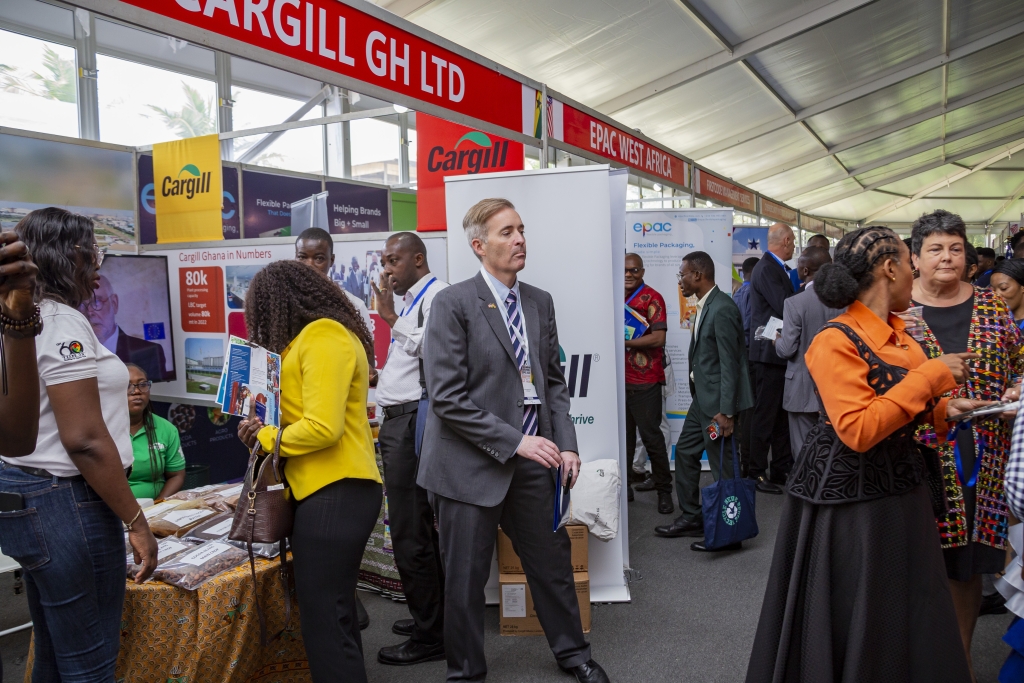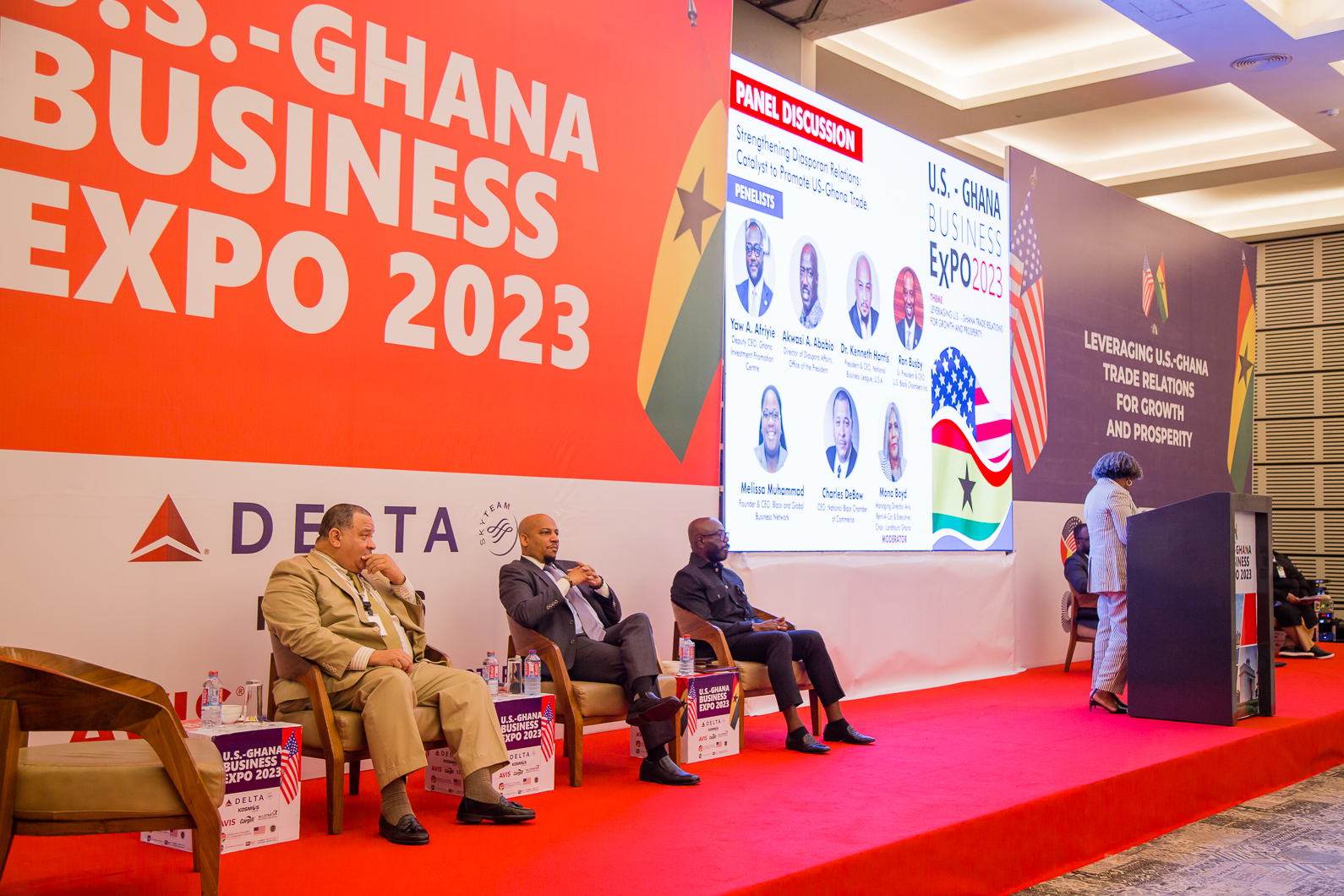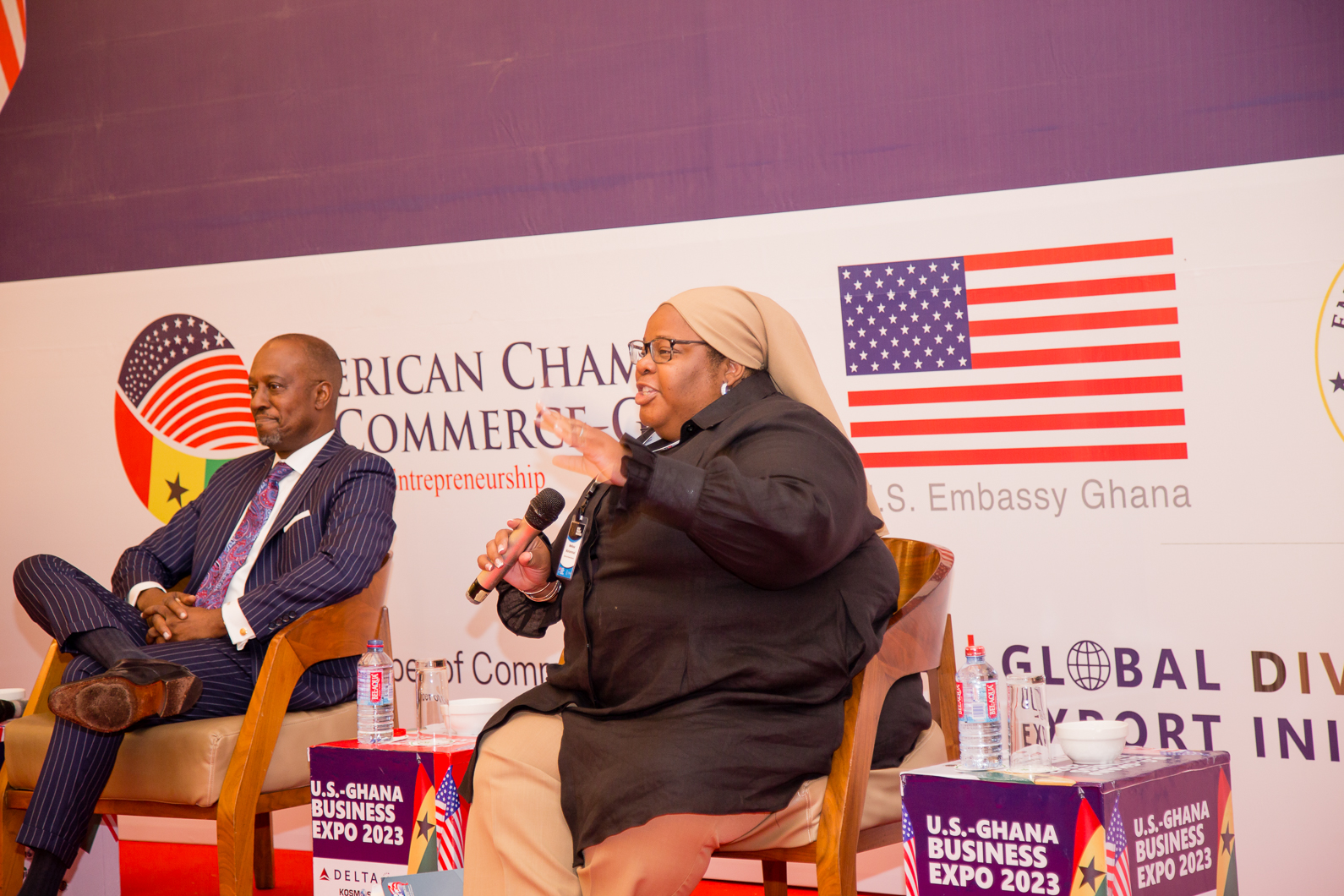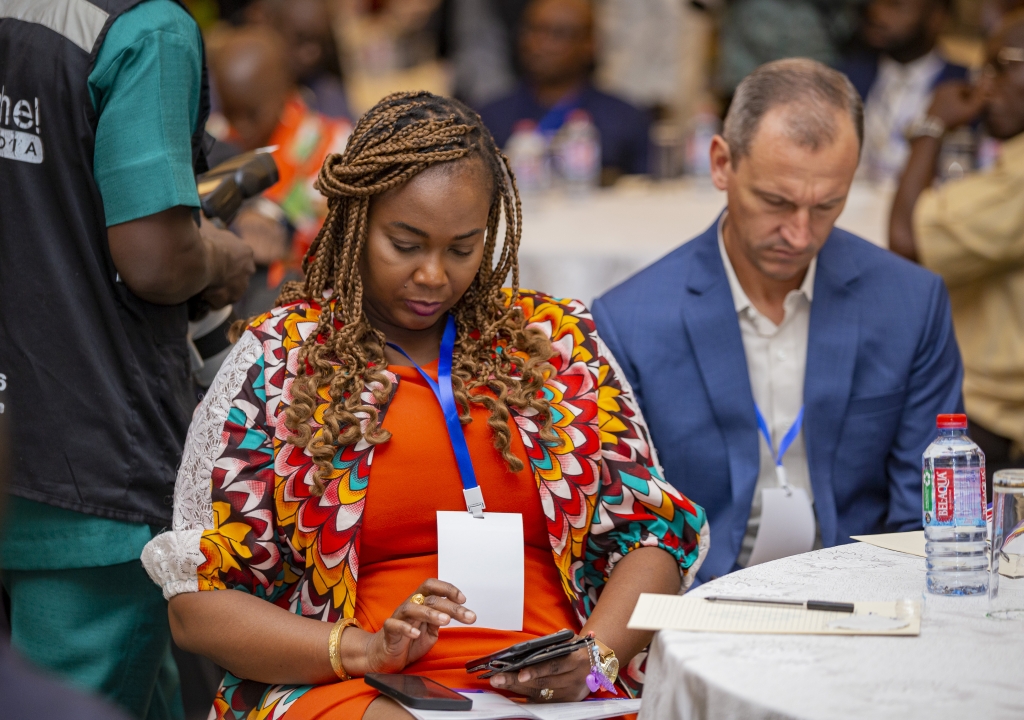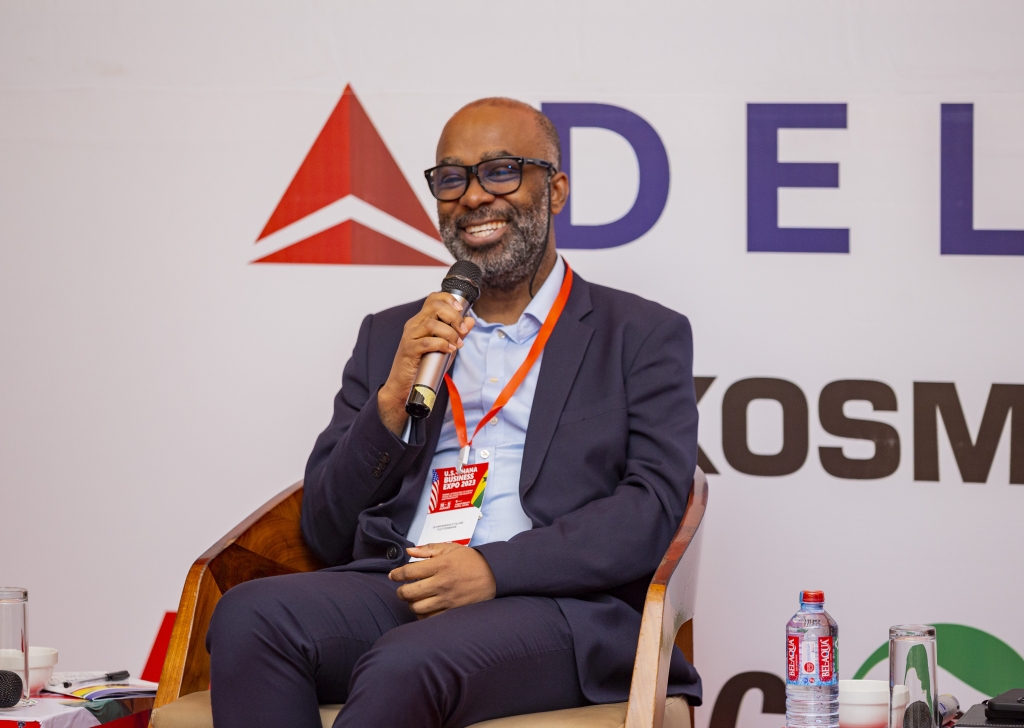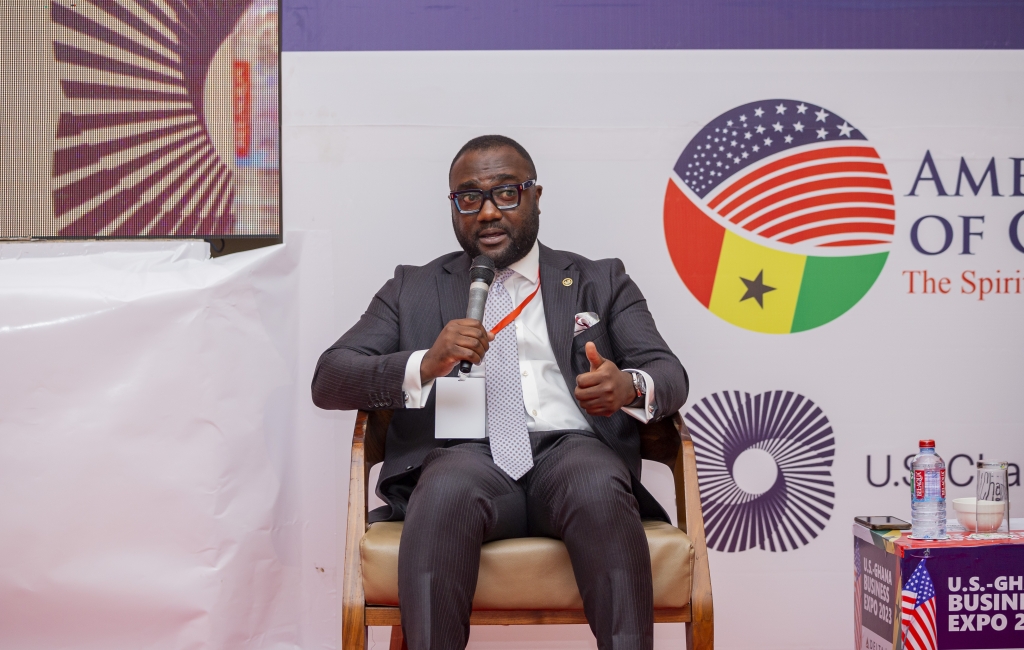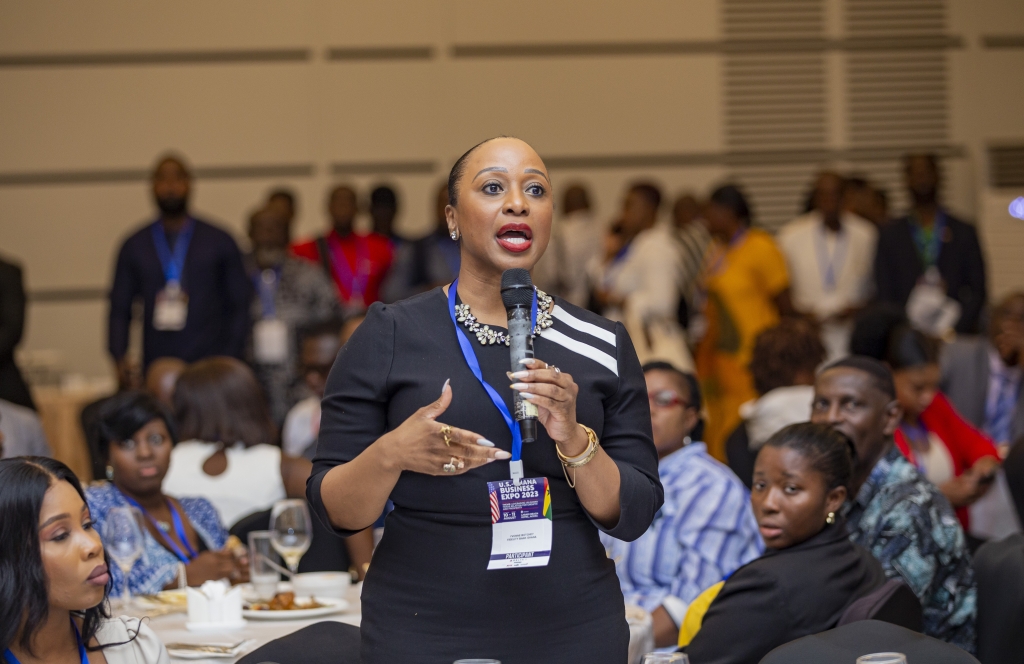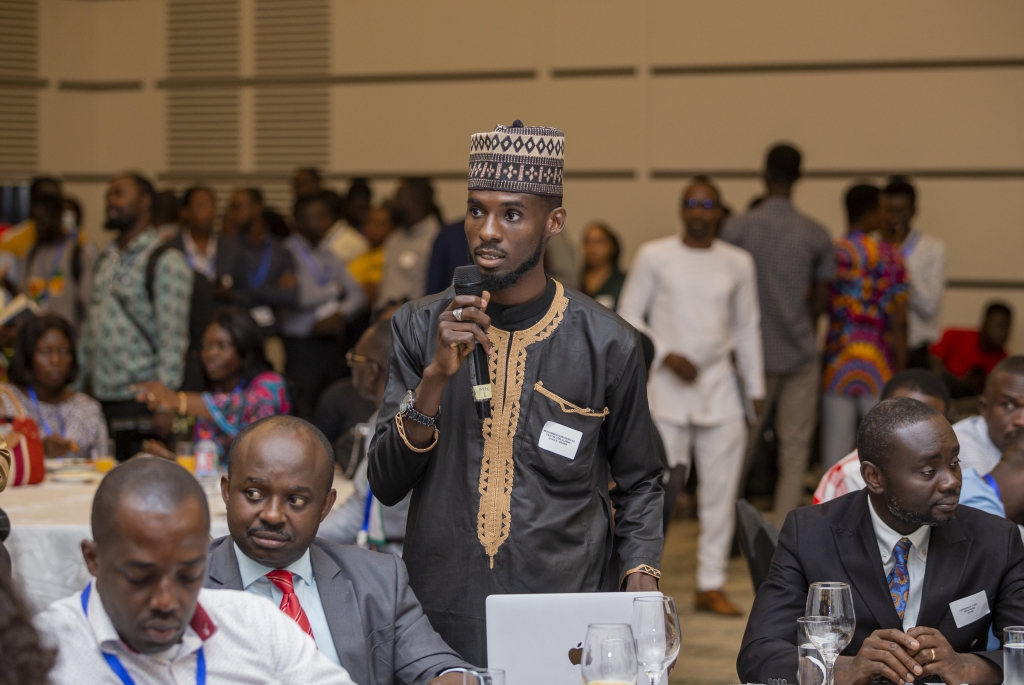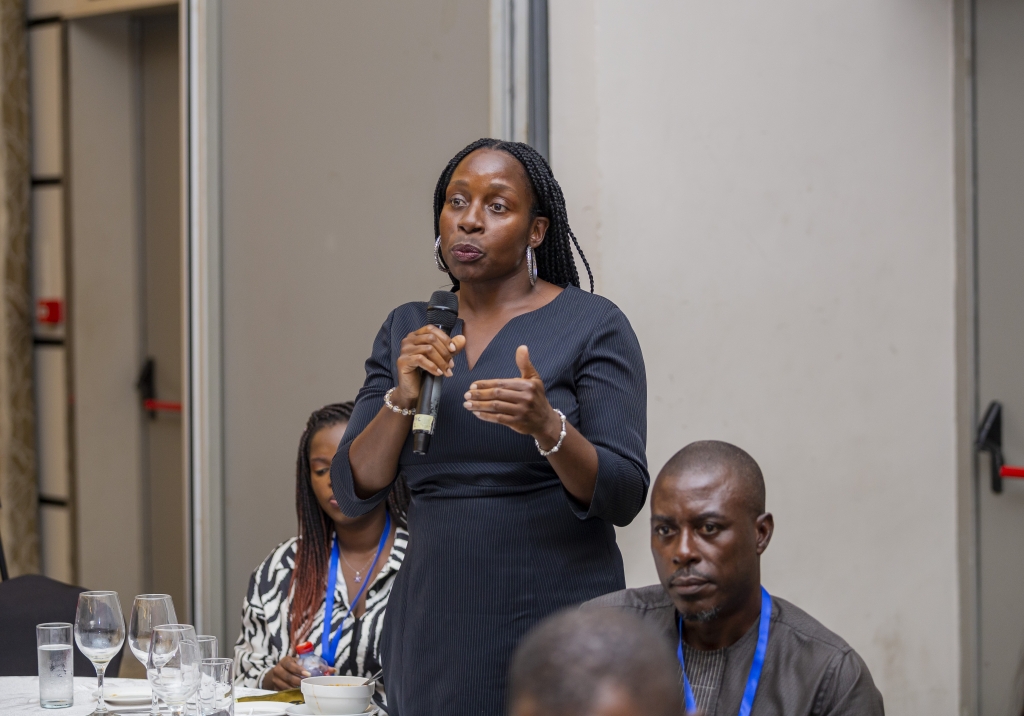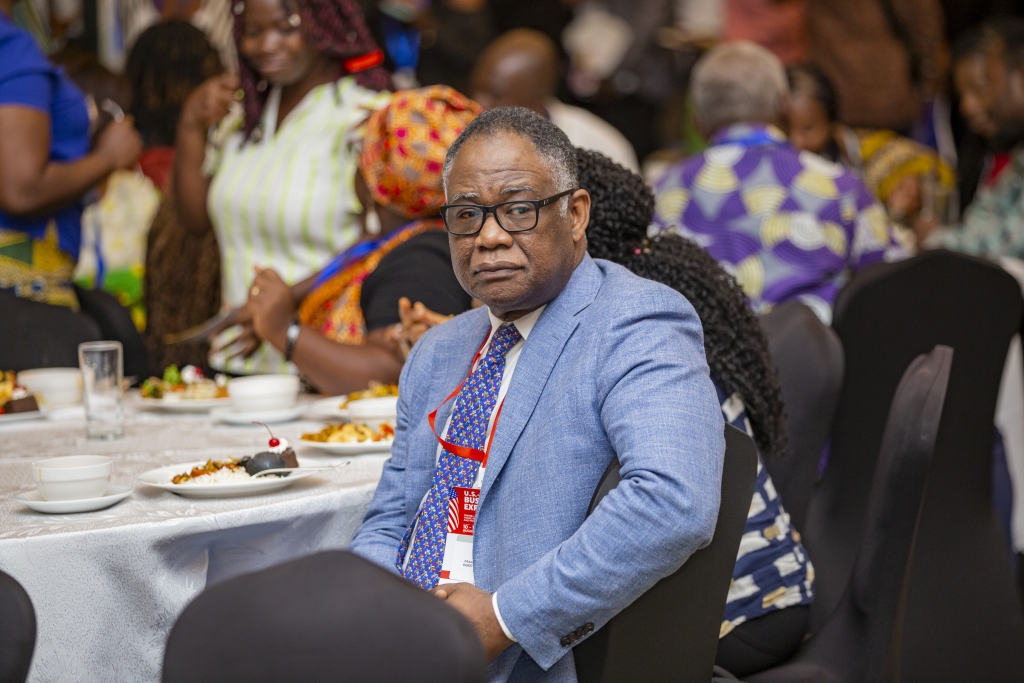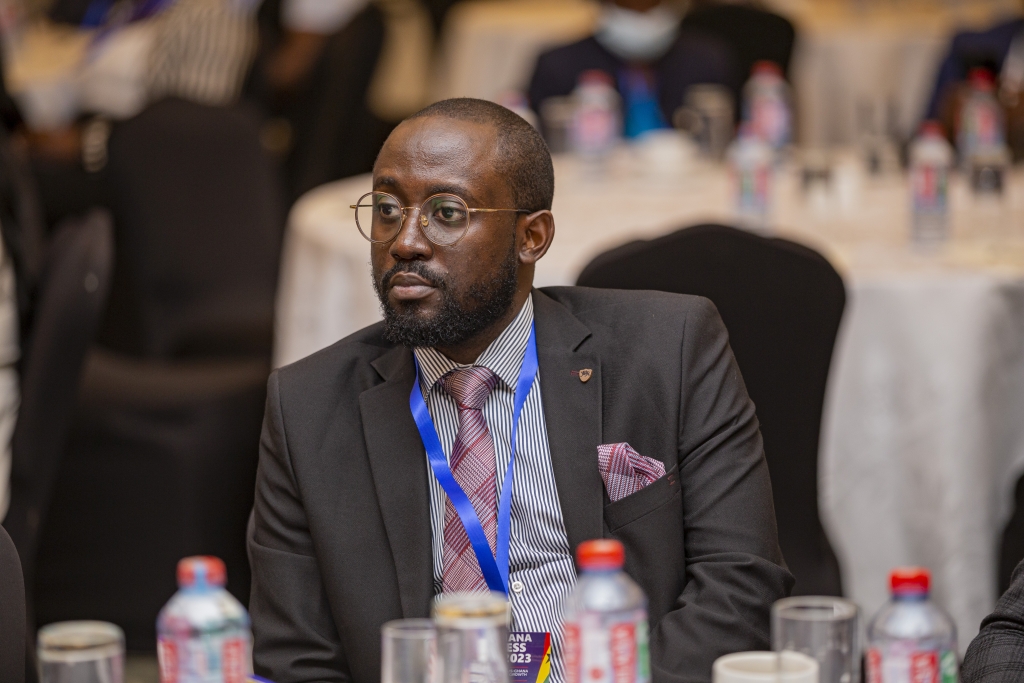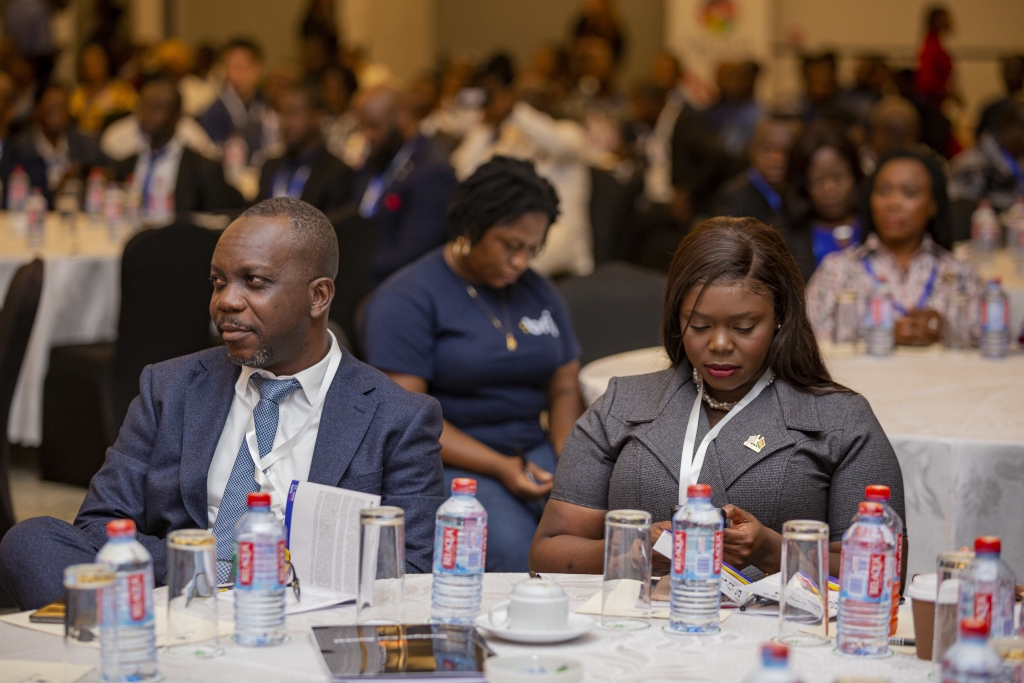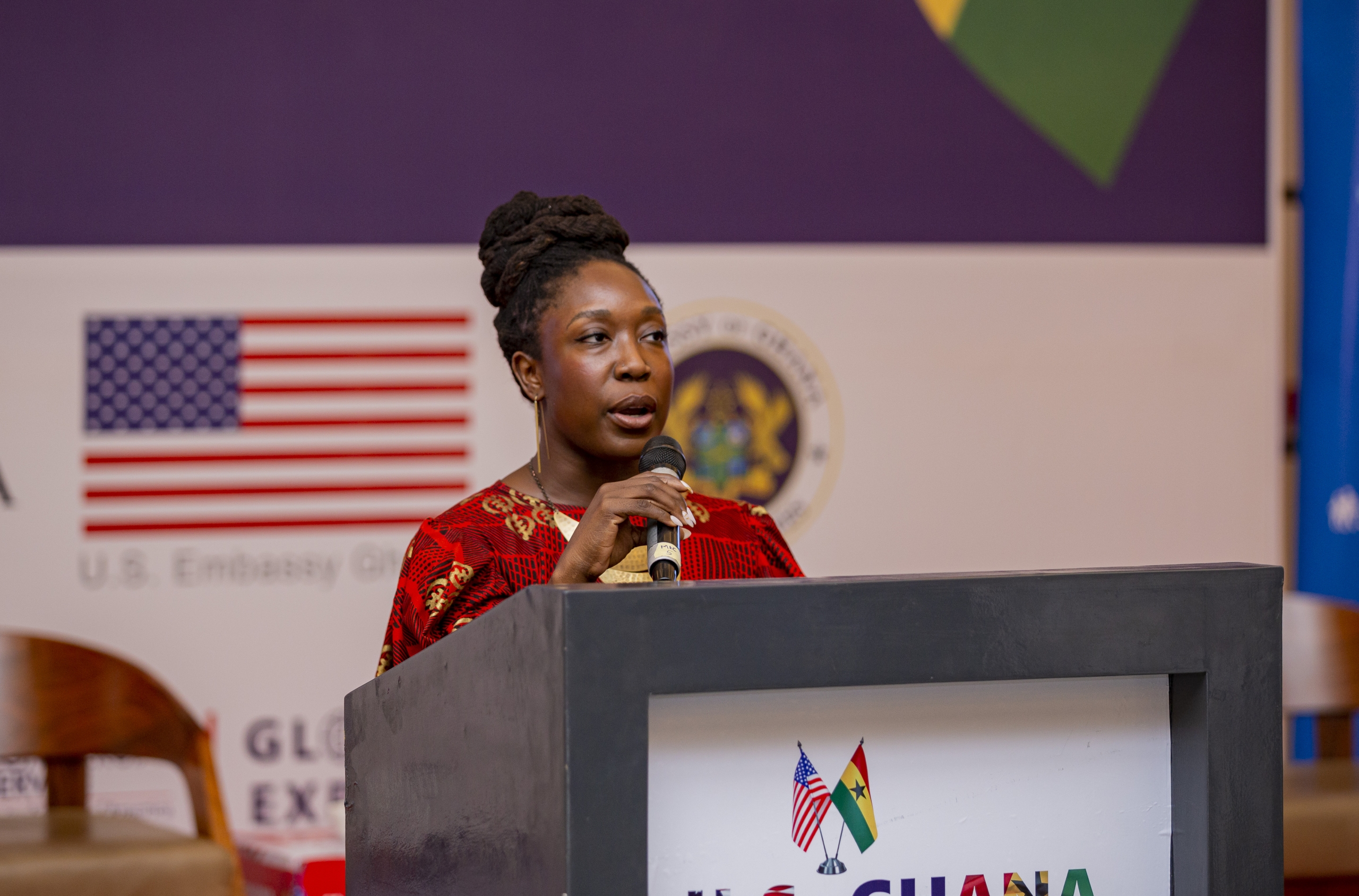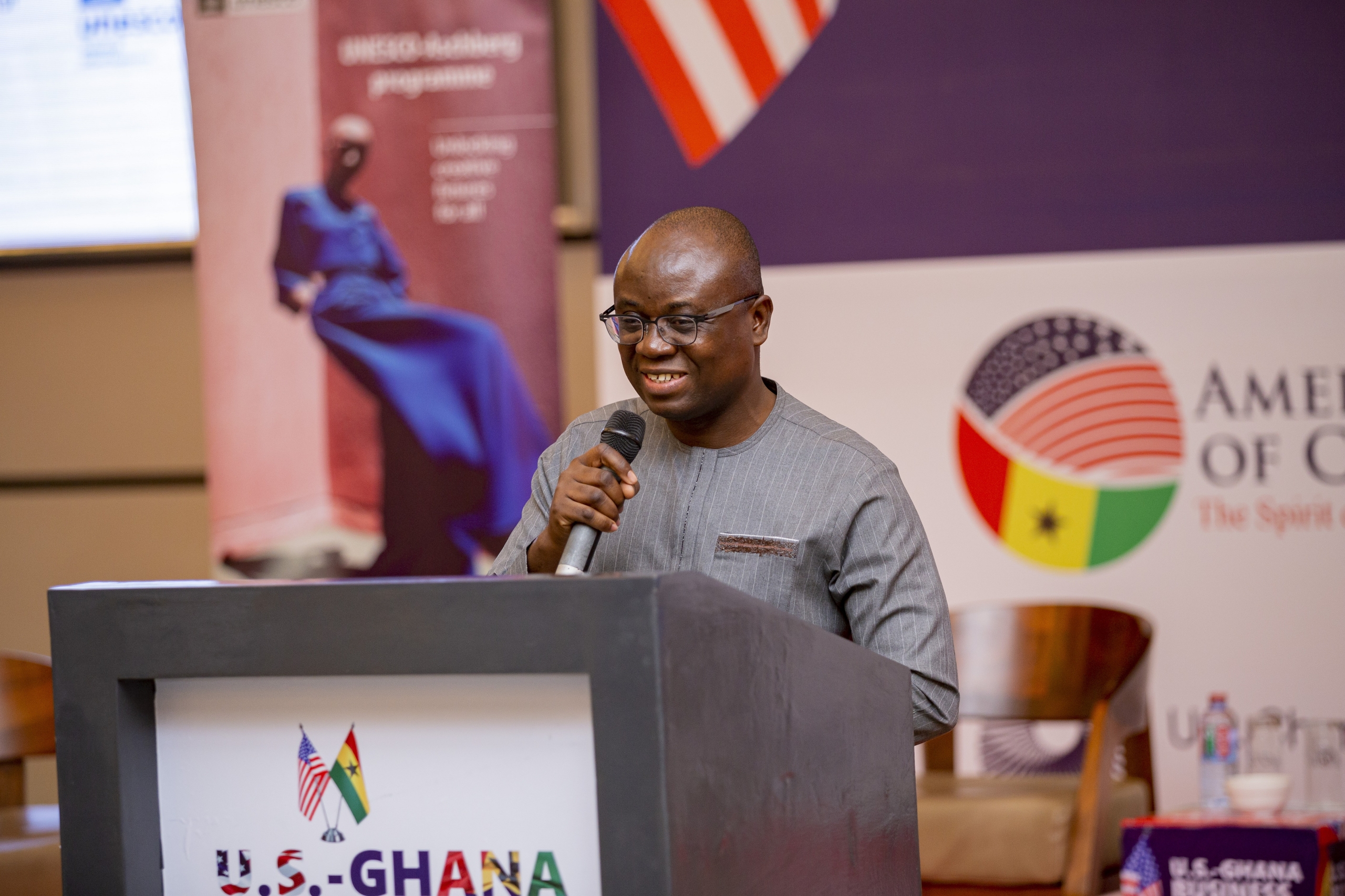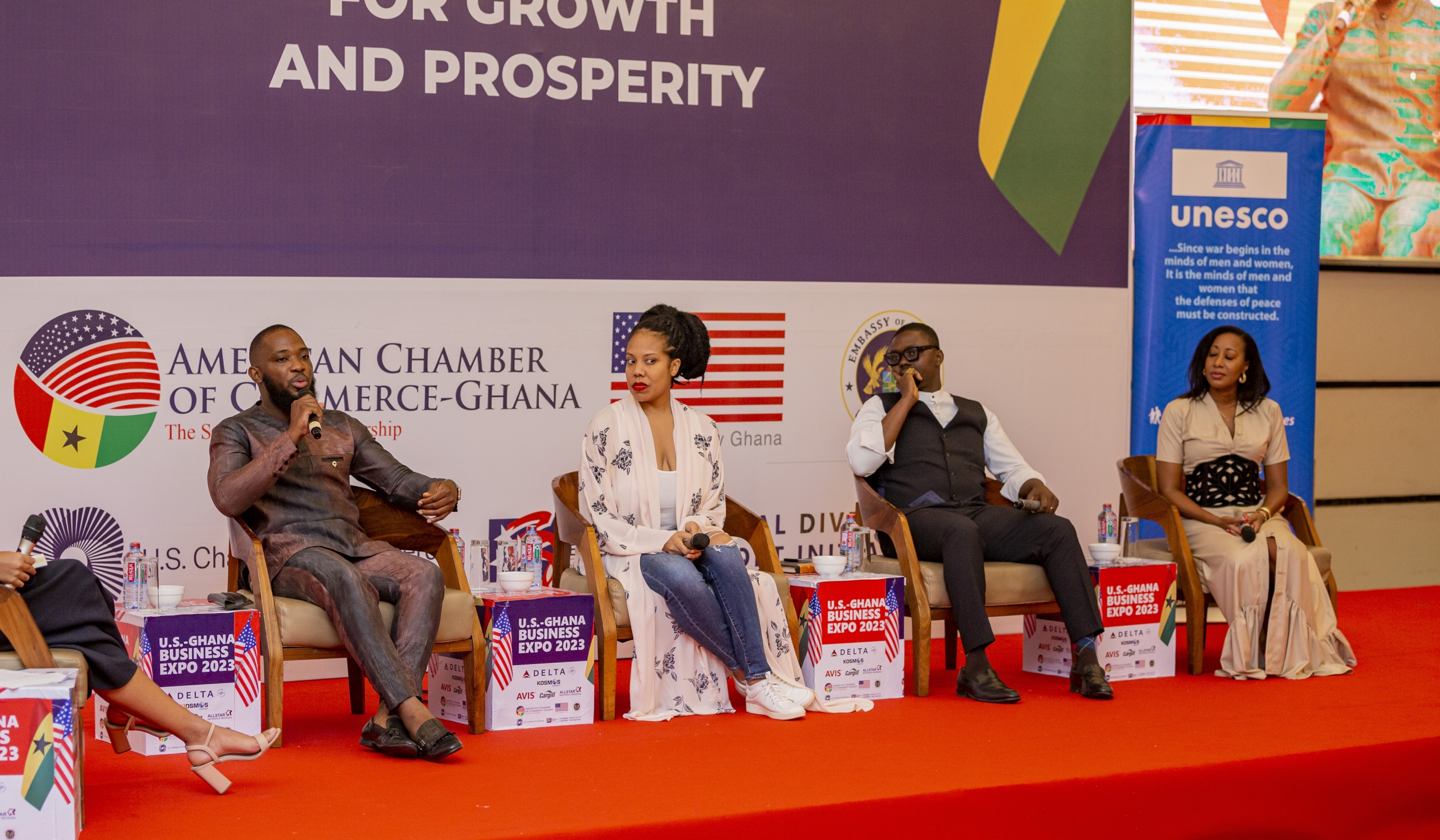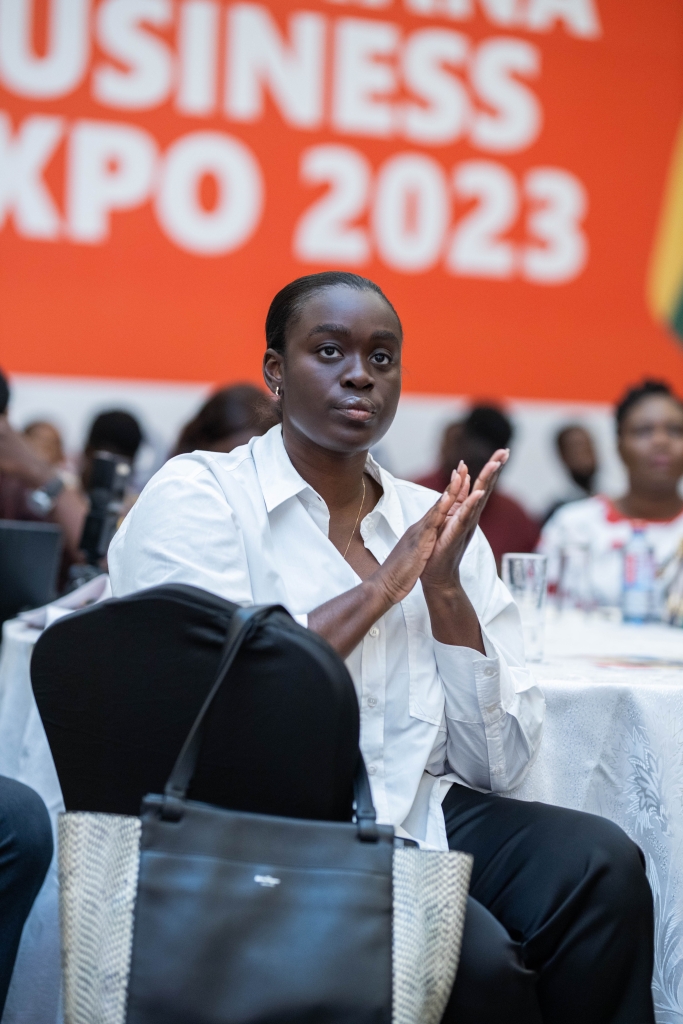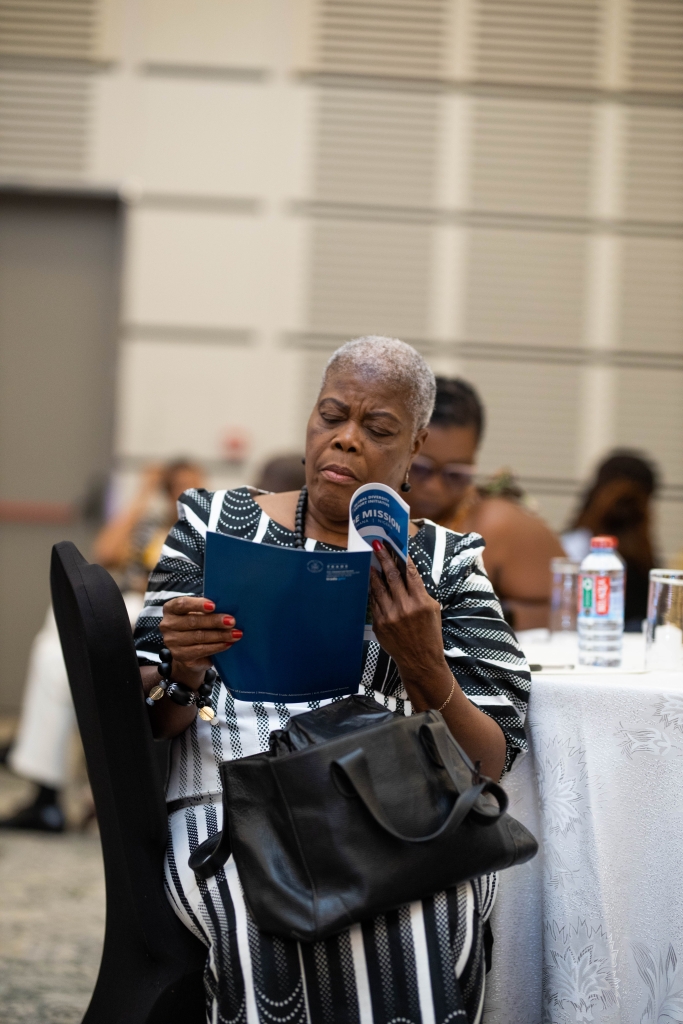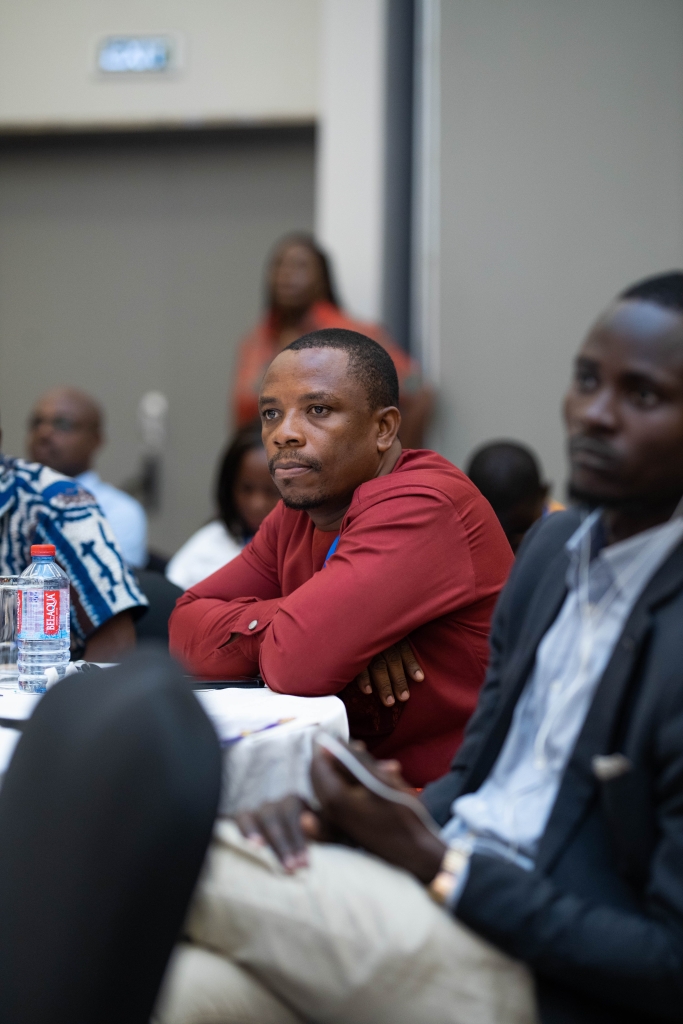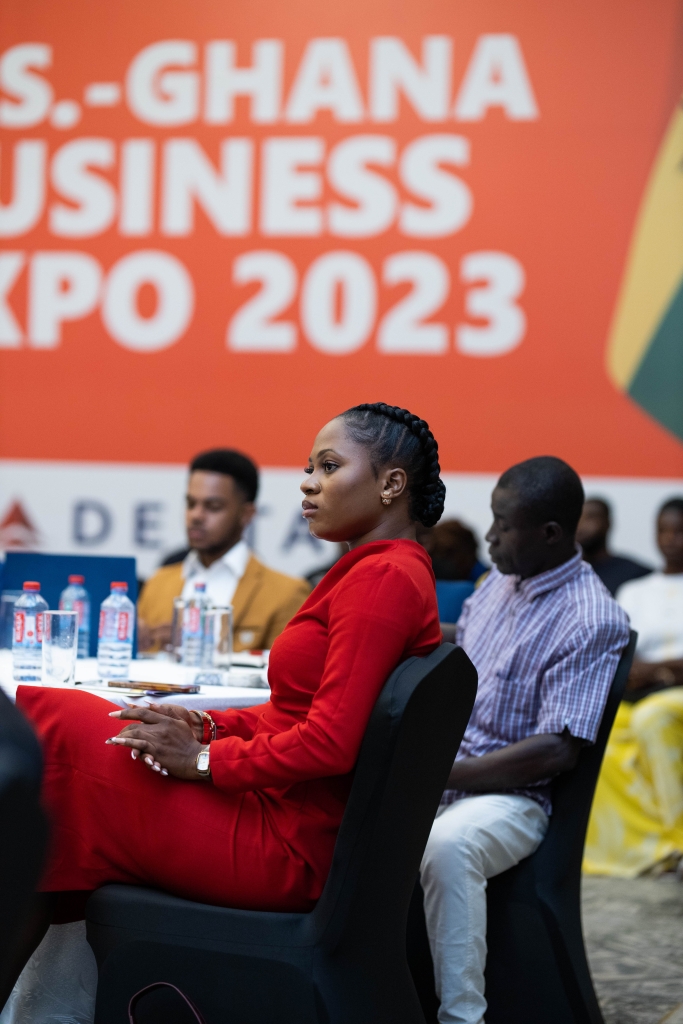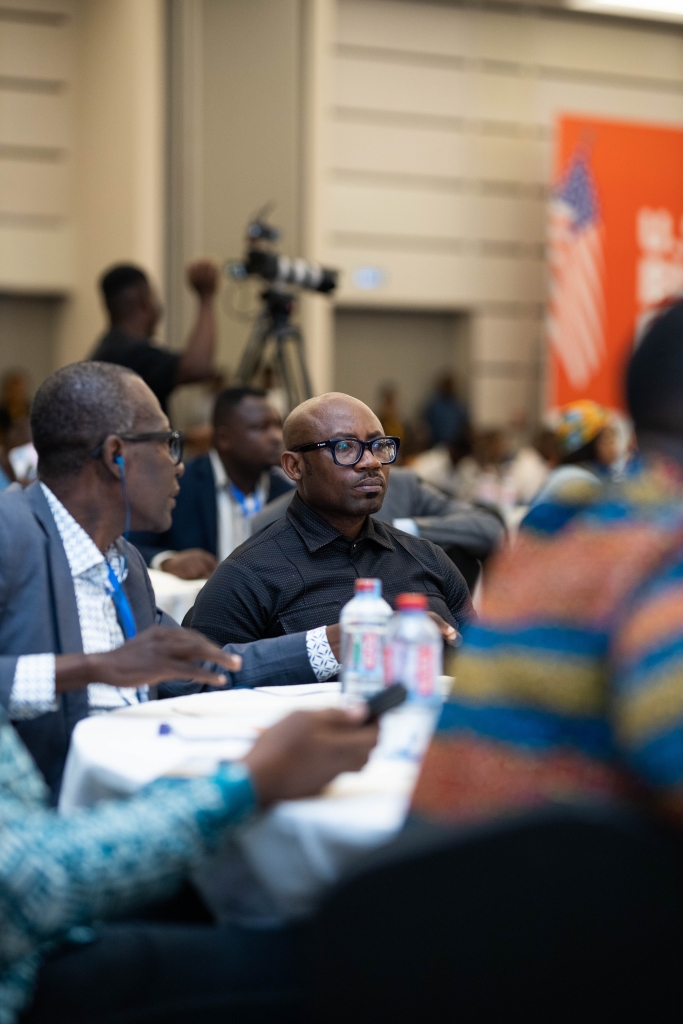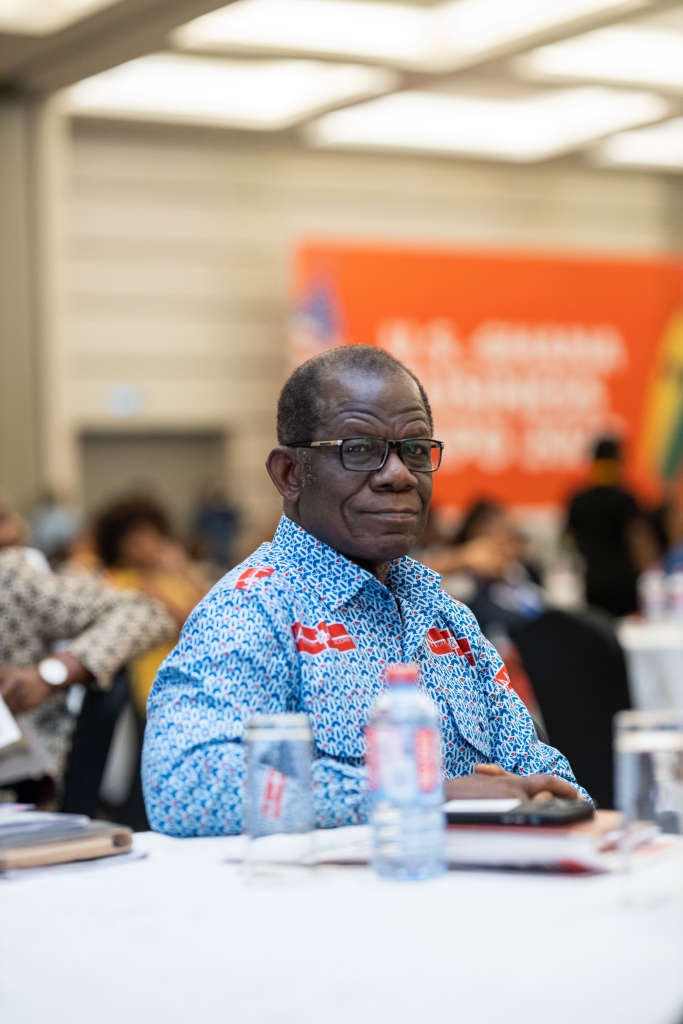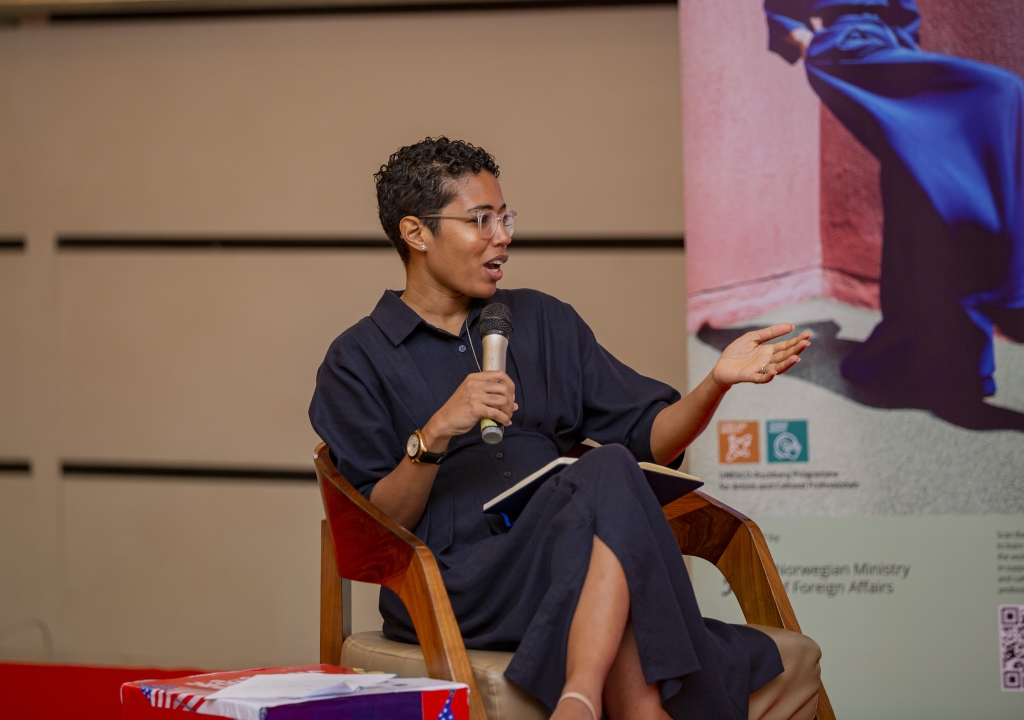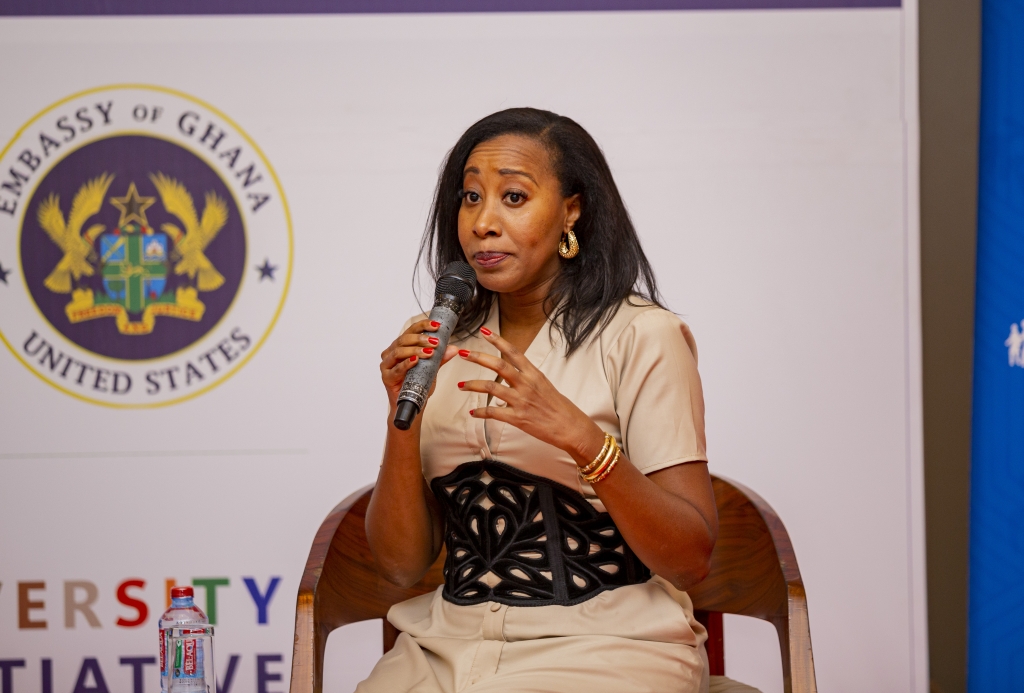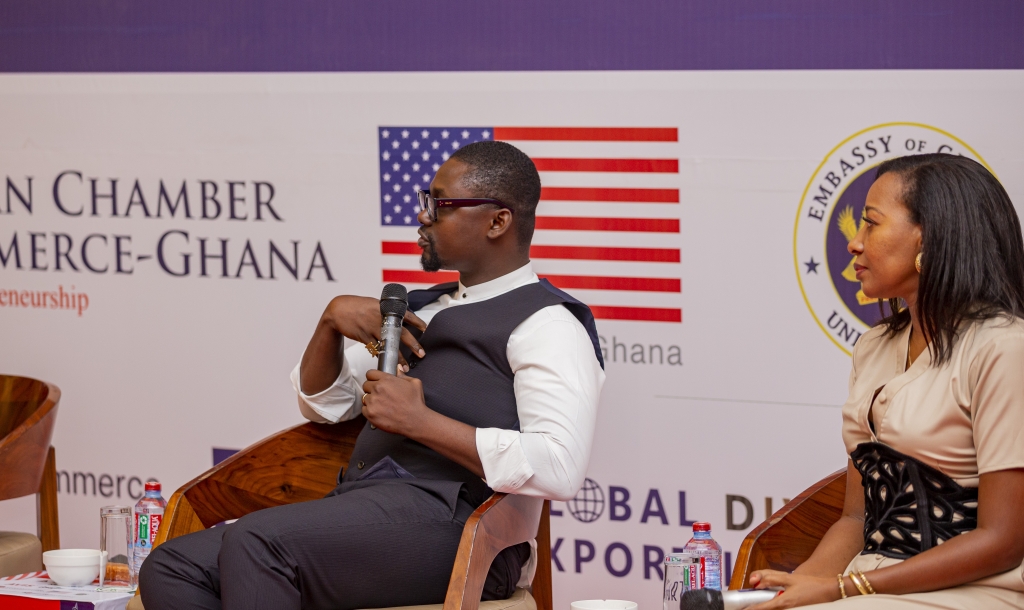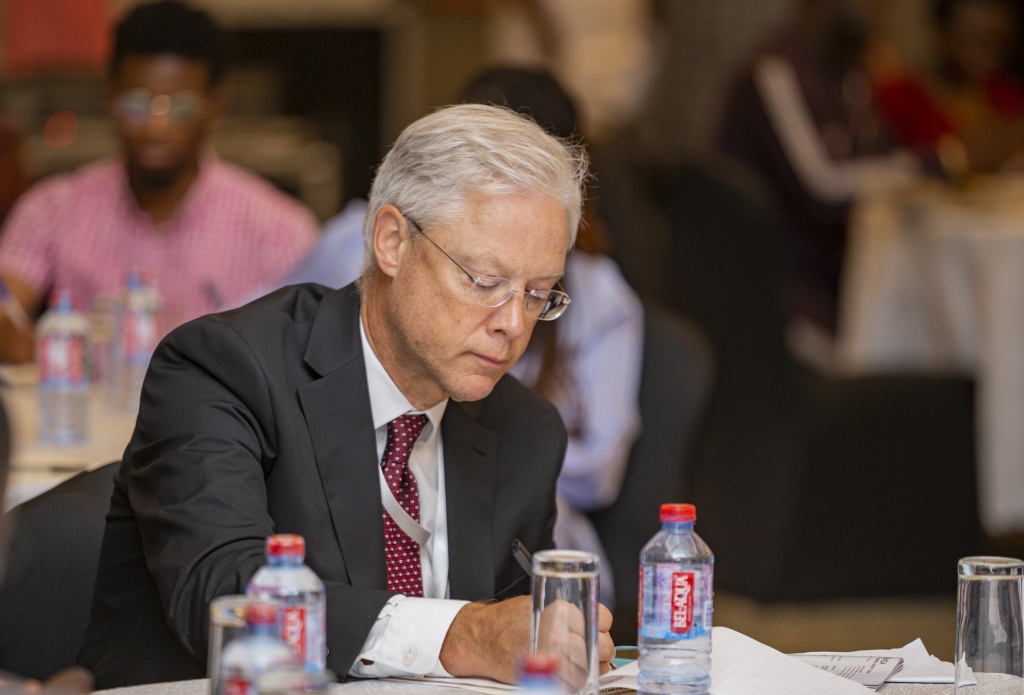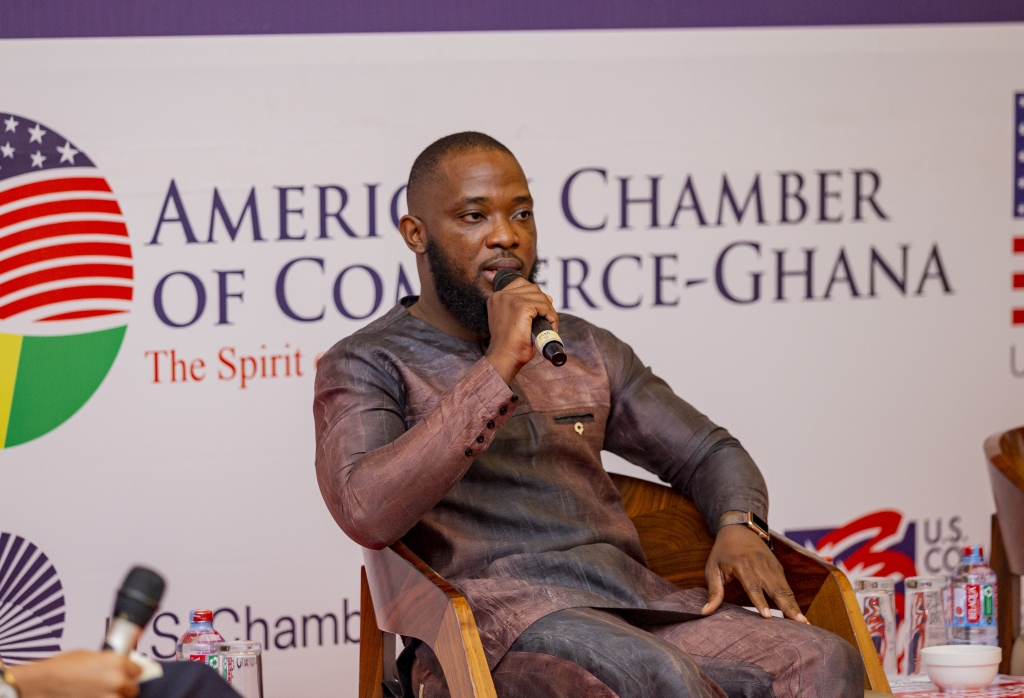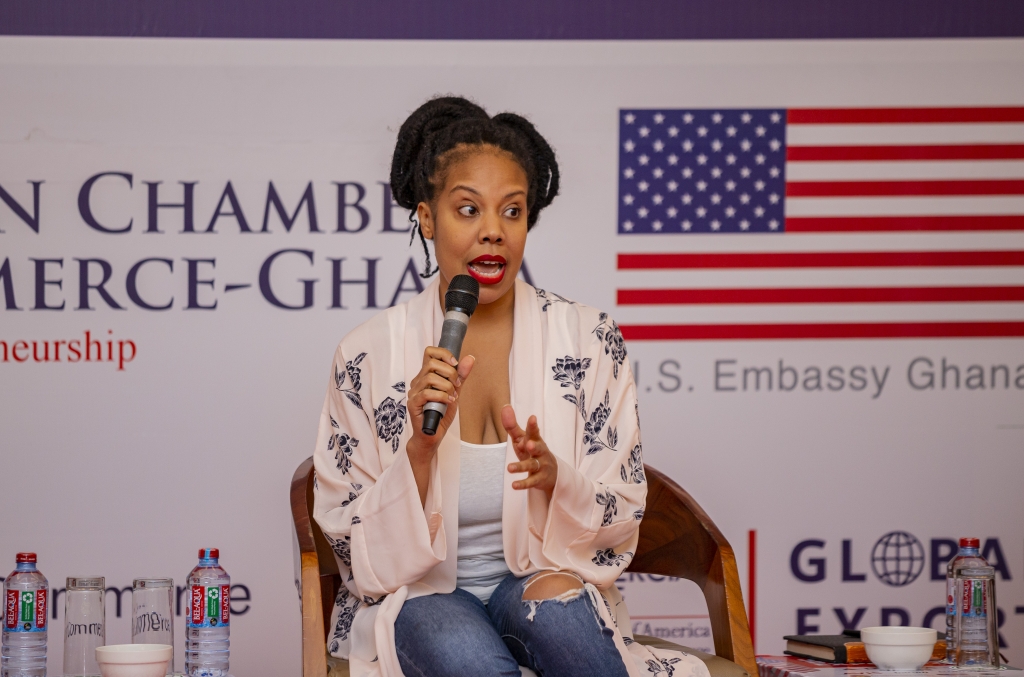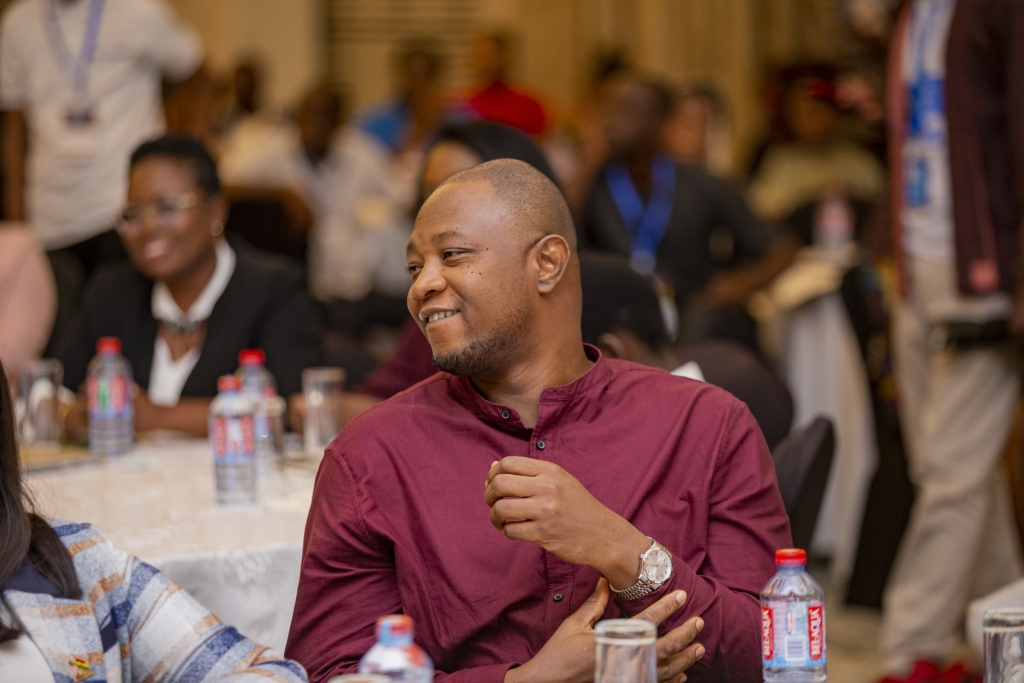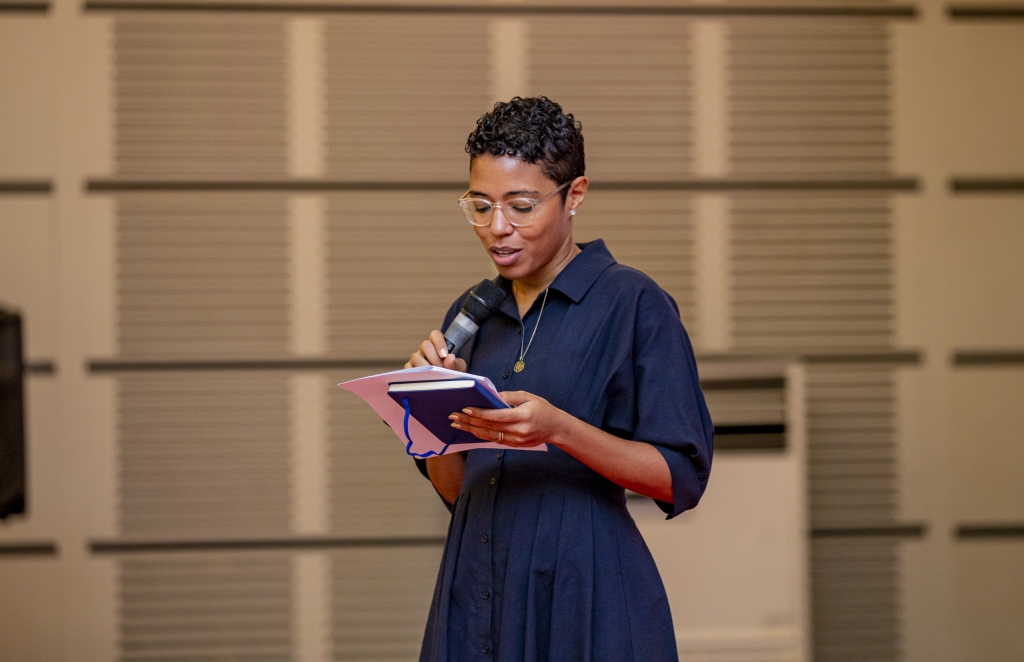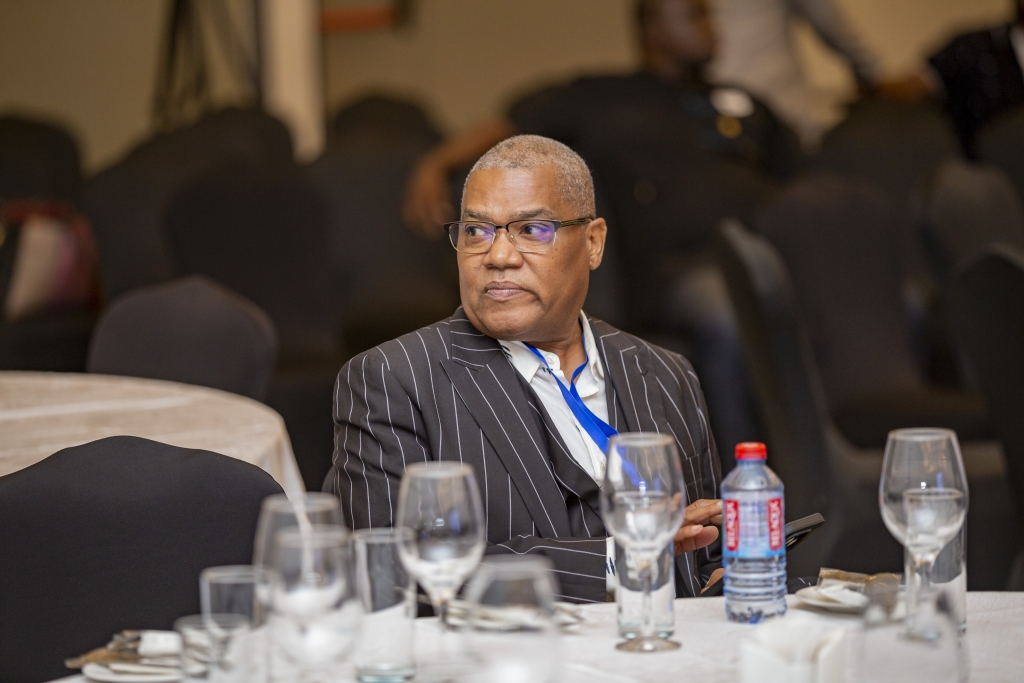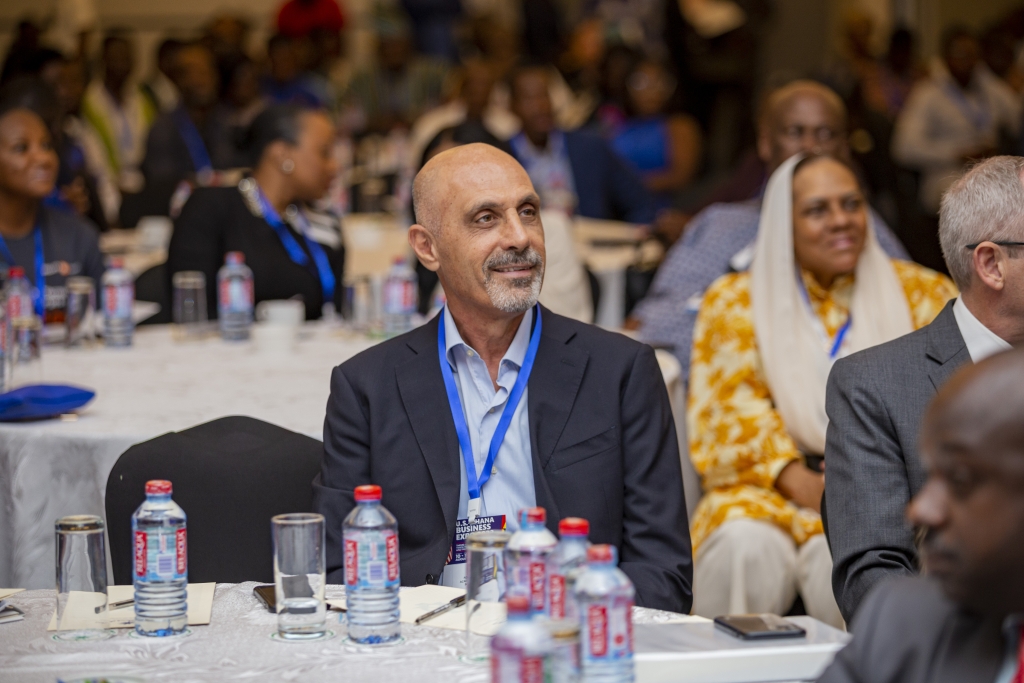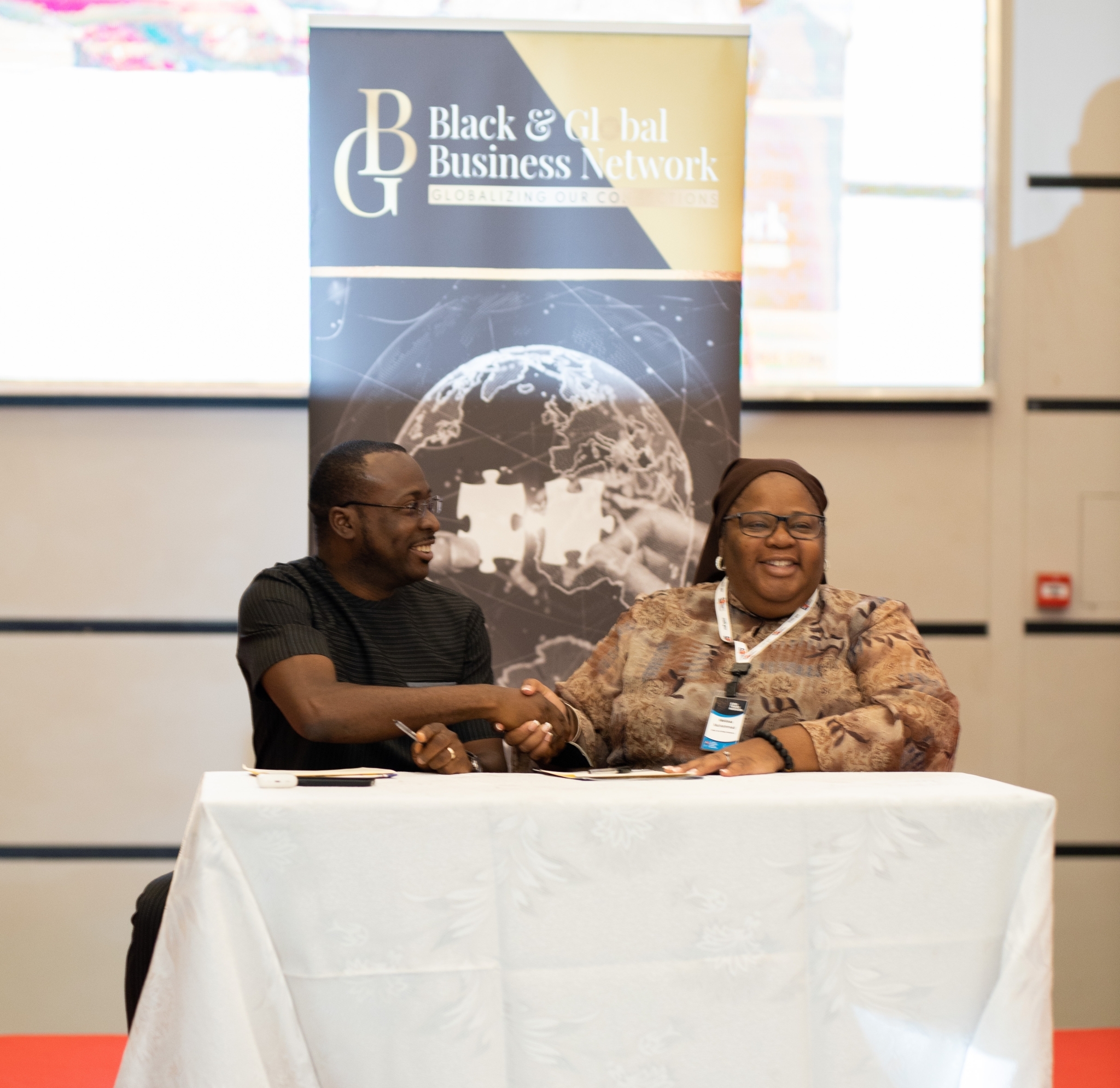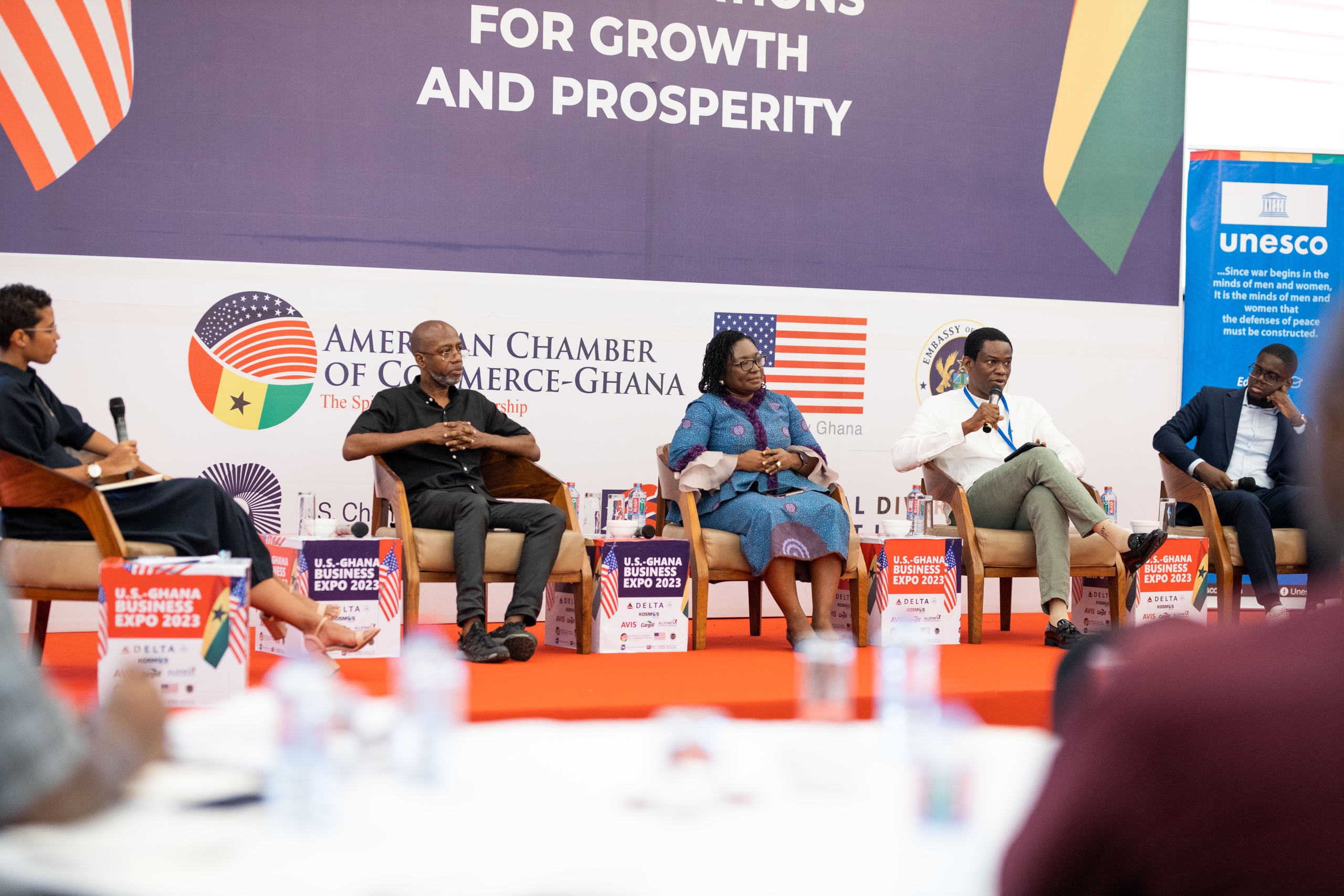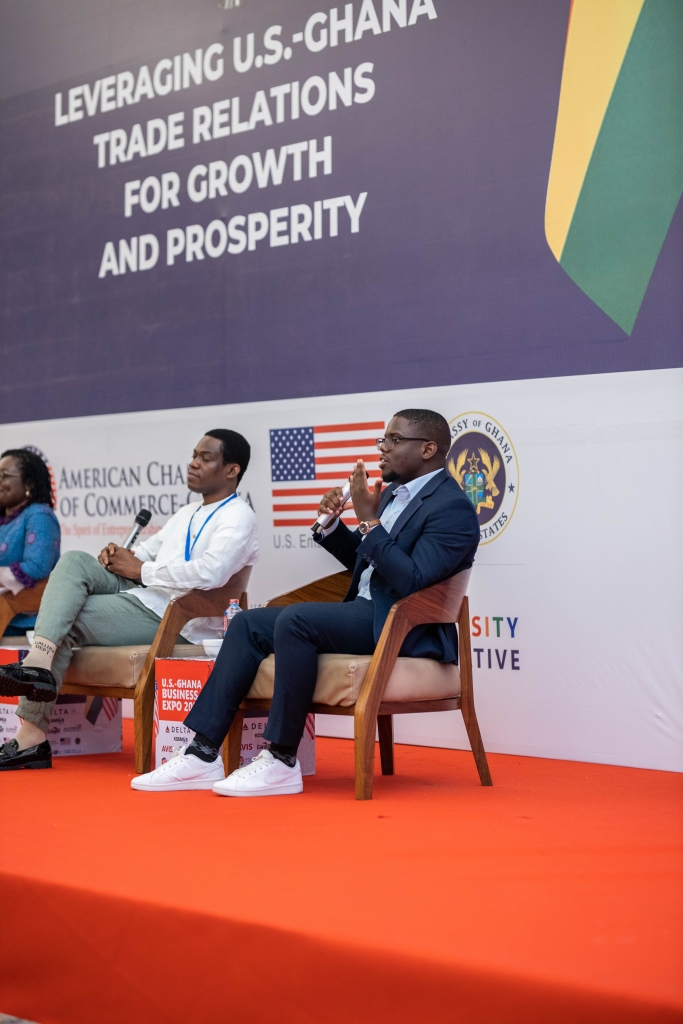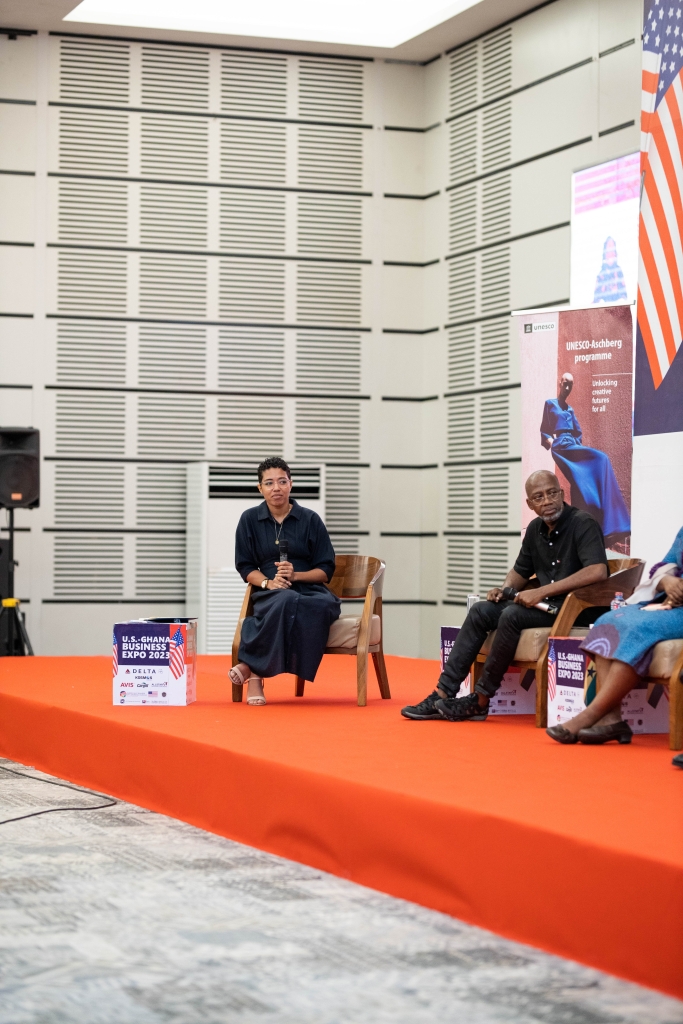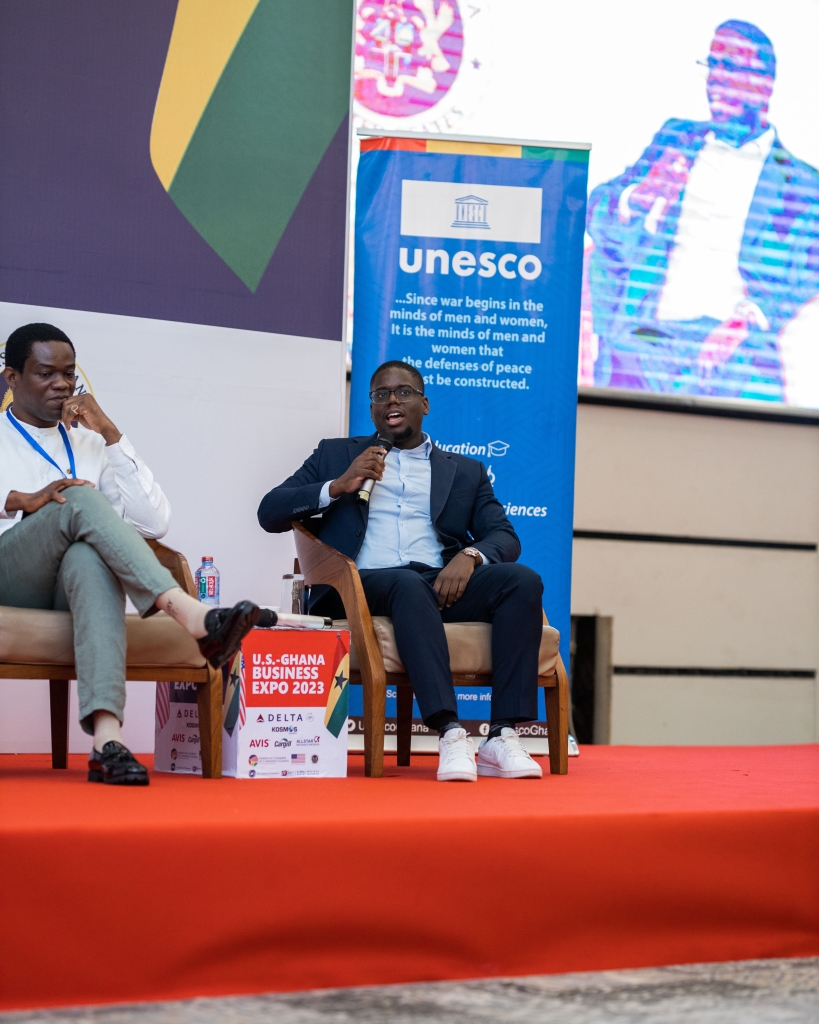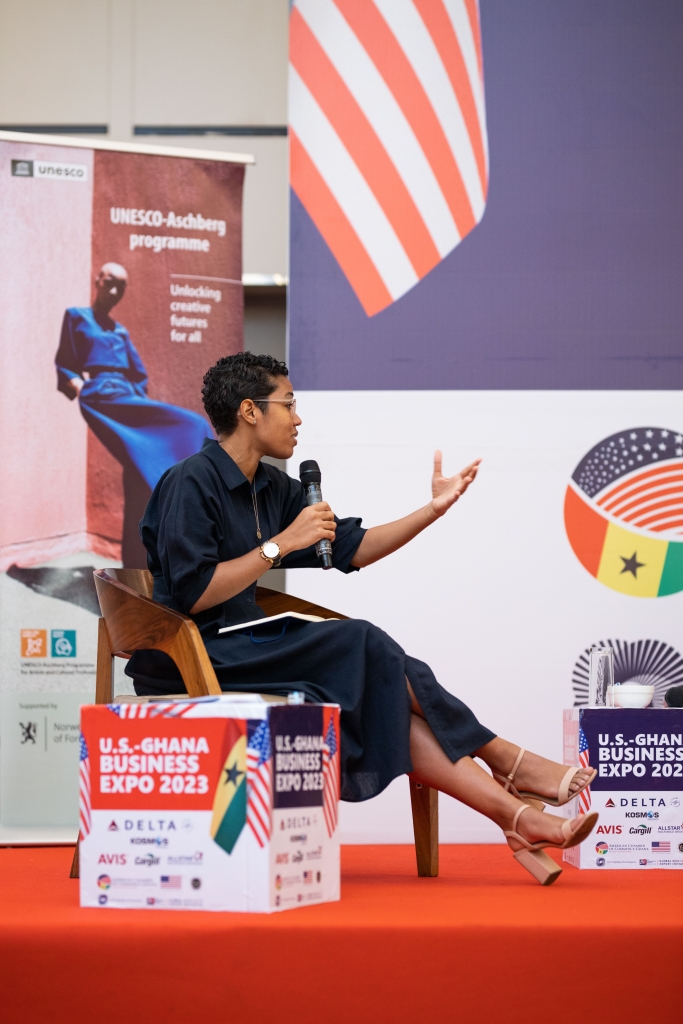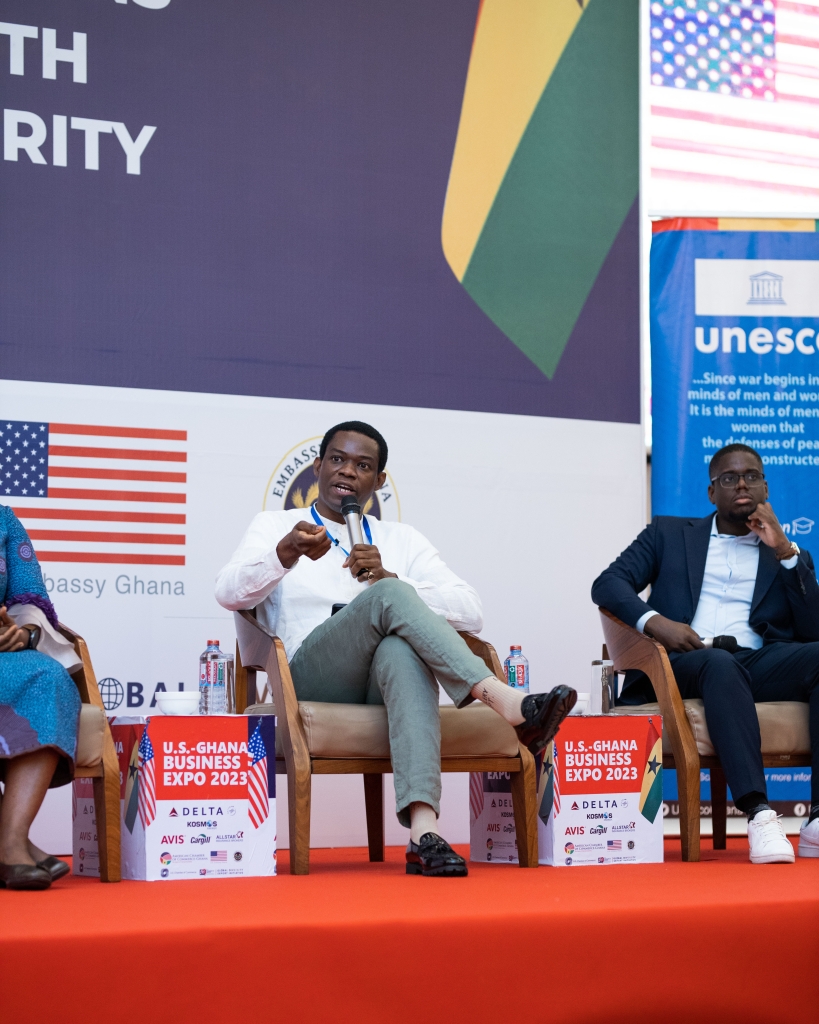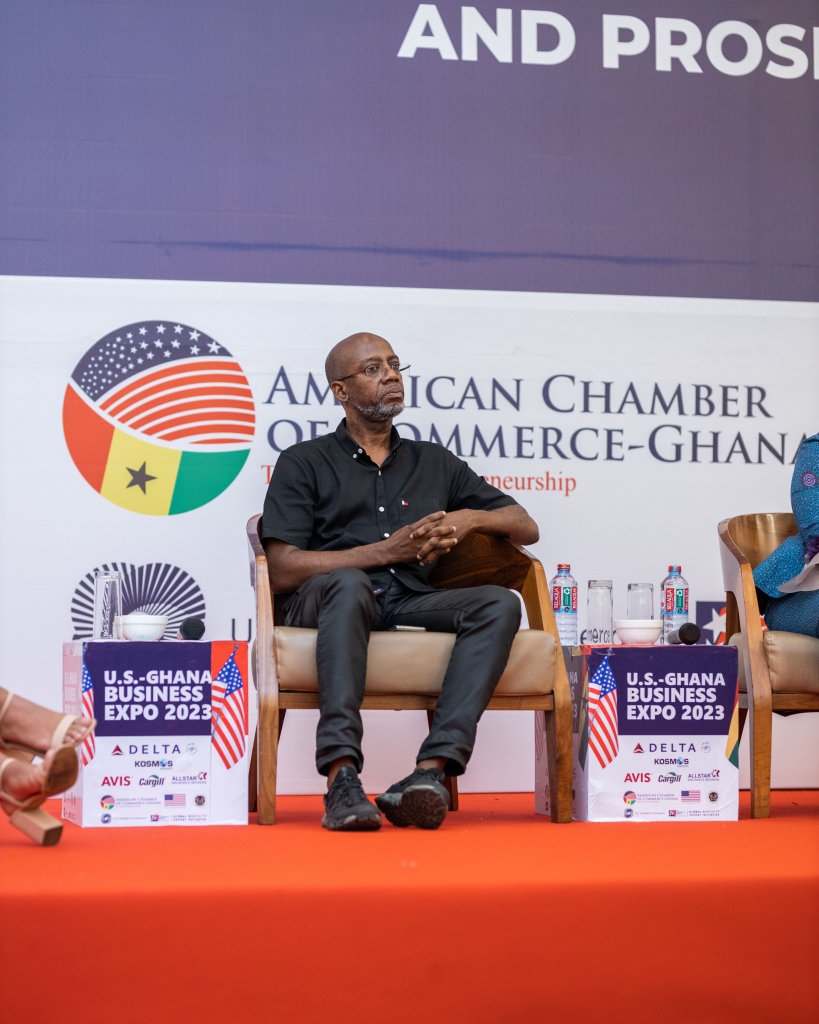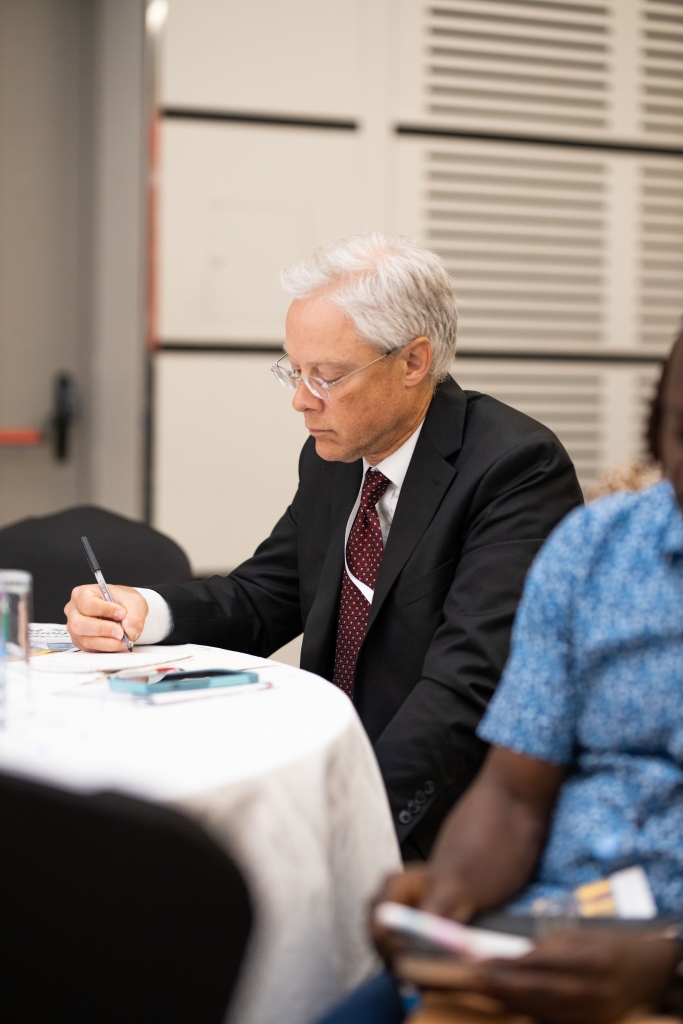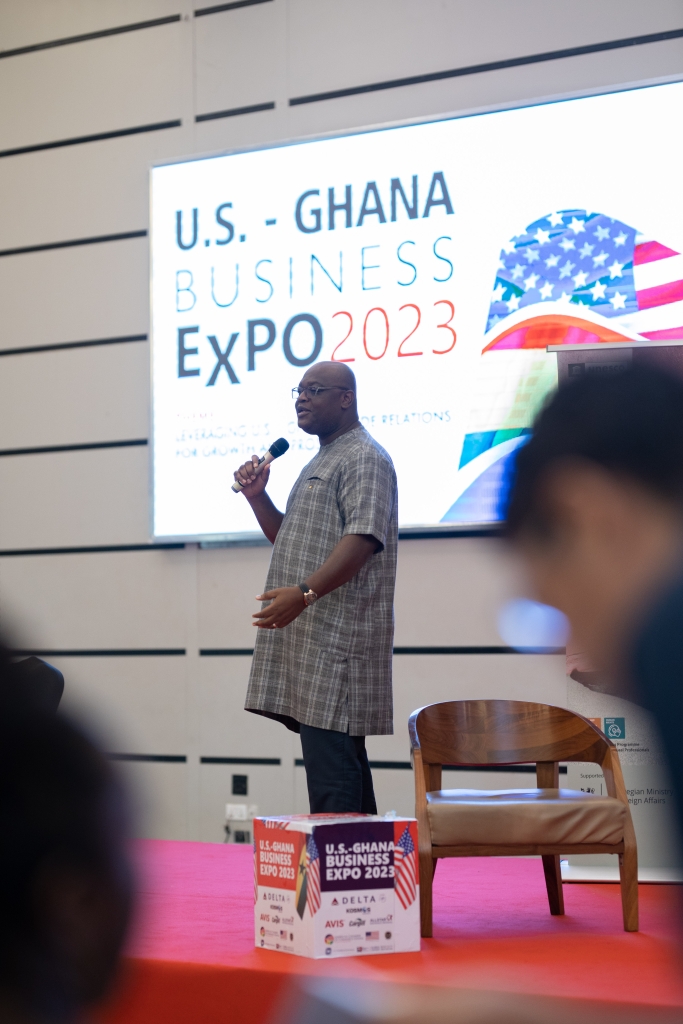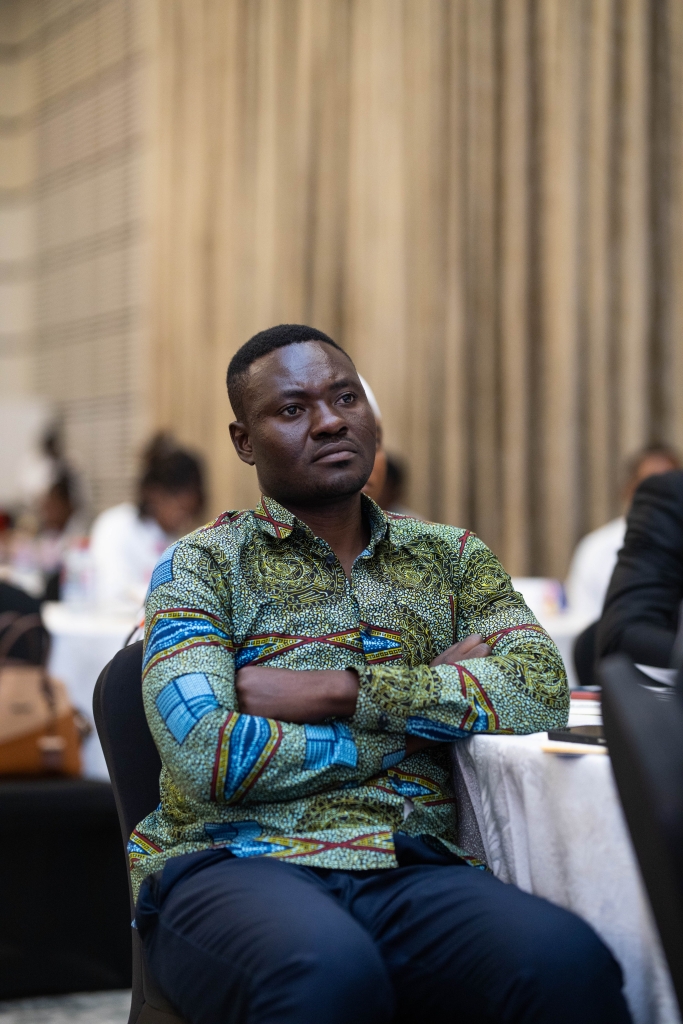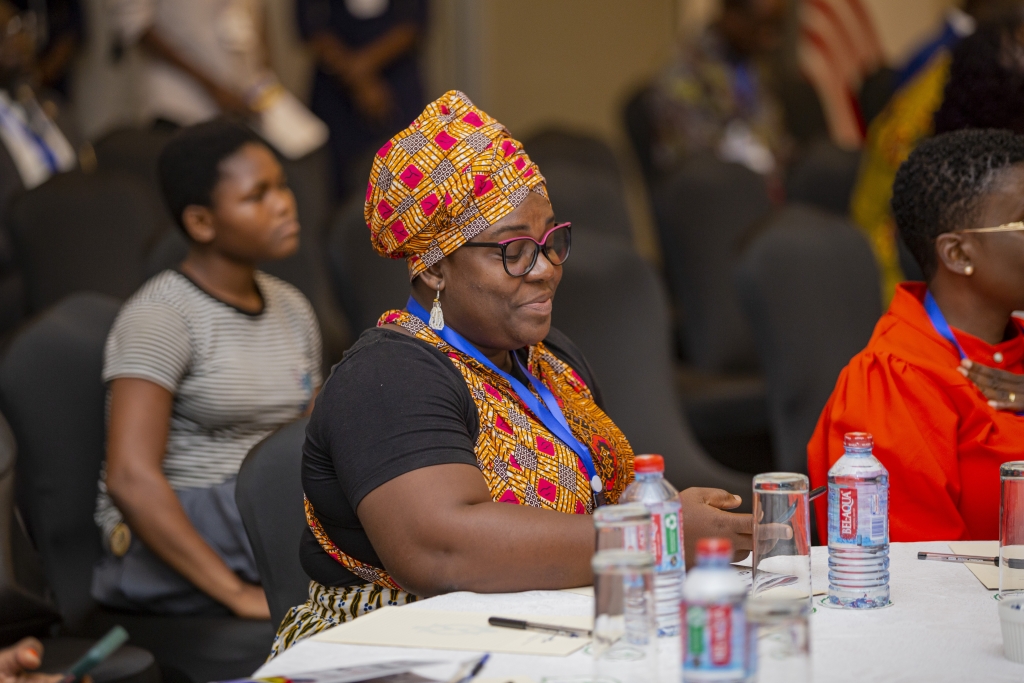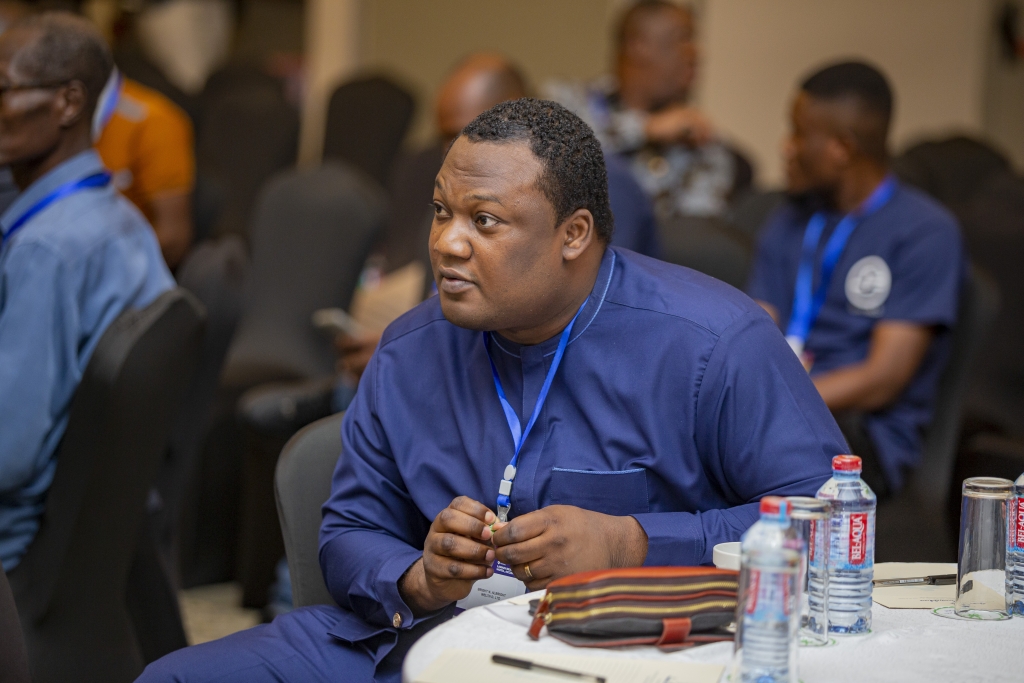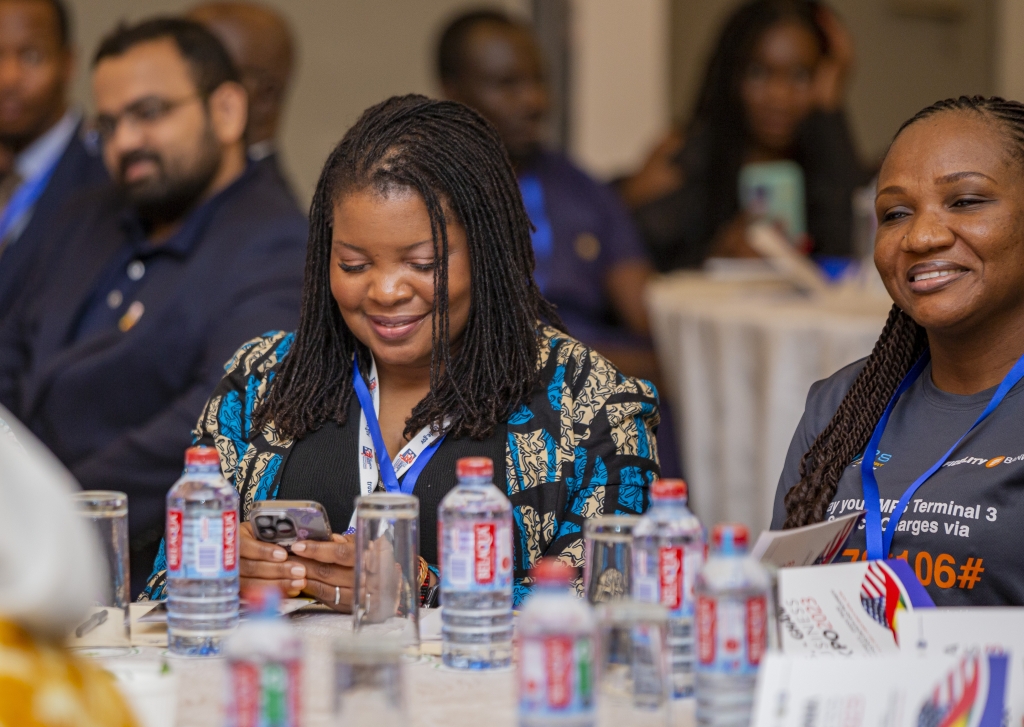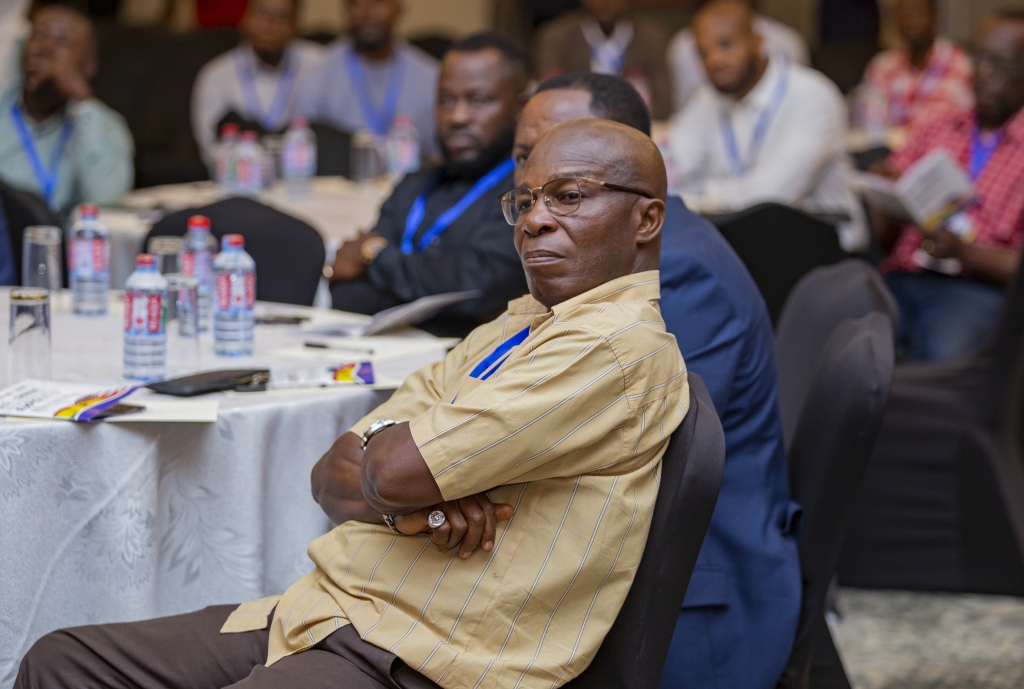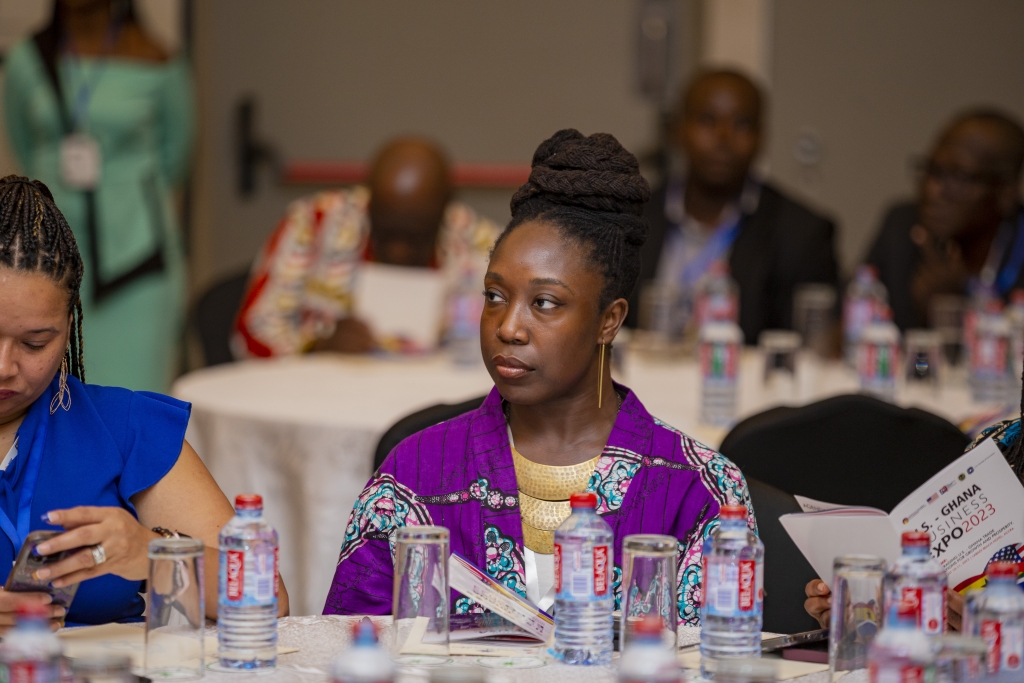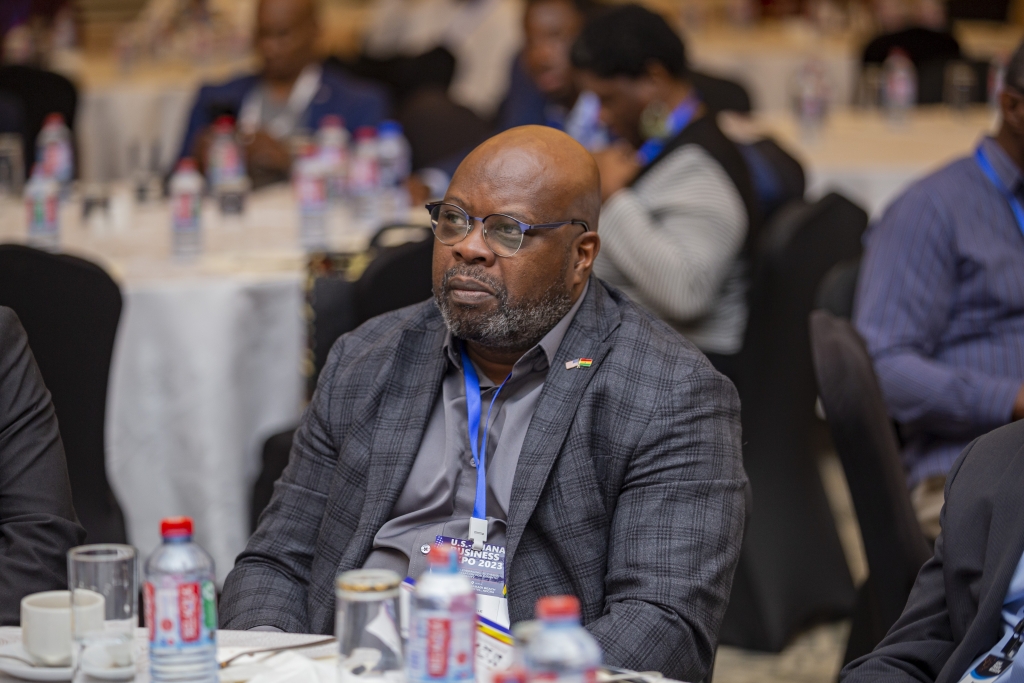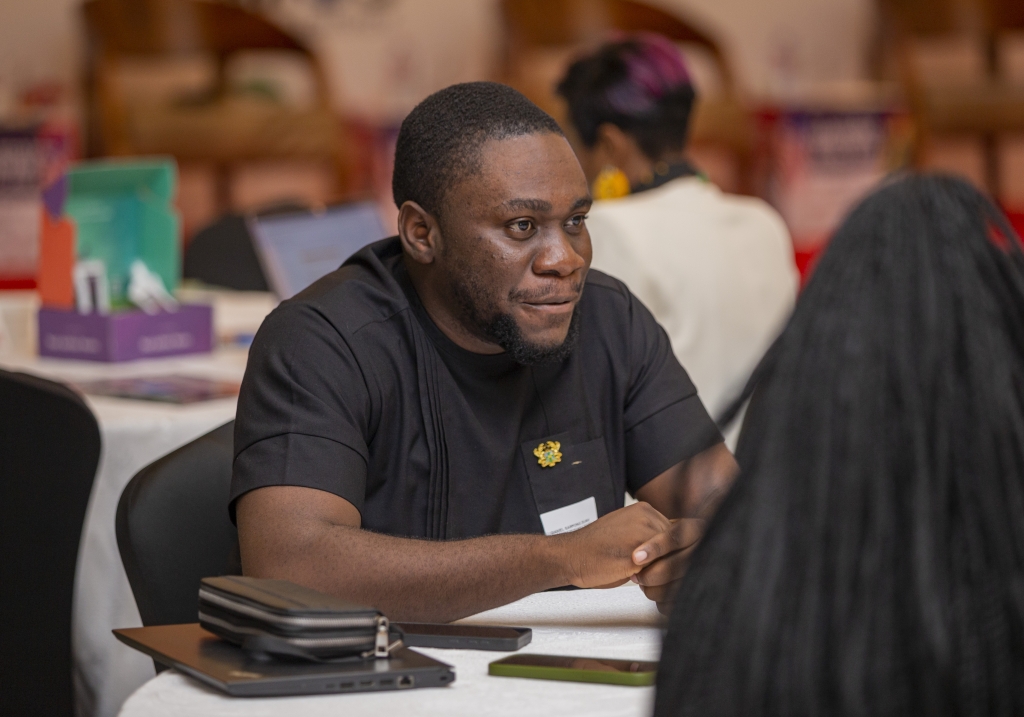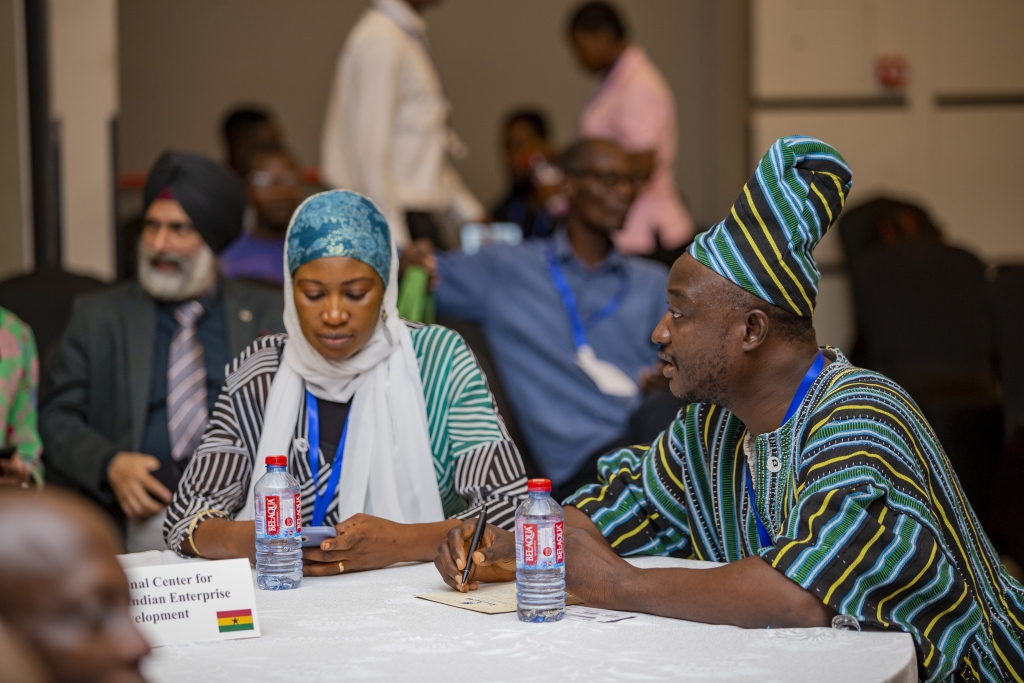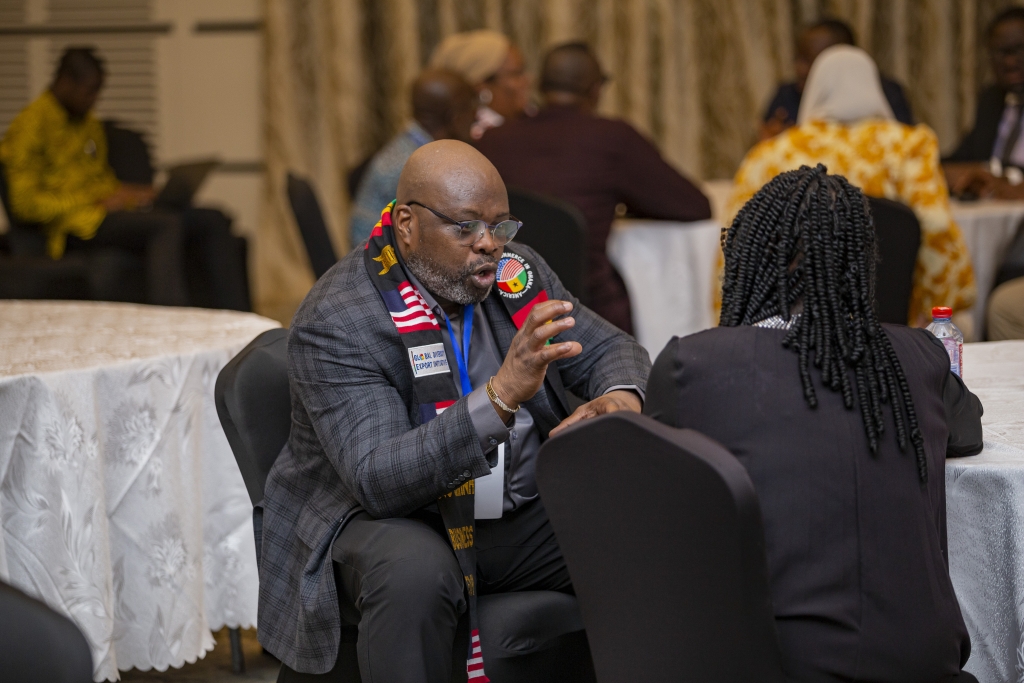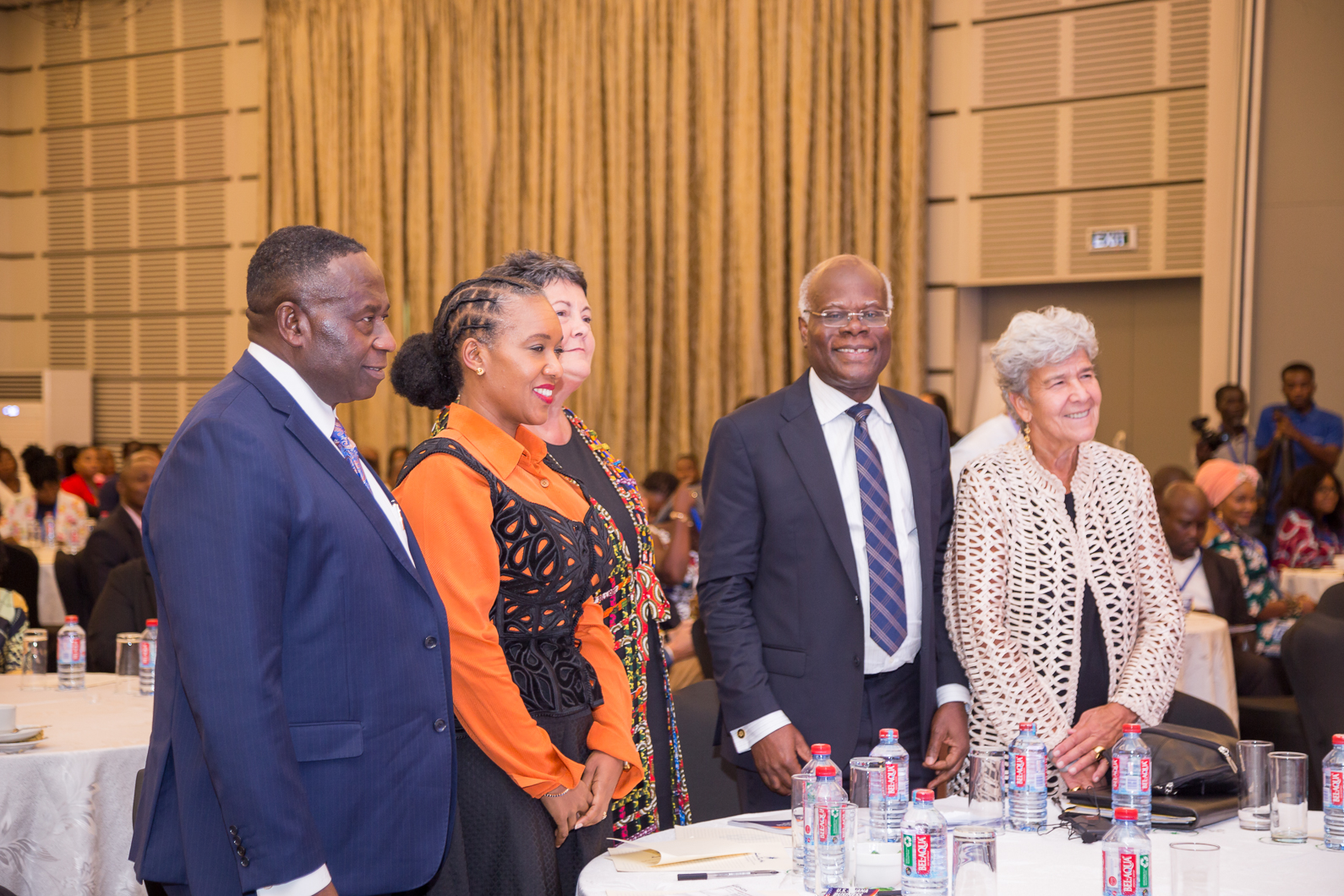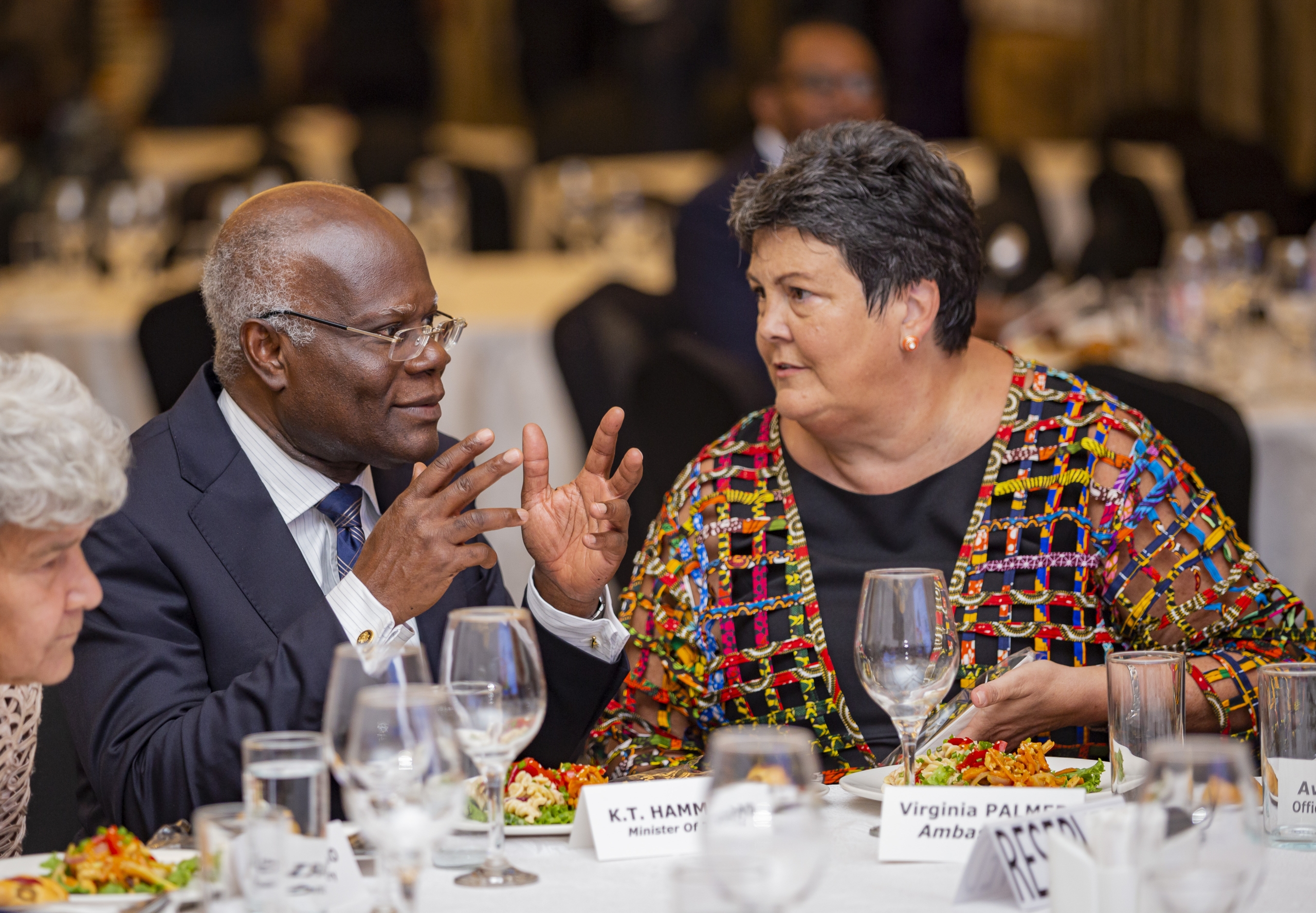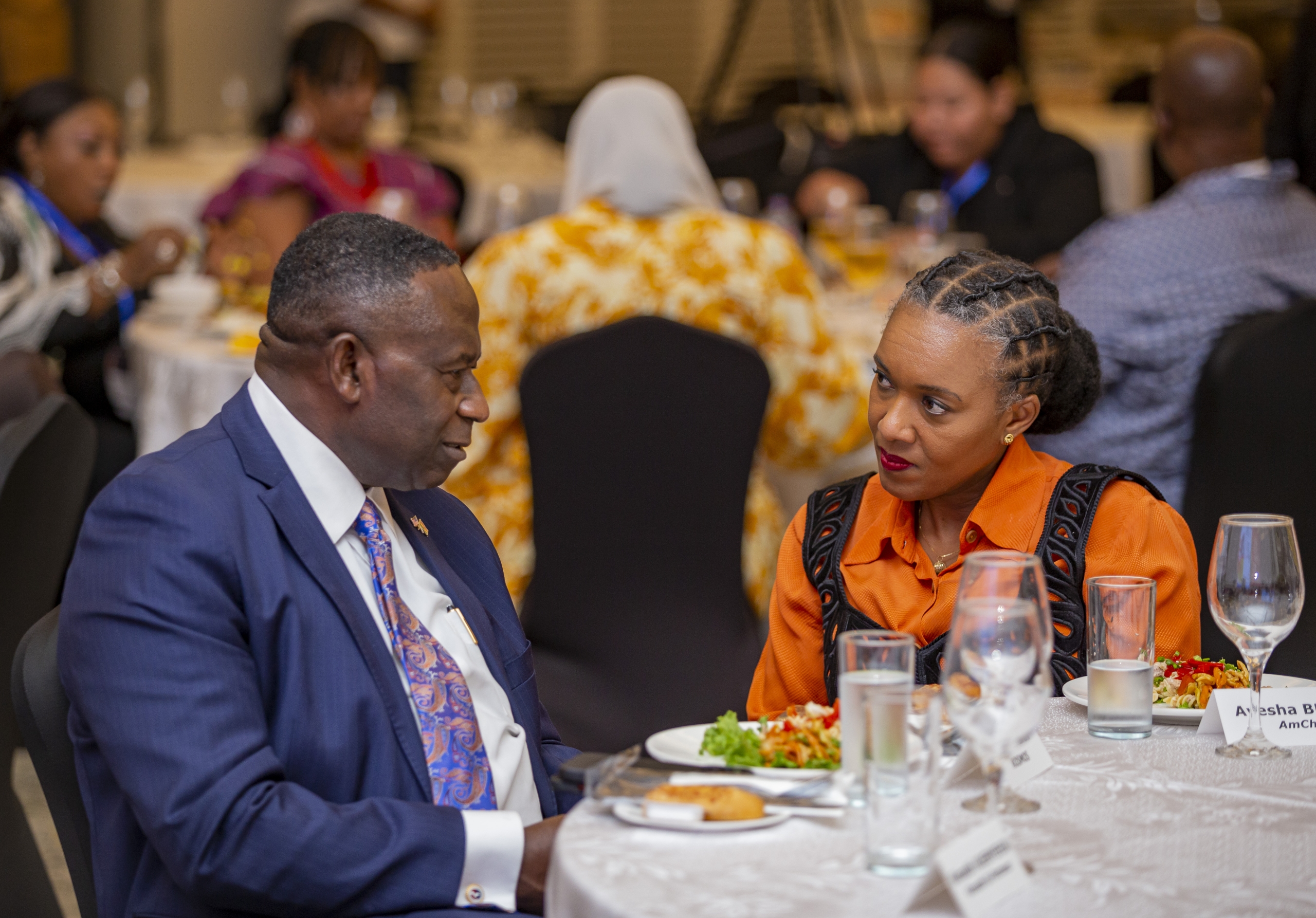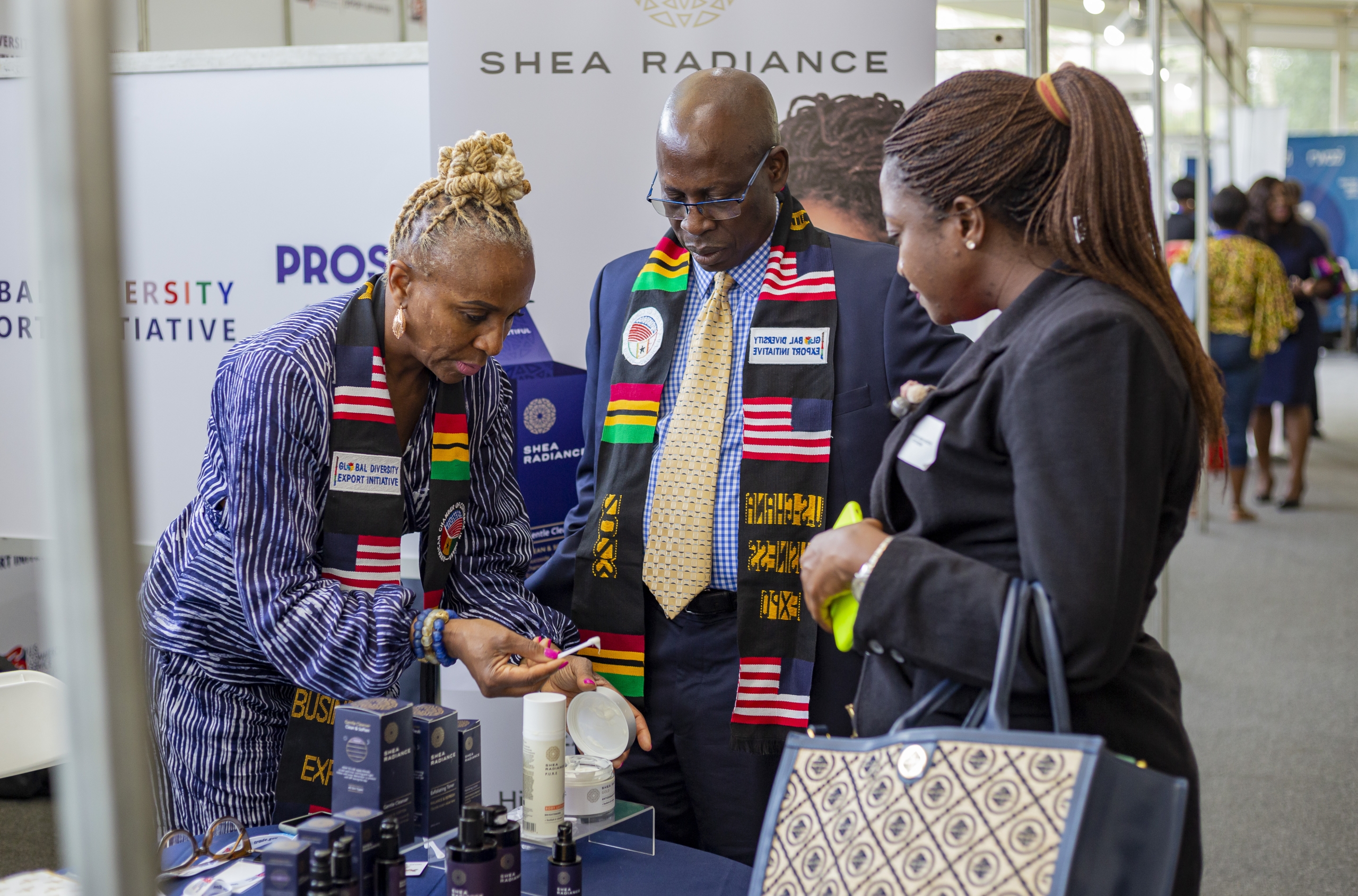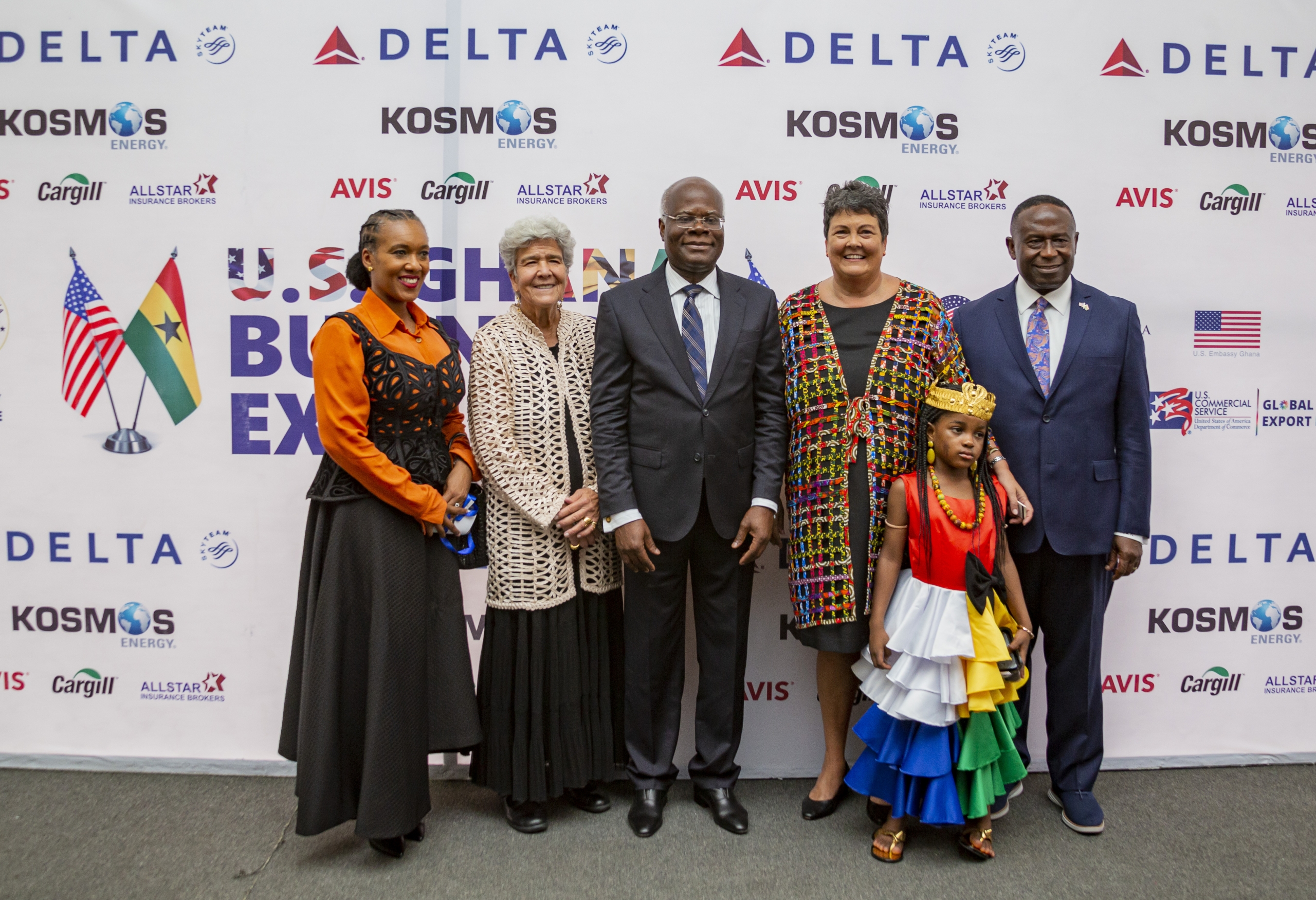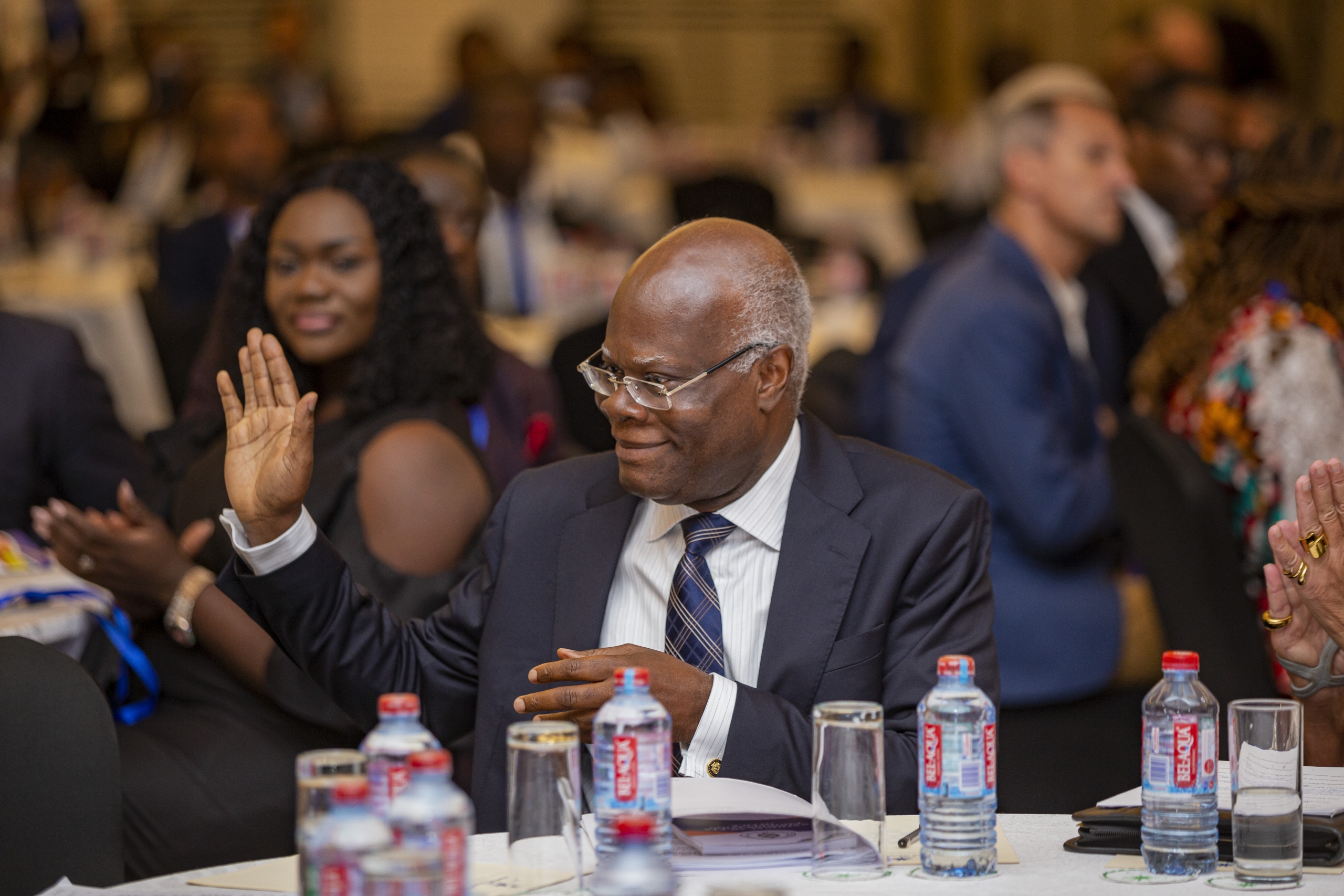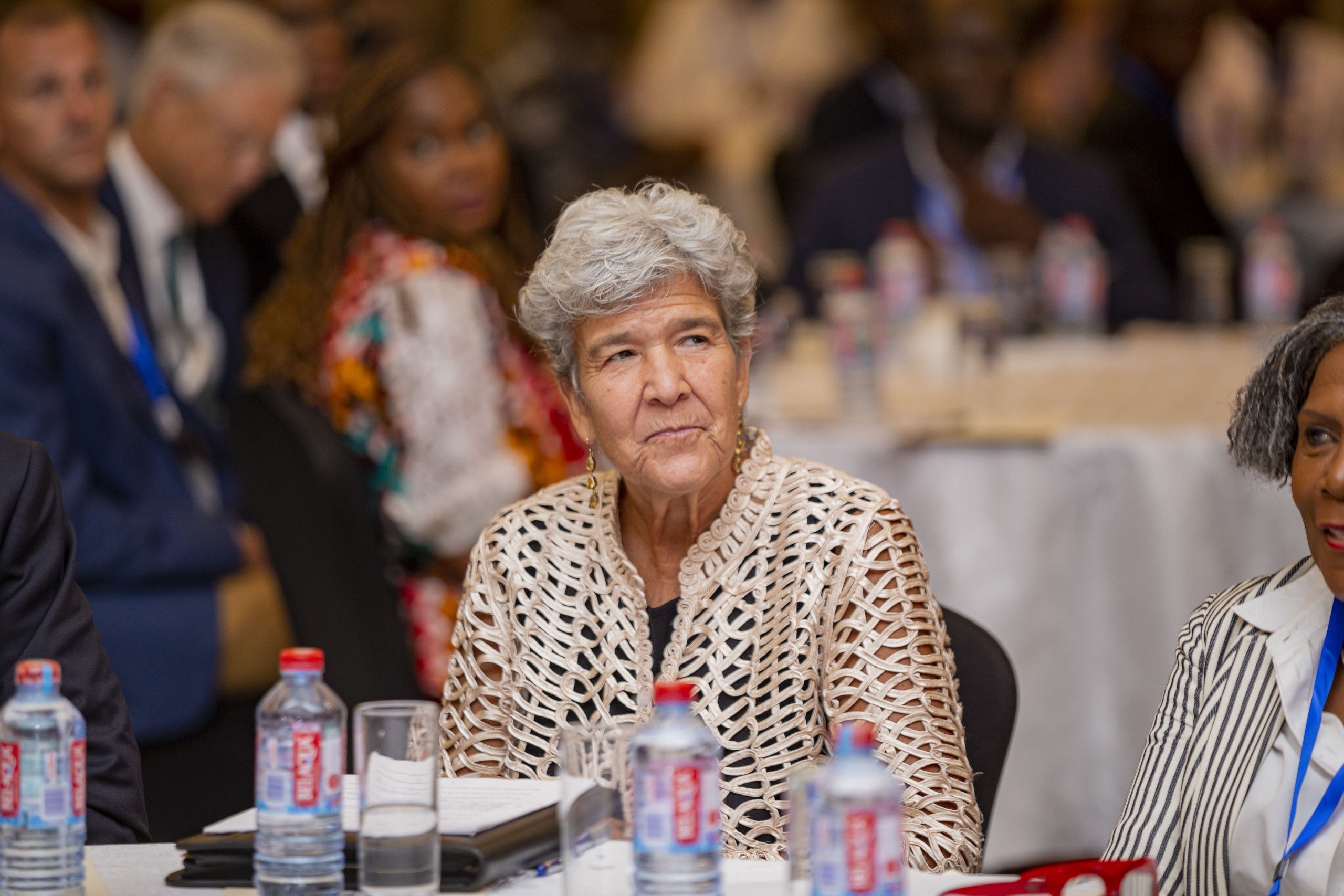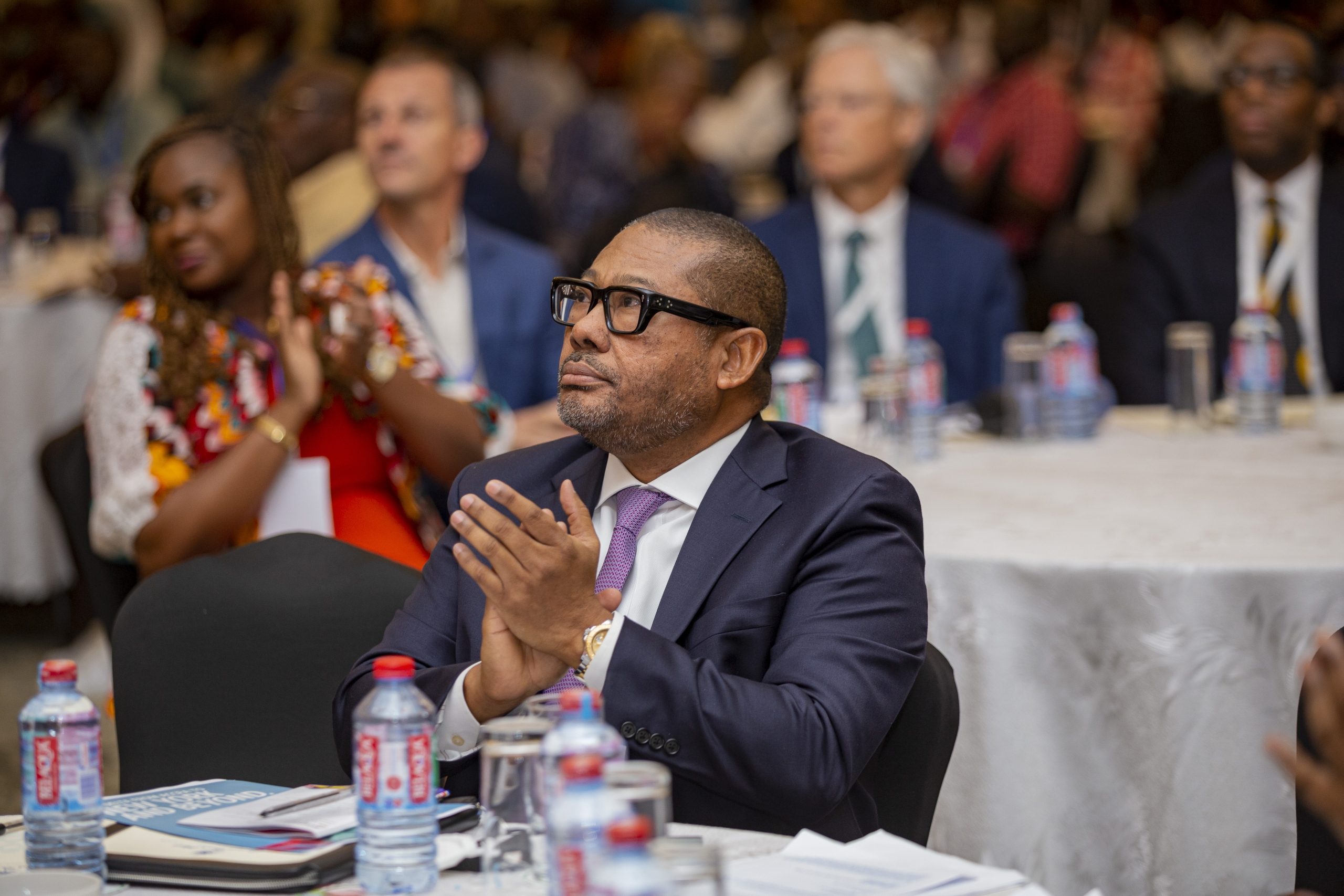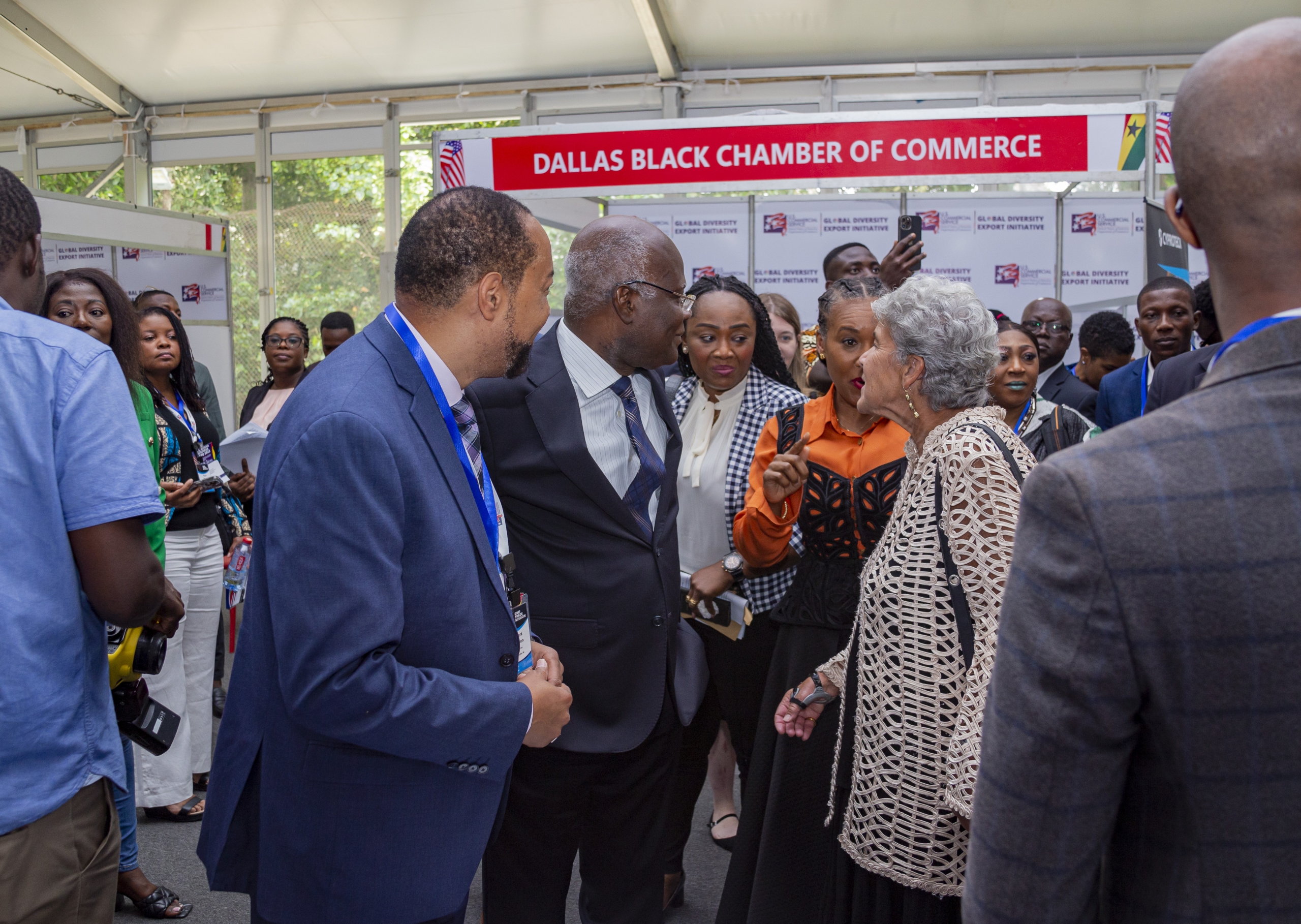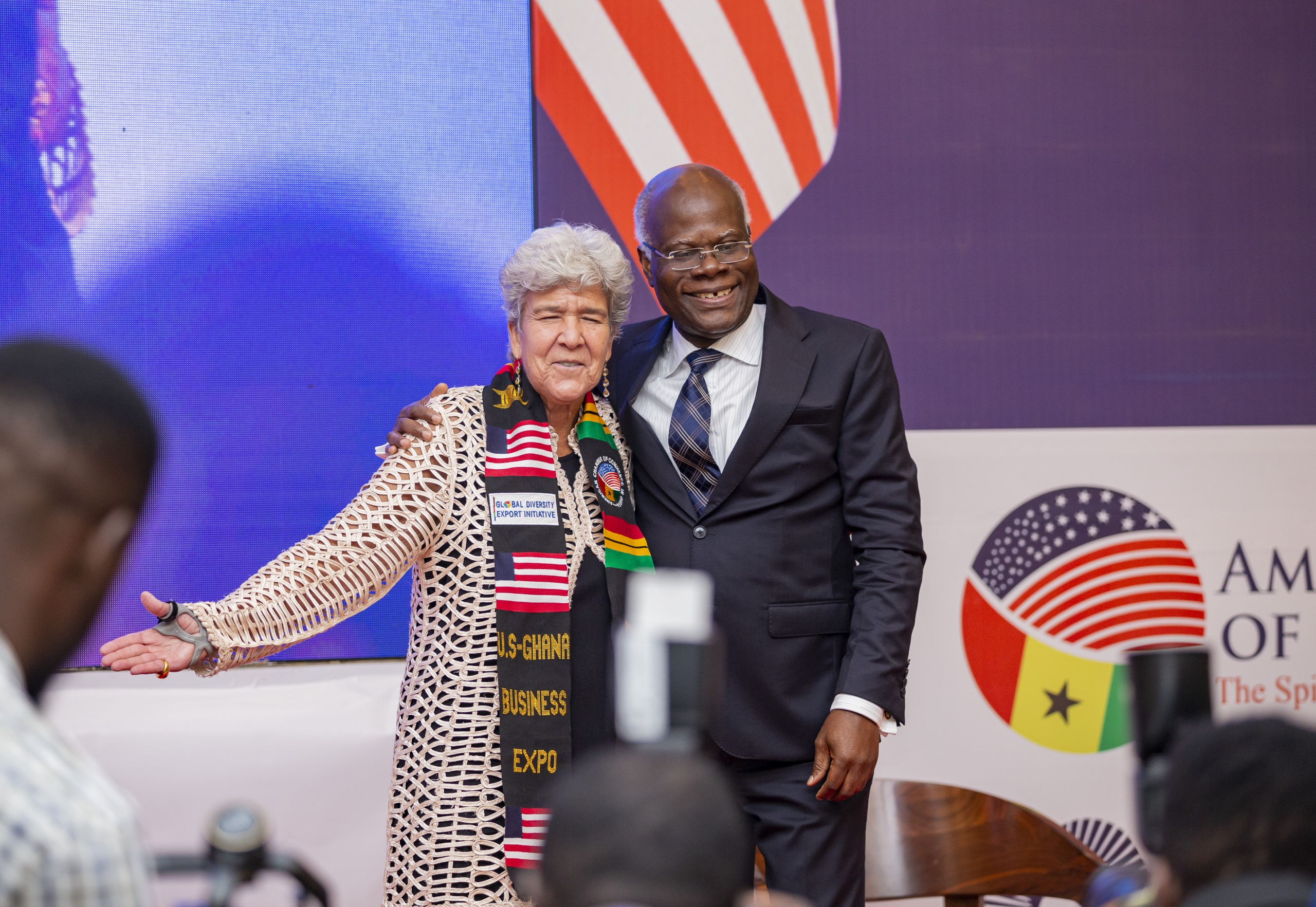The American Chamber of Commerce, Ghana, in collaboration with the U.S. Embassy in Ghana, the U.S. Commercial Service, the Global Diversity Export Initiative, the U.S. Chamber of Commerce, and the Ghana Embassy in Washington DC, organized the maiden U.S. – Ghana Business Expo at the Labadi Beach Hotel in Accra from Thursday, August 10 to Friday, August 11, 2023.
The event, held under the theme “Leveraging U.S. – Ghana Trade Relation for Growth and Prosperity, aimed to provide a platform for fostering bilateral trade collaborations and economic growth between the United States and Ghana. The Expo had in attendance over 800 participants, including key industry stakeholders, entrepreneurs, government officials, business leaders from both nations, and the general public.
As part of the Expo, the U.S. Department of Commerce led a Global Diversity Export Initiative (GDEI) trade delegation that included 19 companies and six trade associations, including the National Black Chamber of Commerce, the National Business League, U.S. Black Chambers Inc., Dallas Black Chamber of Commerce, the National Center for American Indian Enterprise Development and the Organization for Women in International Trade. The GDEI delegation represents diverse communities and industries across the United States with a focus on the information and communications technology, consumer goods, and automotive sectors.
A significant highlight of the Expo was the trade pavilion which featured more than 40 companies. It showcased the products and services of visiting U.S. companies and trade associations, AmCham Ghana member companies, and local companies from various industries. It also provided an opportunity for participants at the event to engage in networking activities and establish strategic relationships.
Day One (August 10, 2023)
Panel Discussion 1: Sustainable Business Climate in Ghana: Fostering Growth and Prosperity
This panel was moderated by Riva K. Levinson, President and Chief Executive Officer (CEO), KRL International, Washinton, D.C. The panelists were Joe Mensah, Senior Vice President and Head of Ghana Business Unit, Kosmos Energy; Peter Osei Duah, Executive Director, AllStar Insurance Brokers; and Oluwabankole Falade, Chief Regulatory and Government Relations Officer, Flutterwave. The pertinent issues discussed by the panel included the experiences and significant achievements of diaspora-led businesses in Ghana, challenges, and expectations from the Expo.
- Experience as a Diaspora-led Businesses in Ghana:
Reflecting on his experience as a Diaspora-led Business in Ghana, Peter Osei Duah recounted that he attained higher education in the U.S., where he also worked for 26 years before returning to Ghana to start an Actuarial Consulting firm. He also worked with the State Insurance Company (SIC) in Ghana, after which he established AllStar Insurance Brokerage to advise corporate entities and individuals in the insurance industry.
Joe Mensah stated that after pursuing higher education in the U.S, he worked with the International Business Machines Corporation (IBM) for 25 years before returning to Ghana to establish IBM in the country in 2009, leading its operations for about nine years. He later joined Kosmos Energy in 2015. Currently, Kosmos Energy is running the Kosmos Innovation Centre (KIC), an initiative that integrates technology into agriculture. The KIC program has created over 20 companies and trained many people. With support from the MasterCard Foundation, the KIC program has extended its reach to 14 universities, positively influencing significant numbers of young individuals.
Oluwabankole Falade noted that Flutterwave is a payment technology system founded in the U.S. in 2016 by Africans but operates solely in Africa currently. He explained that the goal of Flutterwave is to address the fragmented payment system and infrastructure challenges on the continent. He articulated that the company’s objective is to streamline cross-border transactions within African nations, and presently, Flutterwave has successfully established an infrastructure that spans 30 countries on the African continent.
- Significant Achievements of Diaspora-led Businesses
On the significant achievements of diaspora-led businesses in Ghana and Africa, Joe Mensah iterated that Kosmos Energy has played a pivotal role in transforming Ghana’s agricultural industry. He said, in 2007, when Kosmos Energy discovered oil in Ghana, the country was facing significant difficulties in the agricultural sector. These challenges include an aging workforce, limited participation of the youth, and low technological utilization. Therefore, Kosmos Energy took the initiative to establish the KIC, to harness technology and innovative approaches to address the prevalent issues in Ghana’s agricultural sector. This endeavor also aimed to make agriculture an attractive venture for the youth. He said the KIC initiative has generated enthusiasm among the youth about agriculture and has provided training to numerous young individuals. Concurrently, the MasterCard Foundation has been conducting an extensive scoping study across Africa to identify strategies for creating employment opportunities for approximately 30 million youth across the continent. Following a comprehensive two-year study, the MasterCard Foundation opted to extend its support to the KIC initiative, recognizing its potential to drive employment opportunities throughout the continent.
Oluwabankole Falade pointed out that during the COVID-19 pandemic, many merchants were compelled to close their shops, and this disrupted trade. To address this, Flutterwave introduced “Flutterwave for Business,” an online platform to enable individuals to showcase and vend their products. This initiative achieved remarkable success, facilitating the sale of various items, including commodities like plantains and biscuits. According to him, the platform was simple to operate, requiring traders to only upload images of their merchandise online. Within the initial month of the lockdown, the platform recorded over 30,000 registrations. This number subsequently increased by an additional 20,000. Beyond enrolling businesses onto the platform, Flutterwave organized an SME series that trained participants on optimizing sales, maintaining accurate financial records, and capturing appealing images of their products for online presentation. These initiatives helped individuals who initially only used the online platform to trade to transition into fully-fledged e-commerce enterprises.
Peter Osei Duah noted that AllStar Insurance works with insurance companies to develop innovative and relevant products. Currently, the company is working with a South African-based agricultural company to scope the types of farms and monitor and determine the expected yields of these farms. This initiative aims to develop good baseline data to price agricultural insurance. He hinted that Allstar Insurance Brokers intends to collaborate with KIC to roll out a similar initiative in Ghana to insure agribusinesses against risks.
- Areas Where U.S. Government Support Would Be Most Helpful for Businesses
Regarding the area wherein assistance from the U.S. Government would be most beneficial to enterprises, Oluwabankole Falade underscored the lack of harmonized policies and regulations across the continent. He emphasized the need for the U.S. government to work with African governments and the private sector to harmonize policies and regulations across the continent. For technology-oriented enterprises, establishing a “passporting” system would be helpful, ensuring that certifications and licenses issued by one country are acceptable in others. This, he noted, would eliminate the need for businesses to undergo redundant licensing procedures across multiple countries where they want to operate. Also, the U.S can support African enterprises in capacity building.
Joe Mensah noted that a major challenge in Africa is the lack of implementation of the plans needed to move U.S.-Ghana business relations to the next level. He argued that oftentimes, stakeholders come together to develop innovative ideas, yet these plans are not implemented. According to him, although the U.S. boasts a substantial economy, American exports to Africa are merely a fraction of China’s investment, totaling less than 20%. He said this trend can be changed by empowering small and medium enterprises (SMEs), which are the engine of growth. He urged that going forward, U.S. and Ghanaian businesses, as well as relevant stakeholders should take actionable steps to implement the innovative plans they develop.
Peter Osei Duah observed that although encouraging the youth to engage in agriculture for employment creation, food security, and revenue generation is important, this drive requires insurance to be effective and successful. He urged governments and international organizations such as the United Nations and the Food and Agriculture Organization (FAO) to provide financial assistance to agribusinesses and insurance companies to help set up a strong foundation for agricultural insurance in Ghana.
- The Main Challenges Faced by Businesses in Ghana
Joe Mensah mentioned that in the extractive sectors, the sanctity of contracts is crucial for businesses. He added that governments must honor agreements and guarantee their implementation once they are finalized. This practice fosters a sense of assurance among businesses, encouraging increased investments. He added that taxation is another issue of concern, explaining that tax authorities often lack a comprehensive understanding of some business operations, and this impacts their auditing processes. Joe said businesses associated with AmCham intend to allocate resources to educate these tax authorities about the intricacies of their operations to facilitate accurate and thorough audits.
Peter Osei Duah commented that the existing insurance regulations in Ghana restrict insurance companies from investing in assets other than government securities. This restriction is based on the assumption that government securities are risk-free. He said on the contrary, recent developments have revealed that this assumption does not hold true and that several insurance companies in Ghana are facing severe challenges due to the ongoing domestic debt exchange program. This predicament arises primarily from their mandatory investment in government securities. Going forward, he advised that insurance companies and pension funds should be allowed to diversify their investments beyond government securities. This would enable them to explore more productive investment opportunities.
- Expectations from the Expo
Commenting on his expectations from the Expo, Oluwabankole Falade noted that the expo could facilitate increased collaborations between Ghanaian and U.S. businesses, particularly concerning industry regulations and capacity building. Also, it presents an opportunity for a retrospective evaluation of existing policies to ascertain their effectiveness and any unintended consequences that they might have yielded.
Joe Mensah noted that the forum offers opportunities for education, experience, and exposure for Ghanaian and American businesses. He said, that through collaborations, American firms can leverage the insights of Ghanaian businesses regarding the country’s socio-economic environment. On the other hand, American companies can impart their own experiences and expertise to these local enterprises, fostering a mutually beneficial outcome for both parties.
Peter Osei Duah indicated that there is very little American presence in Ghana’s banking and insurance landscape. He, therefore, urged American businesses to carefully study Ghana’s banking and insurance sector to understand the developments in the sector and make informed investment decisions.
Keynote Speeches
Remarks by AmCham Ghana President
Ayesha Bedwei Ibe
Ayesha Bedwei Ibe began her remarks by welcoming participants to the forum and praised the AmCham team for their efforts in organizing the event and the exhibition. She stated that the event marks a significant milestone in strengthening trade ties and fostering economic development between Ghana and the U.S.
She extended a warm welcome to the business delegation from the United States led by Under Secretary of Commerce Marisa Lago, noting that their participation demonstrates the commitment of American businesses to explore opportunities and collaborate with Ghanaian counterparts, creating a thriving economic landscape. She also commended the Minister of Trade and Industry for Ghana, Honorable K. T Hammond, for his role in furthering U.S.-Ghana bilateral economic relations and advancing Ghana’s economic agenda.
She underscored the importance of the event and noted that it had over 40 exhibitors showcasing their products and services, representing the entrepreneurial spirit of Ghana and the U.S. She added that the Expo exemplifies the mutual desire for meaningful partnerships and a new avenue for growth and investments.
She commended the U.S Ambassador to Ghana, Virginia Palmer, for her invaluable support and dedication to fostering strong diplomatic and economic ties between Ghana and the U.S. She acknowledged Delta Airlines, Kosmos Energy, Avis Car Rentals, Cargill, and Allstar Insurance Brokers, for sponsoring the event and for their unwavering commitment and support in connecting businesses and driving innovation.
According to her, the expo provides a platform for Ghanaian and U.S businesses to foster robust economic partnerships and forge connections that promote trade, investments, technology transfer, skills development, and knowledge sharing for mutual growth. She ended by expressing her heartfelt appreciation to all participants, sponsors, and dignitaries for attending the event, stating that their participation reaffirms the commitment of Ghana and the U.S. to forge a prosperous future.
Remarks by U.S Ambassador to Ghana
Ambassador Virginia Palmer
Ambassador Palmer, on behalf of the U.S. Embassy, welcomed all participants and underscored the significance of the Expo to the U.S.-Ghana relationship, as well as the flourishing trade ties between the two countries.
She commended the U.S. Under Secretary of Commerce for International Trade, Marisa Lago, for leading the Global Diversity Export Initiative trade mission. She noted that the visit demonstrated the unwavering commitment of the United States to fostering expanded trade and investment with Ghana. This commitment aims to enhance economies on both sides of the Atlantic, creating jobs and prosperity. She also thanked AmCham for their diligent efforts in organizing the forum and their year-round advocacy for American business interests in Ghana.
Ambassador Palmer noted that U.S. companies have been at the forefront of the development of many of Ghana’s key sectors, such as telecommunications, the mining industry, food processing, and packaging. She also acknowledged the significance of the diaspora as well as Ghanaians who return from the U.S. to invest in Ghana and sub-Saharan Africa.
She lauded the resilience of the Ghanaian private sector, including the diaspora, amid the challenging macroeconomic environment in the country and noted that their role will be vital to Ghana’s ongoing economic recovery. She conveyed her confidence in the renewed growth prospects of the Ghanaian economy, which according to her, is emphasized by the presence of the American trade delegation.
Furthermore, she stated that the business Expo and the trade delegation’s visit build on the momentum built by Vice President Harris’s recent visit, which supported Ghana’s creative industry, digital sector, and women entrepreneurs; the Houston Mayor’s visit to Ghana (the State of Houston contributes an estimated at $300 million annually to U.S.-Ghana bilateral trade); and a steady stream of business interests from other American cities and states.
She highlighted recent partnership opportunities between Ghana and the U.S. in various sectors, including clean energy, technology, and academia. She cited some recent landmark U.S.-Ghana business-to-business (B2B) projects, such as the partnership between Zeronox and Jospong Group to convert 1000 refuse trucks to electric engines, Nvidia Corporation’s project to incubate IT developers, and Google’s assistance to African researchers in AI-driven solutions to address challenges on the continent.
She expressed optimism about the potential for American diaspora-led companies to thrive in Ghana, citing examples of success stories notably ePac Flexible Packaging and Overland-Tandberg and TechGulf’s partnership in establishing a call center in Ghana which will employ over 200 young college graduates in the country.
She acknowledged the dynamic nature of the Expo, which features panel discussions, business meetings, and a trade pavilion to facilitate networking opportunities. She expressed her appreciation to the Foreign Commercial Service team and AmCham for their efforts in organizing the forum.
She assured the Ghanaian business community of the embassy’s commitment to addressing visa issues. She concluded by reiterating the embassy’s readiness to support new projects and partnerships to further enhance the U.S.-Ghana trade and investment relationship.
Speech by U.S. Under Secretary of Commerce for International Trade
Under Secretary Marisa Lago
Under Secretary Lago began her speech by expressing gratitude to Ghana’s Minister of Trade and Ghanaian officials for their warm welcome. She highlighted the importance of the partnership between the U.S. and Ghana in enhancing cultural, historical, economic, and commercial ties. She praised Ghana’s efforts in welcoming Black Americans and U.S. businesses through initiatives like the Year of Return and various business-related campaigns.
She also thanked AmCham Ghana for their commitment to showcasing U.S. companies in Ghana and promoting partnerships between American and Ghanaian businesses. She emphasized the significance of the Expo in fostering essential conversations that strengthen trade and investment between the U.S and Ghana.
She acknowledged the efforts of Ambassador Palmer and the U.S. Embassy in Accra for supporting the Expo and the GDEI Trade Mission. These diplomatic efforts, she said, contribute to advancing inclusive economic growth opportunities – making the United States and Ghana more secure and prosperous.
Under Secretary Lago iterated her pleasure in returning to Ghana and leading a diverse delegation of U.S. companies and organizations from various sectors, including information and communication technology, trade services, cybersecurity, energy, consumer goods, and automotive—all of which present great potential for increasing commercial collaboration between Ghana and the U.S.
She added that the delegation included several of the leading African-American-led business chambers of commerce in the United States as well as the Organization of Women in International Trade and the National Center for American Indian Enterprise Development. Their participation underscores the U.S. Department of Commerce’s commitment to creating a more equitable and inclusive economy by helping businesses in underserved communities prosper through increased international trade. She also acknowledged the trade mission sponsors who were part of the delegation and highlighted the support offered by Prosper Africa.
She noted that there is enormous potential for increased commercial cooperation with Africa, evidenced by the continent’s rapidly growing population (which has the potential to be the largest burgeoning free trade area) and strong U.S.-Africa ties. She revealed U.S. businesses’ desire to capitalize on this opportunity, as demonstrated by about 200 U.S businesses expressing interest in participating in the trade mission to Ghana.
She highlighted the U.S. government’s commitment to supporting micro, small, and medium-sized U.S. enterprises, especially those from historically underserved communities, to access international markets. She also noted Ghana’s efforts, through the Ghana Export Promotion Authority, to enhance its SMEs’ export capabilities.
Secretary Lago underscored the importance of equity to the U.S. government and the U.S. Department of Commerce’s initiatives, including the GDEI and the trade mission to Ghana. She also pointed out the economic benefits of equity and diversity, citing the significant job creation and business growth generated by minority-owned businesses in the U.S.
According to her, over 100 U.S. companies and brands have invested in or established local presence in Ghana and are leaders in various sectors such as telecommunications, mining, financial services, oil and gas, artificial intelligence research, hospitality, food processing, and education. These businesses also provide critical infrastructure and export earnings in Ghana, along with employment for Ghanaian citizens.
She noted the upward trajectory of U.S.-Ghana trade post-pandemic and emphasized the importance of broadening the range of goods traded between the two countries. She reflected on the progress made in the U.S.-Ghana trade relationship during her tenure as Under Secretary, citing Niche Cocoa’s establishment of its first processing facility in Wisconsin.
She expressed optimism that discussions during the Expo would identify opportunities to enhance trade and investment as well as address the challenges inhibiting Ghanaian and U.S businesses from delivering greater trade and investment.
Under Secretary Lago emphasized the importance of ensuring that business environments continue to support and foster entrepreneurship, innovation, investment, and trade, given the variety of crises occurring that can stifle economic activity. She expressed her excitement about meeting with representatives from the Government of Ghana and the private sector to discuss how best to work together on their shared objectives of improving the business environment and facilitating increased trade and investment.
She wrapped up her speech by congratulating the Government of Ghana and AmCham for successfully organizing the Expo and expressed her excitement about visiting the pavilion to personally experience the creative and top-notch products and services presented by the companies at the event.
Speech by The Minister of Trade and Industry, Ghana
Honorable Kobina T. Hammond
Honorable KT Hammond, in his speech, welcomed participants and noted that the theme for the Expo resonates with the shared commitment between the U.S and Ghana to foster strong bilateral ties. He highlighted the importance of the U.S consumer market and noted that Ghana can increase its exports to the U.S through increased investment from the U.S. This, he said, can be achieved by harnessing the largely untapped U.S market and leveraging opportunities offered under the African Growth Opportunity Act. (AGOA) and the Prosper Africa initiative.
He revealed that trade between Ghana and the U.S. is estimated at US$3.7 billion, with a favorable balance for Ghana at over US$2.7 billion. Also, the U.S. is Ghana’s fastest-growing export market, with a growth rate of about 132 percent from 2020 to 2021; approximately 11% of Ghana’s exports go to the U.S. and about 100,000 U.S citizens visit Ghana each year.
According to him, to facilitate the exploitation of investment potential from the U.S, the Government of Ghana (GoG), through its trade and economic development policies, has enhanced support to the private sector, particularly micro, small, and medium enterprises, to ensure increased production and enhanced export capacity, particularly in the manufacturing sector.
He mentioned that as part of this effort, Ghana placed a notable focus on exporting products like horticulture, textiles, and garments to the U.S. He lauded the impact of DTRT Apparel in Ghana’s textile sector and called for more U.S-Ghana investments to boost mutually beneficial trade and investment outcomes in the apparel industry.
He stated further that the current shift in global sourcing among manufacturing hubs for long-term cost-competitive sourcing destinations presents tremendous opportunities for Africa, and Ghana in particular, to emerge as the next major sourcing hub, capitalizing on the new global shift.
He revealed that the GoG, in collaboration with industry experts, has formulated a garment and textiles manufacturing policy and incentive framework (which will be launched in the next couple of months) to attract and facilitate targeted investment into the industry.
He emphasized the importance of reviewing AGOA, post-2025, and the need for Ghana and the U.S to build commercial linkages between the U.S.-owned businesses in the African markets, with Ghana at the center of this linkage.
He outlined the potential benefits of the African Continental Free Trade Area (AfCFTA) to African countries, noting that citing the AfCFTA headquarters in Accra further enhances Ghana’s investment potential. He said Ghana’s efforts to establish itself as a leading automotive industry hub in West Africa through the Ghana Automotive Development Program and highlighted significant investments by leading manufacturers like Nissan, Kantanka Automobile, Volkswagen, Toyota, Suzuki, Peugeot, Hyundai, Sinotruck, Kia and Rana Motors in Ghana.
He urged participants to leverage the Expo to initiate investment partnerships that would further strengthen the already existing and formidable trade and bilateral relations between Ghana and the U.S business communities. He concluded by commending the exhibitors for their participation and ingenuity; and congratulated AmCham, the U.S Embassy, and the U.S Commercial Services for organizing the Expo.
Signing Ceremony, Executive Walkthrough, and Official Launch of Exhibition
The remarks and keynote speeches were followed by a signing ceremony for the Budget Rent-A-Car Franchise in Ghana marking the commencement of their operations in the country. The ceremony was observed by the U.S. Under Secretary of Commerce for International Trade, and Ghana’s Minister of Trade and Industry.
The signing ceremony was followed by the inauguration of the exhibition, led by Under Secretary Marisa Lago, in the company of Hon. Kobina T. Hammond, U.S. Ambassador Virginia Palmer, Ayesha Bedwei Ibe, Charles DeBow (NBCC President & CEO), Expo sponsors (Delta Air Lines, Kosmos Energy, Avis, Cargill, AllStar Insurance Brokers), and members of the media.
Panel Discussion 2: Strengthening Diasporan Relations: Catalyst to Promote U.S – Ghana Trade
This panel was moderated by Mona Boyd, Managing Director, Avis Rent-A-Car, and Executive Chair, Landtours Ghana. The panelists were Yaw A. Afriyie, Deputy CEO, Ghana Investment Promotion Centre; Akwasi A. Ababio, Director of Diaspora Affairs, Office of the President; Dr. Kenneth Harris, President and CEO, National Business League, U.S.A; Melissa Muhammad, Founder and CEO, Black and Global Business Network; Ron Busby, Senior President and CEO, U.S. Black Chambers, Inc. (USBC); and also Charles Debow, CEO, National Chamber of Commerce. Key insights from the discussions include:
- Diaspora Trade and Investment Facilitation in Ghana
Yaw A. Afriyie noted that Ghana established the Diasporan Investment Desk (DID) in 2020, pre-COVID, to showcase investment opportunities in the country, specifically to diasporans, as well as to Ghanaians in the diaspora to facilitate investments. He said that the DID collaborates with other stakeholders, such as the Ghana Tourism Authority (GTA), through road shows in North America, Europe, Asia, the Middle East, and also within the African continent to tell the Ghanaian story and invite people from the diaspora to invest in the country.
Akwasi A. Ababio stated that the Office of the President oversees comprehensive diaspora engagement policies, covering various initiatives pursued by the government. He noted that although the Diaspora Engagement Policy was recently approved by the cabinet, Ghana has been actively pursuing diaspora engagement policies for years, even before the establishment of the Diaspora Affairs Office under the Office of the President. According to him, the diaspora office has been working closely with other government ministries and agencies, such as the Ministry of Foreign Affairs, GIPC, and GTA, as well as traditional authorities to establish diaspora engagements. He said Ghana’s recent diaspora engagement efforts focus on youth, historical diasporans, and traditional Ghanaian migrants abroad. The office undertakes these engagements through road shows, homecoming events, and beyond-the-return policy initiatives. Also, Ghana recognizes people from the diaspora and has made efforts to integrate them into the socio-economic development of the country by granting them citizenship. Additionally, the Office undertakes advocacy on behalf of diasporans to ensure that the GoG recognizes their contributions as well as their desire to be part of Ghanaians.
Dr. Kenneth Harris highlighted the significance of the National Business League as the oldest black business trade association in the U.S., established in 1900. Representing 120,000 American businesses, the National Business League has international chapters, including one in Cape Town, South Africa, with plans to expand to Ghana. Its operational centers are in Los Angeles, Detroit, Atlanta, and Washington, D.C. He noted that the National Business League has worked with 125,000 Fortune 500 corporate partners across industries. He mentioned several significant partnerships that the National Business League has forged: the establishment of a National Alliance for Black Business in the U.S. that fosters collaboration among national organizations; a collaboration with the NBCC to create a unified black business agenda, connecting with Africa; MoUs with the U.S. government, including the Department of Commerce, the GDEI program and International Trade Association; an export tech program to support U.S. black businesses to trade in Africa. He emphasized that U.S. black businesses are returning to Africa to forge linkages and drive economic development on the continent.
Charles DeBow recounted that the NBCC’s first global efforts were made with Ghana, following a visit by a Ghanaian delegation to President George Bush to seek assistance for smaller businesses. This initial contact subsequently led to a collaboration between the NBCC and the Ghana National Chamber of Commerce and Industry in 2003. The partnership has since been ongoing with a focus on fostering economic development, offering training support, capacity building and exchange of resources, mentorship, and forming partnerships between Ghanaian SMEs and African-American businesses.
The NBCC has since evolved, with a Federation of Chambers across Africa, South America, and the Caribbean. It has also formed partnerships with diverse cultures like Germany, Spain, India, and France, expanding beyond typical diaspora engagement. Specific to Ghana, the NBCC is studying several industries, including the cashew industry, food production, and textiles, as well as the renewal of AGOA. He observed that similar to the ITA and the GDEI’s approach of preparing American businesses before introducing them to foreign businesses, the NBCC seeks to build the capacity of African enterprises, particularly Ghanaian SMEs, before introducing them to their U.S. counterparts. To ensure the success of this initiative, the NBCC will partner with the GIPC, AmCham, and trade organizations in Ghana.
Melissa Muhammad explained that inspired by the George Floyd murder and drawing from her experience in global business, she founded Black and Global Business Network to support the black business community. The Black and Global Business Network, for two years since its establishment, has grown to over 5,000 members. With a focus on exports, the organization has developed a program that trains black businesses on how to access government resources for exports. It has also established the American Business Accelerator in Ghana to support African businesses seeking to access U.S. markets. The network’s mission in 2024 is to facilitate B2B matchmaking for businesses, including ensuring access to global markets.
Ron Busby noted that USBC comprises 156 black chambers in 42 States in the U.S., with a membership base of 380,000 black-owned businesses. He explained the core pillars of the USBC, which encompasses undertaking advocacy to ensure equitable policies for black-owned businesses, facilitating access to capital with a focus on supporting black businesses to expand from Africa to America, conducting free online entrepreneurial training for businesses that seek to expand to the U.S., and supporting Chamber development (currently 156 globally).
- Impediments that need to be removed to fast-track trade between Ghana and the U.S.
Yaw A. Afriyie observed that Ghana has several enabling policies, including the Diaspora Engagement Policy, which is being passed, and the Homeland Return Bill, which seeks to formalize the return of diasporans into the country. He explained that although there have been challenges in Ghana’s macroeconomic environment post-COVID, the current government is working on the right policies to ensure economic recovery. He urged diasporan businesses to capitalize on the opportunities in Ghana’s promising sectors (such as real estate and manufacturing, particularly textiles, garments, and pharmaceuticals) and to harness the opportunities presented by the AfCFTA. He also affirmed GIPC’s commitment to facilitating foreign investment in the country.
Questions and Comments After the Panel Discussions
After the panel discussion, participants asked a series of questions which were addressed by the panelists. They include:
- Challenges Faced by Businesses Entering Ghana
Akwasi A. Ababio explained that the primary concern for individuals from the diaspora looking to do business in Ghana is understanding the rules and regulations that would apply in case of any disputes. Many of them seek to have the same legal standing as Ghanaian citizens, leading to numerous requests from them for resident permits and citizenship. Also, foreigners entering the country need to sort out their legal status and understand the rules for staying in the country. It should be noted that the capital requirement for non-Ghanaians to operate a business in the country is high, and they would also have to obtain the necessary documentation, industry-specific guidelines, and local customs. He added that business registration processes in the country have significantly improved owing to the government’s digitalization efforts.
Melissa Muhammad emphasized the importance of establishing a comprehensive centralized database for Ghana that shows the various opportunities and challenges across the different sectors of the Ghanaian economy. This would enhance market research as well as facilitate informed market entry strategies for businesses.
- Economic Potential of Black Businesses
Dr. Kenneth Harris highlighted the economic potential of black businesses connecting and doing business together. He stated that black enterprises in the U.S. have grown three times the national rate to more than 3.2 million, with 34% representing women (making black women the fastest-growing segment of entrepreneurs in the U.S.). Also, representatives of Black American businesses contribute over US$ 200 billion in revenue to the U.S. economy; and Black American businesses contribute to job creation for over 1.2 million individuals. Most importantly, the black American population is over 47 million, with a consumer purchasing power of more than 1.5 trillion dollars. He also mentioned the possibility of extending this impact beyond the U.S. to Africa. Additionally, he pointed out that by 2042, Asians, Hispanics, Blacks, and Native Americans will form the majority in the U.S. and that there is a growing desire among young black individuals to access resources and education for a better life.
Day Two (August 11, 2023)
Opening Remarks
Malikat Rufai, Special Assistant for Intellectual Property Enforcement, Bureau of Economic And Business Affairs, U.S. Department of State
Rufai, in her remarks, highlighted her role in the U.S. African Leaders’ Summit, led by President Biden in December, which provided a significant platform for discussions surrounding the policy implications associated with the creative industries.
She underscored the importance of the creative sector, indicating that its significance goes beyond being a mere luxury, as it is a substantial source of economic prosperity and job creation. She said that per UN estimates, the global creative industry is valued at US$2 trillion and is responsible for generating significant numbers of jobs globally.
She stressed the untapped potential within the African creative sector, which according to her, is an avenue for substantial job creation and economic growth. She noted that the creative sector extends beyond music, films, television shows, podcasts, and books, encompassing the entire production ecosystem, including production companies, sound engineers, and tech professionals. She stated that every facet of the creative sector contributes to increased employment opportunities and economic development across the continent.
Rufai pointed out that there are few barriers to entry into the creative industry and that it is accessible to talented people who seek viable careers. She asserted that the establishment of a robust intellectual property (IP) enforcement infrastructure, not just a legislative piece, is crucial for nurturing these careers. This enforcement, she said, requires a steadfast commitment to follow through on protecting creative works.
She mentioned that the forum presents an opportunity for participants to delve into the crucial issue of IP enforcement, learn more about intellectual property rights (IPRs) and their role in monetizing the creative industries, and also help them understand how the $2 trillion creative industry can make an impact in Ghana and beyond.
She emphasized the importance of IP protection in encouraging innovation and contended that the assurance of IP protection acts as an incentive for creators to invest their talents and that at every point, there is the need for a conversation about safeguarding creative output: whether innovative apps or groundbreaking songs, among others. She concluded her remarks by conveying her enthusiasm regarding the forthcoming panel discussions.
Prosper Nyavor, National Programme Officer For Education, On behalf of Adourahamane Diallo, UNESCO Representative in Ghana.
Prosper welcomed participants and underscored the importance of IPRs in the creative industry, indicating that IPRs are the lifeblood of innovation, creativity, and cultural expression. He noted that IPRs do not only recognize the value of a creator’s and innovator’s work but also provide incentives for further growth and development.
He added that the creative economy is one of the world’s fastest-growing sectors generating annual revenues of US$ 2,250 billion with exports surpassing US$ 250 billion. It also employs about 30 million individuals worldwide, appeals more to the youth, and can contribute to 10% of the gross domestic product (GDP) in some countries.
According to him, the creative sector in Africa hosts the world’s third-largest movie industry by volume, has a robust local industry with a unique economic model driven by digital innovations that have spurred rapid production growth, and a film and audiovisual sector that accounts for US$ 5 billion in revenues and provides livelihood to 5 million people. He added that the film and audiovisual industry has the potential to generate US$20 billion in revenues annually and could create over 20 million jobs. He explained further that Ghana’s creative industries take up many forms, including advertising, architecture, arts and crafts, design, fashion, film, video, photography, music, performing arts, publishing, research and development, software, computer games, electronic publishing, and TV/radio.
He iterated UNESCO’s commitment to promoting the creative industries both globally and in Ghana and outlined initiatives by the organization aimed to safeguard the intellectual contributions of Ghana’s creative minds: championing the revision of Ghana’s Cultural Policy (last updated in 2004) with funding from the UNESCO International Fund for Culture Diversity; and the National Commission on Culture in Ghana’s plan to develop a robust legal framework through the implementation of a project under the UNESCO-Aschberg program. He said the UNESCO-Aschberg program actively engages artists and offers them a platform to provide input into the new version of the Cultural Policy of Ghana, ensuring that their rights and creations are safeguarded for the betterment of Ghana’s cultural and creative ecosystem.
He revealed that Accra currently stands as the UNESCO World Book Capital, launching initiatives to uplift the book industry and invigorate the broader creative community since its inauguration on World Book and Copyright Day, 23 April 2023.
He stated that within the context of the United Nations Sustainable Development Cooperation Framework (UNSDCF) 2023-2025, which was signed with the Government of Ghana earlier this year, the UN has recognized the critical role of creative industries in Ghana’s sustainable development. The framework aligns with Ghana’s national development vision and prioritizes the empowerment of the creative sector as a means to drive socio-economic growth, create jobs, and foster innovation. Also, the UN, recognizing the vast potential of Ghana’s creative industries, remains deeply committed to working alongside Ghana to harness the potential of the industry, ensuring that artists, creators, and innovators receive the necessary support and protection, particularly in the realm of IPRs.
He lauded the United States’ historic return to UNESCO, which according to him, is a testament to the strides UNESCO has made in fostering new initiatives and promoting efficient management reforms. It also marks a renewed collective approach to tackling the challenges of the century.
He stated further that the forum was UNESCO’s fourth substantial engagement with the U.S. in the realm of creativity, building upon the successes of previous engagements such as the U.S.-Africa Leader’s Summit Washington D.C.; the U.S.-Africa Leaders’ Summit Follow-Up Ecosystem Roundtable for the Creatives Industry in Kenya; and the premiere of the UNESCO-Netflix initiative, “African Folk Tales Reimagined,” an initiative which spotlighted the diverse talents of African filmmakers drawing from over 2,000 entries to present six reimagined folktales to a global audience. He further expressed optimism about sustained collaboration between UNESCO and the U.S. around the creative economy and intellectual property.
He expressed appreciation to key partners -such as the European Union, France, Netherlands, Norway, Spain, and other UNESCO Member States with the International Fund for Cultural Diversity (IFCD)-who have collaborated with UNESCO in supporting the creative and cultural sector. He concluded by reiterating the importance of the forum and the broader vision of leveraging IPRs to catalyze the growth of Ghana’s creative platform.
Panel Discussion 1: Protecting Intellectual Property Across the Ghanaian Audio-visual Industries.
The panel was moderated by Frances Quarcopome, owner of JamJar Ghana/Podcaster. The panelists comprised Gilbert Asante, Entrepreneur, Artist, Director, and Photographer; Nicole Amarteifio, film director, producer, and production company founder; Nyhiraba Yaw Sompa Okyere, Lawyer and Carla Olympio, Lawyer. The issues discussed by the panel include:
- Copyrights and IPR Challenges in Ghana
Gilbert Asante admonished players in the creative industry to have well-defined contracts for creative projects. He explained that contracts outline terms, deliverables, and expectations, a reference point for all parties involved. He added that contracts should also include clear set terms, especially in the case of work-for-hire projects. This is because contracts with set terms specify the period during which a client can use and benefit from a project or creative work such as photography, video production, adverts, or documentaries among others. Without a set term or time-bound contract, a client may use or benefit from a creative work indefinitely without proper compensation or renegotiation with the creator of the work. He said that even if a contract is not extensively formal, having clear terms documented can help resolve issues and conflicts. In cases where disputes arise, lawyers can refer to these contracts to assess the agreed-upon terms and potentially resolve issues without extensive legal intervention.
He also emphasized the importance of creators obtaining release forms from individuals who are part of a creative project, ensuring that they permit their images to be used. These forms serve as legal agreements that support the rights granted to the project creator and prevent potential legal issues in the future. He cited instances where his artistic work has been copied or used by others without proper permission or credit for which he had to take legal action to protect his rights and seek proper recognition.
He stated further that it is essential for creators to include details about the geographical scope (where their work can be used) in their contracts with clients, and that such well-defined terms can significantly benefit all parties involved. According to him, sometimes, clients may want to use creative work for specific purposes and in a limited sense. However, later on, they might decide to expand its usage, like across West Africa or Africa. This requires renegotiating the work that has already been done and could generate more revenue for the creator.
Nicole Amarteifio expressed concern that copyright infringement is a significant problem in the creative industry in Ghana and the world at large, evidenced by people illegally downloading and broadcasting creative works on various networks and television channels without proper authorization or licensing. She cited an instance where her show ” An African City,” released in 2014, was being broadcast on various global and local channels with the aid of digital platforms like YouTube and Twitter.
She explained that creators can address copyright infringements by sending legal notices through their lawyers to the persons or entities using their work without permission. She also emphasized the importance of utilizing the services of entertainment lawyers in addressing copyright infringements and safeguarding the rights of content creators.
She added that creators should endeavor to protect their works even before they become successful. She said they can do this by registering their creations with the appropriate copyright offices in their countries and obtaining proper documentation and copyright, ensuring readiness for potential success. She noted that it also saves time and money in the future while allowing creators to handle copyright problems through the law, no matter when they arise.
Nyhiraba Yaw Sompa Okyere remarked that the concept of copyright has evolved from seeking recognition to understanding ownership as a form of private property, similar to tangible possessions. He elaborated further that, in Ghana, copyright protection does not require formal registration but rather a recognition of specific works that must be expressed tangibly and independently created. According to him, registering a creative work can serve as evidence, yet not registering it still grants ownership. He stated that a major issue, however, in determining the ownership of creative works has to do with collaborative works, where two or more parties come together to produce a work. He said collaborations often lead to questions about usage rights, which underscores the importance of well-defined contracts that clarify the economic and moral rights of creators.
Carla Olympio encouraged creative industry players to seek legal assistance to help them draft good contracts to safeguard their IPRs. She explained that creatives can negotiate payment terms with lawyers in a manner that is flexible and convenient for them. She also advised lawyers and other industry professionals to venture into the creative industry and to make themselves approachable to individuals within the creative sector.
- Treating Creative Work as a Business
Carla Olympio argued that the creative economy holds significant potential for revenue generation in Ghana and Africa and has to be treated as important as the oil and gas and mining sectors. She revealed that the movie “Black Panther” earned US$1.2 billion, and “Barbie” recently grossed $1 billion in revenue, surpassing Ghana’s oil revenues of about $800 million in 2021.
She, however, expressed worry at the lack of respect for creators’ rights in Ghana and Africa. According to her, the lack of respect for the creator’s right is a concerning attitudinal issue, and individuals, companies, and creatives are also complicit. She said this is demonstrated by TV stations broadcasting other people’s work or shows without permission, individuals sharing copyrighted content, and companies using unauthorized images or advertising materials. This is further compounded by the fact that most creators do not recognize their work as a business. She urged creators to recognize the commercial value of their work and take the necessary steps to protect their interests.
Nicole Amarteifio also noted that treating creative work as a business is essential. According to her, although her show – “An African City,” was launched in 2014, it is still generating revenue in 2023 owing to the relevant online checks, paperwork, and legal framework she put in place to protect the work. These proactive measures ensured the protection of the content’s legal foundation, confirming ownership and securing the show’s rights. She revealed that this foresight and preparedness proved instrumental in securing collaborative agreements with Black Entertainment Television (BET) and multiple Netflix offices, which have helped monetize the show.
Nyhiraba Yaw Sompa Okyere cautioned that in the realm of creativity, many people have often approached projects with enthusiasm without carefully considering the underlying structure. He said although it is good for creators to be passionate about their work, they also have to carefully consider the project’s intricacies such as co-authorship. He stated further that overlooking such aspects can result in future challenges; therefore, it is important to thoughtfully plan the project and create a framework to tackle potential issues that may arise in the future.
- IPR in the Context of Social Media and Artificial Intelligence (AI)
Albert Asante cautioned that artistic creations shared on social media platforms grant a license for their distribution without transferring ownership. He noted that while social media enables published works to reach a global audience, it also creates an avenue for unauthorized individuals to misuse creative content by downloading, falsely claiming ownership, or reproducing it. However, social media platforms cannot be held accountable for such misuse. He emphasized that the responsibility to protect creations rests with the originators.
Nyhiraba Yaw Sompa Okyere explained two perspectives regarding the public sharing of creative works, particularly on social media. The first aspect deals with the concept of “permitted use” under the law, which aligns with the idea of fair use. He said fair use allows limited uses of creative works for educational and illustrative purposes, considering the moral rights of the creator. He indicated that typical legal clauses globally often permit exclusive personal use of publicly shared works, and also, using such works for educational and illustrative purposes is a common practice. The second aspect, according to him, deals with the evolving trend of AI-generated content, which poses new questions about ownership and originality. He indicated that, for instance, if AI generates a picture based on a user’s prompt, the question arises: Who owns the resulting original work? He added that the use of artificial intelligence and generative technologies for creative work raises intriguing inquiries about the boundaries of ownership and creativity. However, it is still an evolving area.
Carla Olympio noted that the internet and social media have territorial and jurisdictional limitations for IPRs. These rights allow usage within specific regions, not globally. She indicated that, for instance, if a copyrighted image is only valid in Ghana and shared on a platform like LinkedIn, where it is disseminated to a global audience, it violates the IPR of the image. She stated that content creators must also consider the duration of usefulness due to rapid internet dissemination. This, she said, is crucial for advertising and online content. She also mentioned that fair use exceptions should be handled carefully because there have been instances where organizations have been sued for sharing pictures on social media without obtaining permission from the creator.
Nicole Amarteifio advised actors in the creative industry to be actively involved on social media platforms such as Twitter and Instagram because they serve as valuable mediums for monitoring and tracking the use of creative works. This, she noted, would enable creators to take appropriate legal actions where their work is being used improperly.
Questions and Comments After the Panel Discussions
Following the panel discussion, participants raised a series of questions and put forth suggestions concerning IPR within the creative industry. The questions and suggestions, along with the responses include:
- Lack of Awareness of Patent Infrastructure:
It was mentioned that the African Regional Intellectual Property Organization has its Secretariat in Zimbabwe, which industry players can leverage to protect their works. However, many people are not aware of its existence. Therefore, it is important to raise awareness about the copyright infrastructure on the continent among industry players. Nyhiraba Yaw, responding to this comment, clarified that the scope of IPRs is broad and does not revolve only around patents.
- Lack of Protection of Creative Ideas:
It was mentioned that many people in the industry tend to be eager to create content and make them available without protecting them from the outset. As a result, in the long term, they lose their rights to these works and find it difficult to maintain ownership.
- High Cost of Legal Assistance:
It was discussed that in Ghana and other developing countries, creators mostly lack the financial means to seek legal assistance. This adds to the challenge of protecting IP. To address these challenges, the Creative Arts Agency is partnering with the Attorney General’s Office to establish copyright clinics across Ghana that offer localized legal support to creators. Also, lawyers should make their rates affordable to industry players to enable them to seek legal assistance on issues relating to IPRs. In response to this question, Carla Olympio noted that the rates of lawyers are affordable and that her agency is even developing downloadable templates online to support creative industry players. She added that they also organize workshops for industry players at affordable rates to help them understand issues related to IPRs. Nyhiraba Yaw added that creative industry players, in seeking legal assistance, should engage lawyers. However, they should also ensure they have a clear value proposition. He explained that lawyers who see the value of the industry would be willing to offer their services as well as establish mutually beneficial payment agreements with their clients.
- Educating creative industry players about the business aspect of their art:
Nicole Amarteifio noted that a wealth of educational resources is available on the internet, offering industry professionals the opportunity to enrich their entrepreneurial abilities. Also, renowned institutions like Harvard and Stanford, among others, provide online entrepreneurship programs that are very beneficial.
- Agencies and Individuals that Support Diaspora Investments in Ghana’s Creative Industry:
Nicole suggested that individuals from the U.S. interested in entering or investing in Ghana’s creative sector should perform thorough research and leverage social media channels to connect with prominent figures in the industry who can provide guidance. Gilbert added that investors should prioritize seeking legal counsel from lawyers with expertise in the creative field. Nyhiraba Yaw also urged investors to contact professional bodies and associations for assistance.
The signing of MoU Between the Association of Ghana Industries (AGI) and the Black and Global Business Network
Following the panel discussion, a formal signing event occurred, during which the AGI and the Black and Global Business Network signed an MoU. The primary objective of this MoU is to establish a collaborative partnership aimed at facilitating the mutual exchange of products and services between Ghanaian businesses and those in the U.S.
Panel Discussion 2: Empowering Writers and Musicians Through Intellectual Property.
The panel was moderated by Frances Quarcopome, owner of JamJar Ghana/Podcaster. The panelists were made up of Rex Omar, Musician; Diana Hopeson, Musician and Founder of GhMu Publishing; Ekow Bartels-Kodwo, Legal Practitioner; and Tom Chris Emewelu, African Fashion Foundation. The issues discussed by the panel include:
- IPRs Issues at the National Level
Rex Omar commented that Ghana has not given importance to IP issues. This is demonstrated by the unapproved use of Ghanaian products globally. He noted that foreign entities utilize the country’s name to create and sell cocoa products and have employed Ghanaian cultural symbols, such as Adinkra, for branding without proper authorization. Also, he indicated that Ghana’s Copyright Office continues to rely on outdated approaches such as manual documentation and paper-based record-keeping, leading to inefficiencies in its operations. While Ghana is a signatory to international agreements like the Berne Convention, he stated that practical implementation is lacking in the country.
He added that despite research indicating that the creative economy is a driver of employment, especially for youth and women, the country has not harnessed this tremendous potential and that Ghana faces challenges in establishing a fair system for songwriting credit distribution. He explained that although Collective Management Organizations (CMOs) have been established, they lack the necessary support and resources to operate effectively. He said this has resulted in difficulties in ensuring proper compensation for creators. He mentioned that Ghana Broadcasting Corporation’s non-payment for music usage also exemplifies disregard for creative rights and compensation in the country.
Diana Hopeson stated that the lack of a good database within Ghana’s creative industry motivated her to establish GH Music Publishing to bridge the gap between creators and users while ensuring transparent connections. She explained that most highly creative individuals, particularly in Ghana, often lack interest in the business aspects of their work due to limited literacy. This underscores the need for individuals knowledgeable in handling the intricacies of metadata that serve both users and consumers.
According to her, GH Music Publishing was established to assist creative industry players in publishing. However, many of the industry players have the misconception that by signing on to GH Music Publishing, they relinquish the rights to their works. Meanwhile, the objective of publishing is to meticulously document creative works and facilitate global recognition while safeguarding creator rights. She explained that the misconception concerning IPRs is further compounded by some legal professionals who do not fully understand IPR issues. She indicated that artists must familiarize themselves with various IPRs and the relevant institutions that handle these laws. Also, Ghana has good copyright laws, but parliament needs to expedite the passage of relevant policies relating to IPRs to boost investor confidence in the creative industry.
She stated further that the role of technology is indispensable in Ghana’s creative industry and that businesses need to invest substantially in the technology space to help advance the creative industry. She also mentioned that it is essential for stakeholders to view IPR within the creative sector not solely for entertainment but also for cultural preservation, education, and inspiration to further motivate strategic investment in the creative arts industry.
Tom Chris Emewelu noted that IP is crucial because it forms the bedrock of every stage of intervention in terms of technology. Also, research has shown that, in any economy, the main determinant of growth or ecosystem development is the number of patents being found. In 2019, Africa accounted for only 0.5% of the world’s patent applications compared to 66.8% in Asia, 19% in North America and 10.9% in Europe. The number of applications from residents constituted only 18.6%, indicating that most of the applications were submitted by non-residents. For instance, in South Africa, which had the most applications across the continent, out of 6,914 applications, 91.8% came from non-residents, according to the UN.
He stated further that in terms of the distribution of patent applications across continents in 2019, Africa received 16,100 applications, Asia received 2,094,800 applications, Europe received 363,900 applications, Latin America and the Caribbean received 55,700 applications, and North America received 657,900 applications.
According to him, the utilization of IP in Ghana and Africa is low because of weak and outdated ICT systems in existing institutions, which makes the continent uncompetitive with the rest of the world. Also, Africa struggles with inadequate research facilities and funding. He said that in 2017, Sub-Saharan African countries spent an average of 0.4% of GDP on research against the world’s average of 1.7% and the African Union’s (AU) benchmark of 1%.
He urged businesses to conduct the necessary due diligence and put in place the needed paperwork and legal processes to safeguard their work. He also advocated for the education and sensitization of stakeholders on the importance of IPRs, the relevant IP institutions, the protection of creative works, and remediation processes for resolving IP issues.
Ekow Bartels-Kodwo explained the importance for creatives to protect themselves and their works internally and externally. He mentioned that internally, creatives can establish protective measures through well-defined contracts that establish ownership rights. This is essential for collaborations, especially in employment arrangements. This is because IP generated during employment typically belongs to the employer, a nuance that creatives need to be cognizant of. Externally, he emphasized that creatives can protect themselves by seeking legal assistance, even resorting to legal action when necessary, to uphold their IPRs. Moreover, he explained that becoming a member of collective management organizations like the Ghana Music Rights Organization (GHAMRO) can play a significant role in ensuring the protection of creative works, given the extensive influence and resources these organizations possess.
He added that to protect their work internally, creatives have to be cautious with the use of technological advancements like artificial intelligence (AI) because some AI tools may gain access to creative works, potentially compromising ownership rights. He said utilizing AI tools cautiously and being vigilant about their terms of use can serve as safeguards. He suggested that externally, creatives can protect themselves by seeking permission when incorporating others’ work, be it remixes, covers, or inspirations, to ensure due respect for IP. This includes trademark considerations, where using protected names can result in legal repercussions.
- Measures to Improve IPRs at the National and Individual Level:
Rex Omar observed that stakeholders should employ advocacy as a strategy to encourage the government to establish appropriate policies that address IP concerns in Ghana, arguing that the government formulated the new copyright law in 2007 as a result of advocacy efforts. He also emphasized stakeholder sensitization workshops on IP issues in the country.
Diana Hopeson stressed that existing IP institutions need to be strengthened to operate effectively. However, this would require significant and sustained investments, especially for publishing institutions. She explained that while these investments might not yield immediate gains, they have the potential to generate substantial profits over the long run. She also underscored the need for regular education of creative industry stakeholders so that they stay abreast with the rapidly evolving technological trends in the industry.
Questions and Comments After the Panel Discussions
After the panel discussion, participants posed a series of questions and provided recommendations for enhancing IPR in the creative industry. The questions and suggestions, along with the responses include:
- Collaboration between Ghanaian and diaspora creative professionals:
Rex Omar clarified that there is some form of collaboration between creative professionals from Ghana and those from the diaspora. Ghana is part of the Berne Convention, and the CMOs in Ghana have reciprocal agreements with CMOs in other countries in collecting royalties. Presently, Ghana has three CMOs: Audio-Visual Rights Society of Ghana (ARSOG), GHAMRO, and CopyGhana. Professionals from the U.S. seeking to enter the creative space in Ghana can contact these CMOs or the Ministry of Tourism, Arts and Culture for guidance.
- Global Protection of IPRs:
Ekow Bartels-Kodwo suggested that creatives can protect their works globally by joining CMOs that can advocate on their behalf internationally. An alternative approach involves engaging in licensing agreements, where the creator of a work grants their rights to a media company operating within a desired jurisdiction. Within this agreement, both parties have a mutual burden to protect the IP of the work within the jurisdiction.
- The Creative Sector in the Context of Ghana’s National 40-Year Development Plan:
Rex Omar observed that Ghana has a 40-year development plan for the entire country, but it has not been effectively implemented because different governments implement their policies instead. Ekow Bartels-Kodwo advised that due to fast-changing technology, focusing on short-term plans with specific goals for the creative sector would be more advantageous than a single long-term plan.
Panel Discussion 3: Mock Business IP Consultations with the United States Patent and Trademark Office (USPTO)
This panel was organized in two parts. The first part involved a role-play conversation between Holly Lance, Attorney-Advisor, Office of Policy and International Affairs, USPTO, and Ann Chaitovitz, Senior Attorney (Copyright), Office of Policy and International Affairs, USPTO, on the relevant copyright laws governing the use of creative works at the international level. The second part entailed a presentation by Jenée Iyer, Counsel, Policy and International Affairs, U.S. Copyright Office, on the topic, “Leveraging Intellectual Property Rights to Grow the Creative Economy.” Key insights from the discussion include:
- IPR Requirements for Sampling an Existing Recording into a New Track:
Ann explained that to sample an existing song into a new track, artists should clear copyright rights to avoid legal issues. She said copyright protection is subject to local laws in each country where the use occurs. She noted that to legally use copyrighted material, there is a need to comply with the copyright laws in each relevant jurisdiction. She added that to use a musical work, permission is required for both the song and the actual recording itself in terms of reproduction, distribution, and even creation of derivative works. She said these are considered separate works and may require separate clearances. According to her, Ghana’s laws include performers’ economic rights and moral rights; however, the release in Ghana should be verified with legal experts. She said certain countries, including the U.S., have exceptions such as educational use and de minimis use. Also, different U.S. courts apply de minimis exceptions differently.
- IPR Requirements for Including a Soundtrack in a Movie:
Ann mentioned that permissions required for using sound recordings are in two parts: the underlying musical work and the specific recording itself. She stated that re-recording the musical work instead of using the original version requires permission from the copyright owner of the original musical composition. On the other hand, using a pre-existing recording, according to her, requires permission from the copyright owner of the song and also from the record label that holds the rights to the recording. Also, Ann noted that incorporating music into audiovisual works like movies requires obtaining synchronization rights, which allows the inclusion of the music or recording within the movie. Again, she said, the entity that showcases or performs the movie will need a license to publicly perform the musical work within the country where the performance occurs. She indicated that this requirement applies in most countries except the U.S and a few others. Additionally, she said permission is needed for performing the specific recording and that these performance licenses are typically obtained through CMOs in many countries worldwide.
- Permissions for Starting an Interactive Music Streaming Service:
Ann stated that to start an interactive music streaming service like Spotify, it is crucial to have a broad catalog that includes international and local music. This is essential especially due to the emerging trend of ‘glocalization’: a phenomenon where, despite streaming services being global, users tend to listen to music that is specific to their region or country. She explained that there are two fundamental rights to secure an interactive music streaming service: the making available right, which pertains to interactive streaming, and the performance communication right, covering the playback of both sound recordings and musical works. She said these rights often require clearance on a territorial basis, even though some entities might offer global rights. She added that for sound recording and performer rights, clearance is typically provided by labels, music aggregators, or distributors. On the other hand, the rights for musical works are usually granted by CMOs, or through a combination of publisher and a CMO.
- Permissions Required by A U.S.-Based Radio Station to Play Ghanaian Music:
Ann stated that Ghanaian creative works are protected by copyright in the U.S. under international treaty obligations. However, the broadcasting approach would be based on U.S. copyright law. She noted that it is important to consider two types of works: the musical composition and the recording itself. This is similar to Ghana’s approach, where permissions are required for broadcasting. She mentioned that in most countries, including Ghana, permissions for sound recordings are typically cleared through a CMO. However, in the U.S., equitable remuneration needs to be paid to producers and performers when broadcasting, which is usually managed by the CMO. She explained that in Ghana, sound recording producers hold exclusive rights and receive equitable remuneration for the performance of their recordings on radio. However, since the broadcast is taking place in the U.S., U.S. copyright law would apply. She stated further that simulcasting a station online in the U.S. requires the payment of equitable remuneration to both sound recording producers and non-featured artists. This payment is collected by a CMO.
- Permissions Required to Stream Ghanaian Movies On Streaming Services Such as Netflix:
According to Ann, to legally reproduce, distribute, make available, and perform a film, one must secure permission from the producer, copyright owner, or representatives in various territories. Also, if the film includes music, obtaining a performance communication license for the public use of the musical works is required. This license is usually collected by a CMO. Moreover, she explained that depending on the country, one might need to pay equitable remuneration for the public performance and communication of sound recordings used in the film. This fee is also often collected by a CMO, but it is not mandatory in the US and some other countries. She said some countries might demand payment to performers, which is also managed by a CMO. This specific right is not required in the US and possibly not in other countries like Ghana.
Following the role-play conversation, Jenée Iyer, Counsel for Policy and International Affairs, U.S. Copyright Office, delivered a presentation on “Leveraging Intellectual Property Rights to Grow the Creative Economy.”
She started by providing a historical overview of U.S. Copyright law and underscored the importance of the Copyright Office to the creative economy. According to her, the U.S. Copyright Office manages the copyright registration system, records documents and transfers, administers statutory licenses primarily in the cable and satellite area, advises Congress and the Federal Courts, provides information to the public, and participates in the international copyright community.
She highlighted the 2020-2026 strategic plan of the Copyright Office, unveiled in 2022, which aimed to make the copyright system understandable and accessible to as many members of the public as possible, including individuals and small entities as well as historically underserved communities.
She outlined some materials and resources available on copyright.gov that focus on issues related to the music community. These materials include a brochure titled “How Songwriters, Composers, and Performers Get Paid,” which clarifies the various rights of creatives and relevant avenues for compensation, and a document that discusses copyright issues relating to sampling, mashups, remixes, and covers among others.
She stated that given the high cost of federal copyright litigation, the office introduced the Copyright Claims Board (CCB) in 2021, which offers a voluntary and cost-effective alternative for copyright disputes under US$30,000. It involves copyright experts and ensures accessibility for all, including those without legal expertise.
In conclusion, she indicated that the office also maintains an expanding library of audiovisual educational materials, including video series and YouTube content, covering copyright concepts and related topics for creative industry players. She mentioned that additional information and resources are accessible on platforms like YouTube and X. Additionally, interested individuals can stay informed by subscribing to the office’s newsletter, “News Net,” which can be found at copyright.gov/subscribe.
This was followed by a press engagement on the exhibition floor where the various dignitaries and participants granted interviews and expressed their satisfaction with the Expo.
Overall, the Expo ended on a positive note, and participants from both the U.S. and Ghana seized the opportunity to engage in networking activities and establish strategic relationships. These efforts were directed towards fostering connections that hold the potential to pave the way for mutually beneficial trade and investment partnerships, thereby reinforcing the U.S.-Ghana relationship.

